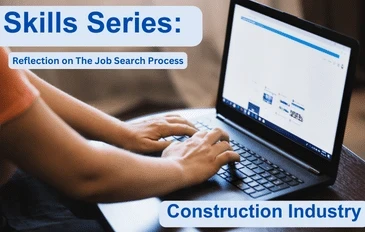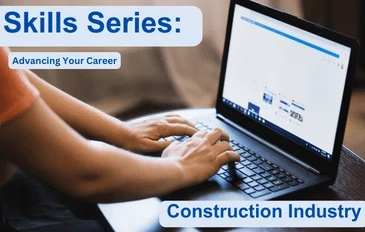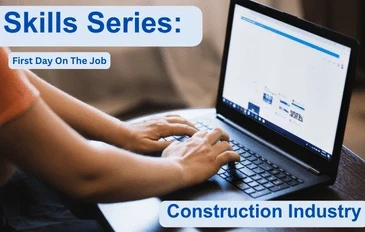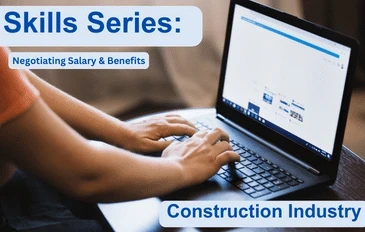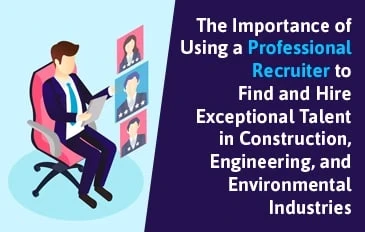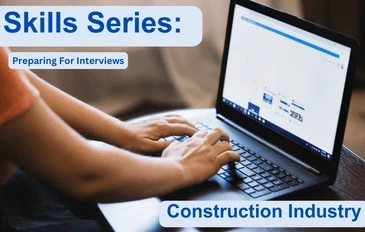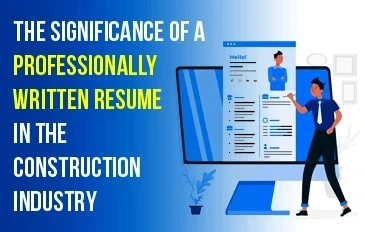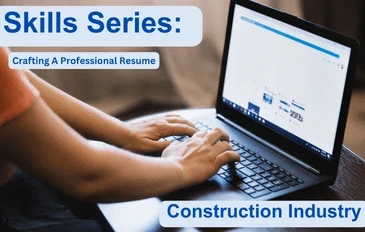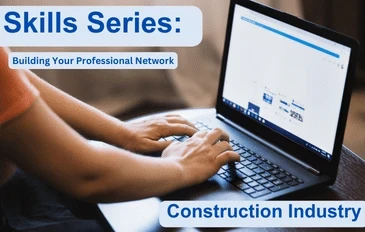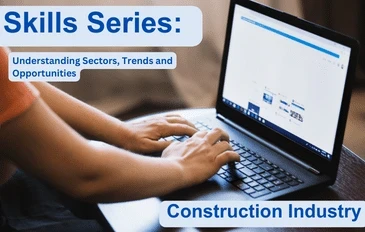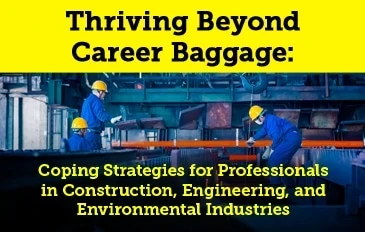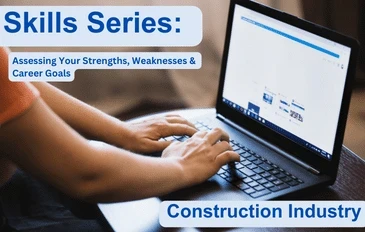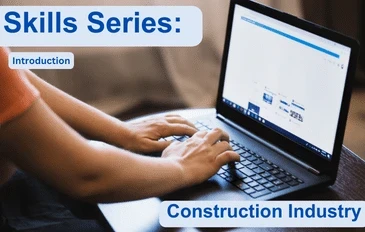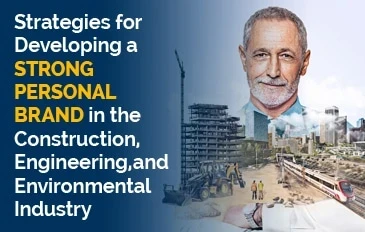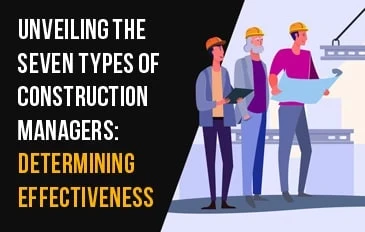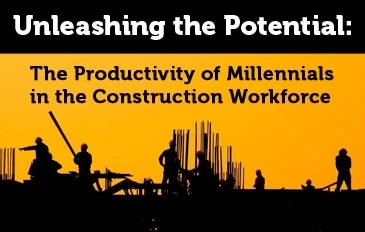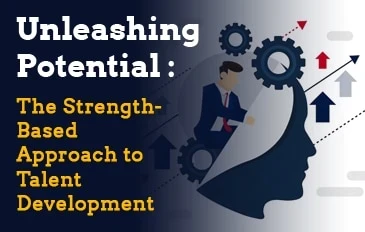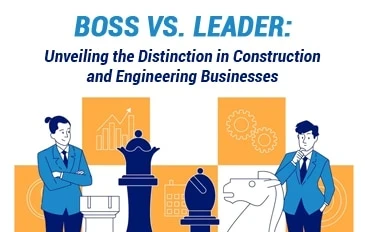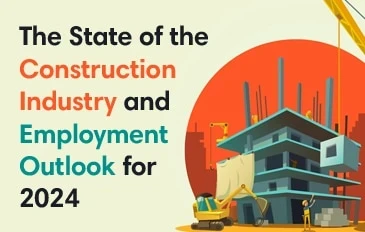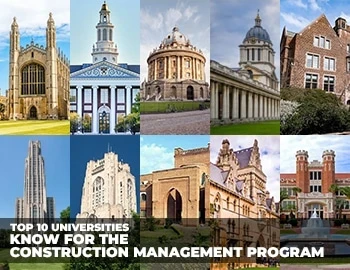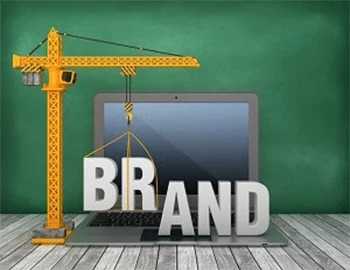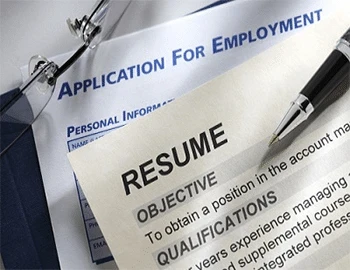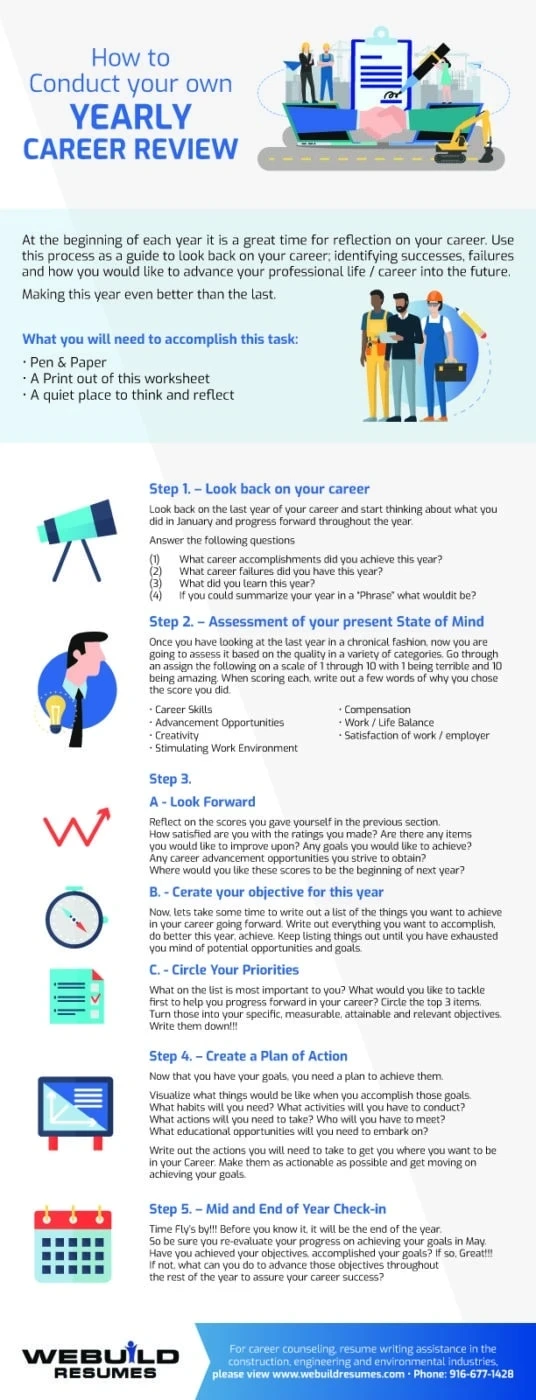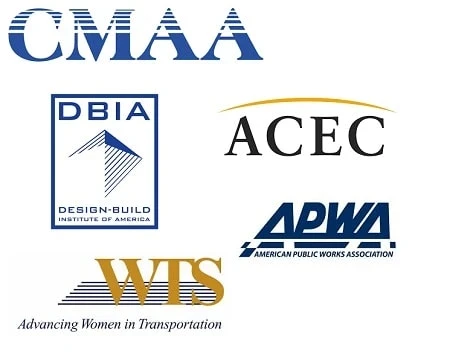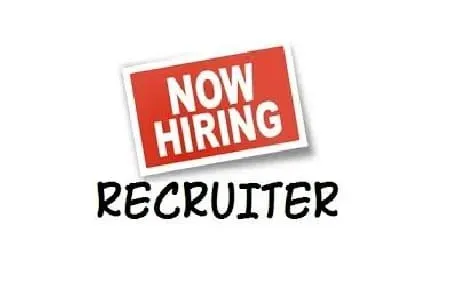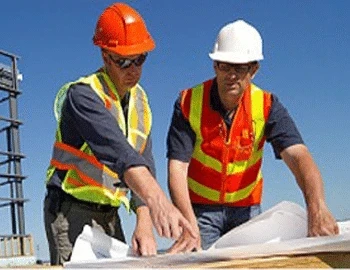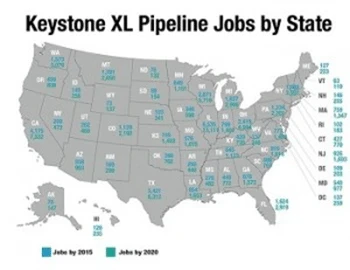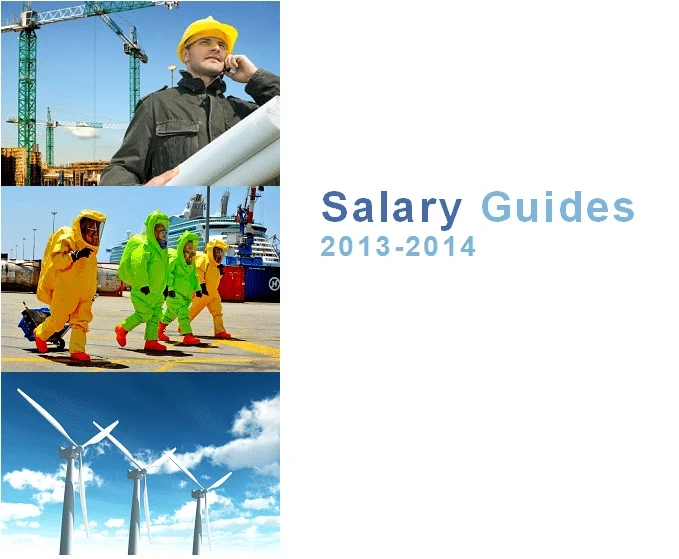Michael DeSafey | Executive Recruiter and HR Professional
Writing Clear, Impactful Resume Summaries for Construction Professionals
In the fast-paced construction industry, first impressions count. Whether you’re a seasoned project manager, site engineer, or safety officer, your resume summary is your golden opportunity to capture a hiring manager’s attention in just a few sentences. A well-crafted resume summaries can succinctly highlight your key strengths, technical expertise, and leadership abilities, setting you apart from the competition and opening doors to exciting career opportunities.
Today, we’ll explore the art of concise communication and provide actionable tips for writing clear, impactful resume summaries specifically for construction professionals. We’ll cover why the summary is so critical, how to structure your statement, best practices for incorporating relevant keywords, and real-world examples to inspire your own summary. Additionally, we’ll include three valuable resource links to deepen your understanding of resume writing and effective communication strategies.
Why Resume Summaries Matters
First Impressions Are Lasting
Your resume summary is the first section a recruiter or hiring manager reads. It’s your elevator pitch on paper—a brief narrative that encapsulates your professional identity, accomplishments, and value proposition. In the construction industry, where technical expertise and leadership are paramount, a concise summary immediately signals that you’re capable of handling complex projects and managing dynamic teams.
Setting the Tone for Your Resume
A strong resume summary sets the tone for the rest of your document. It provides context for your detailed work experience, certifications, and technical skills. By clearly stating your strengths upfront, you guide the reader’s expectations and encourage them to delve deeper into your resume.
Boosting Your ATS Compatibility
Many companies use Applicant Tracking Systems (ATS) to filter resumes. Including relevant keywords in your summary—such as “project management,” “safety compliance,” “budget optimization,” and “site supervision”—helps ensure your resume passes through these systems and reaches human eyes. A well-optimized summary not only appeals to recruiters but also improves your online visibility when employers search for top talent.
Components of Powerful Resume Summaries
To craft an impactful resume summary, consider including the following elements:
1. Professional Identity
Begin your summary by stating your professional title or role. This immediately tells the reader what kind of construction professional you are. For example, “Experienced Construction Project Manager” or “Skilled Site Engineer.”
2. Years of Experience
Include the number of years you’ve been in the industry. This gives context about your level of expertise. For instance, “with over 10 years of experience” signals a seasoned professional.
3. Key Strengths and Technical Expertise
Highlight your core competencies and technical skills relevant to the construction industry. This may include project management, safety compliance, cost estimation, CAD proficiency, and familiarity with building codes. Make sure to mention any specialized skills that set you apart.
4. Leadership and Interpersonal Skills
Construction projects often require collaboration and effective leadership. Emphasize your ability to lead teams, manage budgets, and communicate with diverse stakeholders—from subcontractors to regulatory agencies.
5. Measurable Achievements
Whenever possible, incorporate quantifiable achievements. Numbers and percentages add credibility and give a snapshot of your impact. For example, “successfully reduced project costs by 15%” or “managed projects exceeding $5M in value.”
6. Career Goals or Value Proposition
Conclude with a statement that aligns with the employer’s goals or your career aspirations. This helps demonstrate that your professional objectives match the needs of the company you’re targeting.
Step-by-Step Guide to Writing Your Resume Summaries
Step 1: Brainstorm Your Key Attributes
Before you start writing, list your top three to five strengths, technical skills, and leadership qualities. Reflect on your career achievements and think about the unique contributions you’ve made to your projects. Consider questions like:
• What are the core skills that define my role in construction?
• What quantifiable results have I achieved in my career?
• How have I contributed to the success of past projects?
Step 2: Draft a Rough Summary
Using the brainstorming list, create a rough draft that includes your professional identity, years of experience, key strengths, and measurable achievements. For instance:
“Experienced Construction Project Manager with over 10 years of expertise in overseeing multimillion-dollar projects. Adept at coordinating diverse teams, ensuring strict adherence to safety standards, and optimizing project budgets to achieve up to 15% cost savings. Proven track record in delivering projects on time while maintaining the highest quality standards.”
Step 3: Refine for Clarity and Conciseness
The goal is to communicate your value in a few impactful sentences. Trim any unnecessary words and focus on the essentials. Ensure your summary flows logically and uses active language. The refined version might read:
“Dynamic Construction Project Manager with 10+ years of experience in delivering multimillion-dollar projects on time and under budget. Expert in leading cross-functional teams, enforcing rigorous safety protocols, and driving cost efficiencies that yield up to 15% savings. Committed to quality and innovation in every phase of construction.”
Step 4: Incorporate Industry-Specific Keywords
Review job postings in the construction industry to identify frequently mentioned skills and keywords. Integrate these naturally into your summary to boost your resume’s ATS compatibility. Keywords might include “project management,” “safety compliance,” “cost estimation,” “budget optimization,” and “site supervision.”
Step 5: Get Feedback and Revise
Share your draft with trusted colleagues or mentors in the construction industry. Feedback can help you refine the language and ensure that your summary resonates with both technical and non-technical readers. Revise your summary based on their input until it clearly and succinctly represents your professional brand.
Real-World Examples of Impactful Resume Summaries
Example 1: Construction Project Manager
“Results-driven Construction Project Manager with over 12 years of experience in overseeing large-scale infrastructure projects. Specializes in strategic planning, cost control, and team leadership, consistently delivering projects 10-20% under budget and ahead of schedule. Proven ability to navigate complex regulatory environments and implement innovative solutions that enhance operational efficiency and safety compliance.”
Example 2: Site Engineer
“Skilled Site Engineer with 8+ years of experience in managing on-site operations and ensuring adherence to safety and quality standards. Expert in reading blueprints, conducting site assessments, and implementing process improvements that increase productivity and reduce errors. Adept at collaborating with architects, subcontractors, and regulatory agencies to achieve seamless project execution.”
Example 3: Safety Officer
“Dedicated Safety Officer with a decade of experience in construction site safety and regulatory compliance. Demonstrated expertise in developing and enforcing safety protocols that reduced workplace incidents by 30% across multiple projects. Proven leader with excellent communication skills, committed to creating a secure work environment and fostering a culture of continuous safety improvement.”
Best Practices for Crafting an Impactful Resume Summaries
Use Active and Direct Language
Your resume summary should be written in active voice to convey a sense of urgency and personal accountability. Avoid passive constructions that may dilute the impact of your achievements.
Before: “Projects were managed effectively, and cost savings were achieved.”
After: “Managed projects effectively, achieving significant cost savings.”
Be Specific and Quantify Achievements
Specificity adds credibility to your summary. Whenever possible, quantify your achievements with concrete numbers or percentages. This not only catches the eye of recruiters but also provides evidence of your capabilities.
Tailor Your Summary to the Job Description
Different construction roles require different skills. Customize your resume summary for each job application to emphasize the most relevant skills and experiences. This shows that you’ve taken the time to understand the employer’s needs and have aligned your strengths accordingly.
Maintain a Professional Tone
While creativity is important, ensure that your resume summary remains professional and reflective of the construction industry’s standards. Avoid overly casual language or fluff; instead, focus on delivering clear, concise, and impactful information.
Keep It Concise
Aim for 3-4 sentences that encapsulate your professional identity, key achievements, and the value you bring. A concise summary forces you to distill your most important information, making it easier for recruiters to quickly understand your profile.
Enhancing Your Resume Summaries with Visual Elements
Integrate a Professional Layout
A clean, well-organized resume layout enhances readability and ensures that your summary stands out. Use professional fonts, consistent formatting, and strategic use of white space to create a visually appealing document.
Add a Personal Branding Element
Consider incorporating a personal branding statement or tagline that reflects your unique value proposition. For example, “Building the Future, One Project at a Time” can add a memorable touch to your summary and overall resume design.
Common Mistakes to Avoid in Your Resume Summary
Overloading with Buzzwords
While it’s important to include industry-specific keywords, avoid stuffing your summary with buzzwords that may come off as insincere. Focus on meaningful terms that genuinely represent your skills and experience.
Being Too Vague
A vague summary that uses general phrases like “hardworking professional” or “results-oriented” without context won’t capture a hiring manager’s attention. Instead, provide specific examples of your achievements and the impact you’ve made in your roles.
Neglecting Soft Skills
In the construction industry, technical skills are crucial, but don’t forget to highlight your soft skills. Leadership, communication, teamwork, and problem-solving are all highly valued. Balance your technical achievements with examples of how your interpersonal skills have driven project success.
Failing to Tailor Your Summary
A generic resume summary that doesn’t address the specific requirements of the job you’re applying for can be a major drawback. Customize your summary for each application, ensuring it aligns with the job description and reflects the qualities the employer is seeking.
Tips for Ongoing Improvement of Your Resume Summary
Regularly Update Your Achievements
As you gain more experience and complete new projects, update your resume summary to reflect your latest accomplishments. A current summary ensures that your resume accurately represents your most recent skills and contributions.
Solicit Feedback from Peers and Mentors
Feedback from colleagues and industry professionals can be invaluable. They can provide insights into how your summary is perceived and suggest improvements that might make it even more compelling.
Keep an Eye on Industry Trends
Stay informed about the latest trends in the construction industry. Whether it’s new safety regulations, technological innovations, or emerging project management practices, incorporating current trends into your resume summary can demonstrate that you are up-to-date and forward-thinking.
Experiment with Formats
There’s no one-size-fits-all when it comes to resume summaries. Experiment with different formats and styles to find the one that best represents your professional brand. Use A/B testing by sending out different versions and monitoring which one receives more positive feedback from recruiters.
Case Studies: Transforming Resume Summaries into Powerful Tools
Case Study 1: From Generic to Specific
Before: “Experienced construction professional with a background in project management and site operations.”
After: “Accomplished Construction Project Manager with 12+ years of experience overseeing multimillion-dollar projects. Expert in leading diverse teams, reducing project costs by up to 15%, and consistently delivering projects ahead of schedule while upholding strict safety standards.”
Analysis: The revised summary includes quantifiable achievements and industry-specific skills, transforming a generic statement into a compelling narrative that immediately communicates value.
Case Study 2: Highlighting Technical Expertise and Leadership
Before: “Skilled engineer with strong technical skills and a focus on safety and quality.”
After: “Dedicated Site Engineer with 8 years of experience in managing complex construction projects. Adept at interpreting blueprints, conducting rigorous safety inspections, and implementing innovative solutions that reduced operational downtime by 20%. Proven leader committed to fostering a culture of safety and excellence.”
Analysis: This summary not only highlights technical competencies but also incorporates leadership qualities and measurable outcomes, offering a more complete picture of the candidate’s capabilities.
Conclusion
Crafting a clear, impactful resume summaries are an art that requires both precision and creativity. For construction professionals, the ability to distill years of complex project management, technical expertise, and leadership into a few compelling sentences is a skill that can set your resume apart from the rest.
By following the strategies outlined in this guide, you can create resume summaries that captures your professional identity, quantifies your achievements, and aligns with the specific needs of the construction industry. Remember to tailor your summary for each job application, use industry-specific keywords, and support your claims with measurable data. A powerful resume summary not only enhances your chances of passing ATS filters but also leaves a lasting impression on human recruiters.
In today’s competitive market, resume summaries are more than just an introduction—it’s your professional brand in a nutshell. Invest the time to perfect this critical section, and you’ll be well on your way to securing interviews and advancing your career in construction.
Take advantage of the wealth of online resources to continuously refine your approach. Leverage tools like Canva, explore expert advice on Indeed’s Resume Writing Tips, and stay updated on industry trends with insights from Construction Dive. These platforms offer invaluable guidance to help you maintain a cutting-edge resume that truly speaks to your strengths.
Webuild Resumes is a leading environmental resume writing services firm dedicated to the construction, engineering and environmental industries. To learn more about resume writing and professional branding services, please visit: www.webuildresumes.com
How Federal Employees Facing Layoffs Can Update Their Resumes for a Private-Sector Job Search
If you’re a federal employee facing a federal layoff, the uncertainty of the job market can feel overwhelming. The good news is that with strategic planning and the right approach, you can update your resume to stand out in your job search. Transitioning from a federal job to the private sector requires careful resume adjustments to ensure your qualifications align with private industry expectations.
One of the best ways to ensure your resume is optimized for success is by leveraging a professional resume writing service like WeBuildResumes.com. With expert guidance, you can highlight your skills, qualifications, and experience in a way that appeals to hiring managers in the private sector. This article will walk you through the best practices for updating your resume and the benefits of working with a professional resume writer to improve your chances of landing your next job
Federal Agencies Facing Layoffs
Recent directives from the federal government have indicated that several agencies are preparing for significant workforce reductions / federal layoff. Notably, the Environmental Protection Agency (EPA), the Department of the Interior, and the Department of Transportation (DOT) are among those anticipating large-scale federal layoff. The Social Security Administration (SSA) is also preparing for significant workforce reductions, potentially laying off up to 50% of its 60,000 employees.
These impending layoffs underscore the importance of federal employees proactively updating their resumes to align with private-sector expectations. Transitioning from a federal position to the private sector requires strategic adjustments to your resume, ensuring it effectively highlights your transferable skills and experiences.
Why Federal Employees Must Update Their Resumes Now
If you anticipate a federal layoff, waiting until the last minute to update your resume can put you at a disadvantage. Hiring processes can take time, and having an updated resume ready allows you to apply for opportunities as soon as they arise. Here are some key reasons to update your resume now:
- Stay Ahead of the Competition – Many federal employees may be facing the same uncertainty, leading to increased competition for available roles.
- Align Your Resume With Current Trends – Resume formats and hiring practices evolve, so an outdated resume may not perform well.
- Highlight Your Most Recent Accomplishments – Keeping your resume current ensures that your latest achievements are included.
- Prepare for a Career Shift – Private-sector resumes differ significantly from federal resumes, requiring a different approach to formatting and content.
Steps to Update Your Resume for a Successful Job Search
1. Conduct a Resume Audit
Before making updates, take a close look at your current resume. Ask yourself:
- Does my resume reflect my most recent work experience and accomplishments?
- Is my contact information and LinkedIn profile updated?
- Does my resume contain outdated jargon or information that no longer applies to my career goals?
If you’re unsure where to start, a professional resume service like WeBuildResumes.com can perform a detailed resume audit to identify areas for improvement.
2. Use the Proper Private-Sector Resume Format
Unlike federal resumes, private-sector resumes should be more concise (typically 1-2 pages) and achievement-focused. The standard format includes:
- Personal Information: Full name, address, contact details, and LinkedIn profile (if applicable).
- Professional Summary: A compelling overview of your qualifications and key accomplishments.
- Work Experience: Employer names, job titles, and dates of employment, along with detailed descriptions of duties and accomplishments.
- Skills Section: Relevant skills that match job descriptions.
- Education and Certifications: Include degrees, professional certifications, and specialized training.
3. Remove Federal-Specific Jargon and Adjust Terminology
Federal job titles and terminology may not translate well into the private sector. Instead of listing GS levels or government-specific acronyms, use industry-standard terms. For Example:
- Instead of: GS-13 Program Analyst with expertise in regulatory compliance.
- Write: Experienced Program Analyst specializing in compliance and operational efficiency.
Professional resume writers can help translate your federal experience into language that resonates with private-sector employers.
4. Highlight Transferable Skills and Accomplishments
Rather than focusing on job duties, emphasize skills and results that are valuable to private employers. Use quantifiable metrics whenever possible. For example:
- Instead of: Managed a team of analysts.
- Write: Led a team of 10 analysts, increasing efficiency by 25% through process improvements.
5. Tailor Your Resume for Different Job Opportunities
If you’re applying for roles in multiple industries, consider tailoring your resume for each type of position. A general resume may not highlight the specific qualifications that employers are seeking. A professional resume service can create customized versions to match different job descriptions.
6. Update Your Skills and Certifications
In a competitive job market, showcasing up-to-date skills is vital. If you’ve completed professional development courses, obtained new certifications, or learned new technologies, be sure to add them to your resume.
7. Craft a Strong Summary Section
Your resume summary should provide a snapshot of your experience, skills, and career goals. It should be compelling enough to grab a hiring manager’s attention immediately. Example:
Results-driven operations manager with 10+ years of experience leading cross-functional teams. Expertise in regulatory compliance, budget management, and process optimization. Proven ability to drive efficiency and streamline operations in fast-paced environments.
8. Ensure Consistency With Your LinkedIn Profile
Recruiters and hiring managers often check LinkedIn profiles before reaching out to candidates. Ensure your LinkedIn profile aligns with your resume and is optimized for job searches.
9. Optimize for Keywords and ATS
Many employers use Applicant Tracking Systems (ATS) to screen resumes. To improve your chances of getting noticed:
- Use industry-specific keywords from job descriptions.
- Avoid excessive formatting, which can confuse ATS systems.
- Keep job titles and skills aligned with private-sector expectations.
10. Proofread and Format for Readability
Even small typos or formatting issues can create a negative impression. Double-check your resume for errors, and ensure it is well-organized and easy to read.
Job Search Resources for Federal Employees
If you’re navigating a federal layoff, consider these additional job search resources:
- CareerOneStop (www.careeronestop.org) – Offers resume tips, job listings, and career transition resources.
- USAJobs Transition Resources (www.usajobs.gov/Help) – Provides advice on moving from federal employment to the private sector.
- LinkedIn Career Explorer (www.linkedin.com) – Helps job seekers identify roles that match their skills and experience.
Conclusion
If you’re a federal employee facing a federal layoff, now is the time to update and refine your resume for a transition to the private sector. By following the best practices outlined in this guide, you can improve your chances of securing a new role. For the best results, consider enlisting the expertise of a professional resume writing service like WeBuildResumes.com to ensure your application stands out.
A well-structured, keyword-optimized, and accomplishment-driven resume can make all the difference in your job search. Take proactive steps today, and position yourself for career success in the private sector!
Webuild Resumes is a leading environmental resume writing services firm dedicated to the construction, engineering and environmental industries. To learn more about resume writing and professional branding services, please visit: www.webuildresumes.com
The Multifaceted Role of Engineers: A Comprehensive Exploration of Their Impacts
Engineers are the architects of innovation, the builders of progress, and the problem solvers of our modern world. Their work is ubiquitous, yet often misunderstood. Beyond the stereotypical image of someone tinkering with machines or staring at computer screens, the realm of engineering encompasses a vast array of roles, each with its unique set of responsibilities and challenges. Lets delve deep into the multifaceted jobs of engineers, shedding light on their diverse contributions to society and industry.
-
Design and Development: Engineers are the creative minds behind the conception and design of groundbreaking products, structures, and systems. Whether it’s designing a sleek smartphone, a sustainable skyscraper, or a complex aerospace vehicle, engineers leverage their expertise in science, mathematics, and technology to transform concepts into tangible realities. This phase involves rigorous research, prototyping, testing, and iteration to ensure that the final product meets the desired specifications and standards.
-
Analysis and Simulation: Prior to fabrication or construction, engineers utilize advanced computational tools and simulation techniques to analyze the performance, reliability, and safety of their designs. Finite element analysis, computational fluid dynamics, and mathematical modeling are just a few examples of the tools engineers employ to predict how structures will behave under various conditions and stresses. This iterative process helps identify potential flaws and optimizations, ultimately leading to more robust and efficient solutions.
-
Project Management: Beyond technical prowess, engineers often serve as project managers, overseeing the entire lifecycle of a project from inception to completion. This involves coordinating interdisciplinary teams, managing budgets and timelines, mitigating risks, and ensuring compliance with regulatory requirements. Effective project management is crucial for delivering projects on time, within budget, and to the satisfaction of stakeholders.
-
Research and Development (R&D): Engineers are at the forefront of innovation, driving research and development efforts across diverse industries. Whether it’s developing new materials for renewable energy technologies, pioneering breakthroughs in biomedical engineering, or pushing the boundaries of artificial intelligence, engineers play a pivotal role in pushing the boundaries of knowledge and technological capabilities. R&D engineers collaborate with scientists, academics, and industry partners to explore emerging technologies and bring disruptive ideas to fruition.
-
Quality Assurance and Testing: Ensuring the quality and reliability of products is paramount in engineering. Quality assurance engineers develop and implement rigorous testing protocols to validate the performance, durability, and safety of manufactured goods. This involves conducting various tests, inspections, and audits to identify defects, deviations, and areas for improvement. By upholding strict quality standards, engineers safeguard the integrity of products and uphold the trust of consumers.
-
Maintenance and Optimization: Even after deployment, engineers continue to play a crucial role in the maintenance and optimization of systems and infrastructure. Whether it’s optimizing the efficiency of a manufacturing process, conducting routine inspections of critical infrastructure, or troubleshooting technical issues in software applications, engineers are indispensable in ensuring the smooth operation and longevity of engineered systems.
-
Environmental and Sustainability Engineering: In an era of growing environmental awareness, engineers are increasingly focused on developing sustainable solutions that minimize environmental impact and promote long-term sustainability. Environmental engineers work on projects ranging from wastewater treatment and air pollution control to renewable energy systems and ecological restoration. By integrating principles of sustainability into engineering practice, engineers are driving the transition towards a more environmentally conscious future.
-
Regulatory Compliance and Ethics: Engineers are bound by ethical codes and regulatory frameworks designed to protect the public interest and ensure the safety and integrity of engineering projects. Ethical considerations such as honesty, integrity, and accountability are paramount in engineering practice. Engineers must navigate complex regulatory landscapes and adhere to industry standards and best practices to mitigate risks and uphold ethical standards.
The jobs of engineers are as diverse as they are indispensable. From designing cutting-edge technology to addressing global challenges, engineers play a pivotal role in shaping the world around us. By embracing innovation, collaboration, and ethical responsibility, engineers are driving progress and advancing the frontiers of human knowledge and capability. As we navigate the complexities of the 21st century, the contributions of engineers will continue to be essential in building a brighter, more sustainable future for generations to come.
Webuild Staffing Agency is a leading executive search and staffing agency dedicated to the construction, engineering and environmental industries. To learn more please visit: www.webuildstaffing.com
Using Infographics to Enhance Your Construction Resume
In today’s competitive job market, especially within the construction industry, a traditional text-based resume may not always capture the full extent of your expertise. With complex projects, technical details, and a host of quantifiable achievements, construction professionals are discovering the power of visual storytelling. By incorporating infographics into your resume, you can not only display your accomplishments in a more engaging manner but also differentiate yourself from the competition.
In this comprehensive guide, we’ll explore how to leverage visual storytelling and infographics to enhance your construction resume. We’ll discuss why visuals matter, the best practices for integrating them into your resume, and the tools you can use to create stunning visuals that capture the essence of your work. Whether you’re a seasoned project manager or a field engineer, these tips will help you craft a resume that stands out.
Why Visual Storytelling Matters in the Construction Industry
Construction projects involve multifaceted details—from budget allocations and project timelines to safety statistics and regulatory compliance figures. Visual storytelling through infographics can condense this complexity into digestible, engaging visuals. Instead of sifting through dense paragraphs, hiring managers can quickly grasp your achievements at a glance.
First impressions are critical. A resume that uses infographics effectively signals that you’re not only detail-oriented but also innovative and capable of communicating complex data in an accessible format. This can be particularly appealing in an industry where clarity and precision are essential.
In the construction field, many professionals have similar qualifications. What can set you apart is the ability to present your work in a dynamic way. A resume enhanced with visuals immediately differentiates you from candidates who rely solely on traditional formats.
Understanding the Role of Infographics in Your Resume
What Are Infographics?
Infographics are graphic visual representations of information, data, or knowledge intended to present information quickly and clearly. They combine data, text, and visuals to tell a story. In the context of a construction resume, infographics can highlight:
• Project timelines and milestones
• Cost savings and budget management figures
• Safety statistics and compliance achievements
• Technical competencies and certifications
The Psychology Behind Visual Learning
Research shows that the human brain processes visual information much faster than text. By integrating infographics into your resume, you’re not only capturing attention but also making it easier for potential employers to remember your key accomplishments. For example, a pie chart illustrating a 25% reduction in material waste or a timeline graphic showcasing the on-time delivery of a multi-million-dollar project can leave a lasting impression.
Industry-Relevant Examples
Imagine a section of your resume dedicated to a large-scale construction project. Instead of listing bullet points like “Managed a $10 million project” and “Achieved a 30% reduction in costs,” you could include a timeline infographic. This visual could highlight each phase of the project—from design and planning through to execution and completion—accompanied by relevant metrics and images. This approach not only saves space but also provides a clear narrative of your project management capabilities.
Integrating Infographics into Your Construction Resume
1. Determine What to Visualize
The first step is to decide which parts of your resume will benefit most from an infographic. Consider including visuals for:
• Project Timelines: Show the phases of a project with start and end dates, key milestones, and outcomes.
• Budget and Cost Savings: Use bar graphs or pie charts to depict cost management success.
• Safety and Compliance: Include icons or charts that reflect your adherence to OSHA standards or your role in reducing workplace incidents.
• Technical Skills and Certifications: Create a visual skills matrix or timeline that shows the progression of your technical expertise.
2. Choose a Format That Complements Your Content
There are several ways to incorporate infographics into your resume. You can opt for:
• Sidebar Infographics: Place a vertical infographic along the side of your resume to highlight key metrics.
• Embedded Graphics: Insert smaller charts or icons next to relevant bullet points.
• Separate Portfolio Section: Include a dedicated “Visual Achievements” section that directs hiring managers to your online portfolio with larger, interactive infographics.
3. Maintain a Professional Design
While creativity is important, it’s crucial to maintain a professional tone. Use clean lines, simple color schemes, and easily readable fonts. Ensure that the infographic’s style matches the overall design of your resume. Avoid clutter—each visual element should serve a purpose and contribute to the narrative of your achievements.
4. Incorporate Relevant Keywords and Data
Search engine optimization isn’t just for web pages. Many companies use Applicant Tracking Systems (ATS) to scan resumes for keywords. Ensure that your infographic includes relevant keywords such as “project management,” “cost reduction,” “safety compliance,” and “construction innovation.” These terms should also be supported by data, so include metrics and figures wherever possible.
For example, an infographic that details a successful project might include:
• A timeline showing project duration (e.g., “Completed a $10M project in 14 months”).
• A pie chart indicating budget savings (e.g., “Achieved a 20% reduction in project costs”).
• Icons representing certifications (e.g., OSHA 30, LEED Accredited Professional).
5. Link to an Online Portfolio
If your resume design allows, consider including a QR code or a hyperlink that directs potential employers to your online portfolio. This is especially useful if your portfolio contains more extensive infographics or project case studies.
Check out platforms like Canva for designing compelling infographics or Piktochart for creating detailed visual reports. These tools can help you produce professional visuals without the need for advanced graphic design skills.
Tools and Resources for Creating Infographics
Canva: Canva is a popular, user-friendly design tool that offers numerous templates for creating infographics. With its drag-and-drop interface, even those without a background in design can create professional-quality visuals. Use Canva to design timelines, charts, and visual skill matrices that complement your resume.
Piktochart: Piktochart is another excellent resource for creating infographics. It allows you to turn complex data into visually appealing graphics. This tool is ideal for highlighting project performance metrics and sustainability achievements in your construction career.
Venngage: Venngage offers customizable templates specifically geared toward infographics. Its range of professional templates makes it easy to create visuals that communicate your achievements effectively. Whether you’re highlighting cost savings or project timelines, Venngage can help you design a graphic that stands out.
Best Practices for Using Infographics in Your Resume
Consistency Is Key
Ensure that your infographic style is consistent throughout your resume. Use the same color palette, font choices, and icon styles to create a unified look. Consistency helps in reinforcing your personal brand and making your resume easier to navigate.
Keep It Simple
While infographics can be highly engaging, it’s important not to overwhelm your resume with too much visual information. Select one or two key metrics or achievements to illustrate visually. The rest of your resume can use traditional text. This balance ensures that your resume remains professional and easy to read.
Test for Print and Digital Formats
Your resume may be viewed on different devices and printed out. Test your infographic’s readability on both screens and paper. Ensure that the graphics remain clear and legible in various formats. Adjust contrast and resolution settings as needed to optimize the design.
Get Feedback
Before finalizing your resume, seek feedback from colleagues or mentors within the construction industry. They can provide insights into whether your infographic effectively communicates your achievements and if the overall design aligns with industry standards. Constructive feedback can help you refine your visuals for maximum impact.
Avoid Overuse of Jargon
While it’s important to include industry-specific keywords, be mindful not to overload your infographic with technical jargon that may confuse the reader. Strike a balance between technical precision and clarity. Remember, the goal is to make your achievements accessible to both technical and non-technical hiring managers.
Case Study: Transforming a Construction Resume with Infographics
Consider the example of John, a seasoned construction project manager. John had extensive experience managing large-scale projects, but his traditional text-based resume was not capturing the full extent of his contributions. He decided to incorporate infographics to showcase his achievements.
Step 1: Identifying Key Metrics
John focused on three primary metrics:
• Project Timelines: He used a timeline infographic to illustrate how he managed to deliver projects ahead of schedule.
• Cost Savings: A bar chart highlighted the percentage of budget saved across multiple projects.
• Safety Record: Icons and percentages were used to depict his role in achieving a zero-incident safety record on site.
Step 2: Creating the Infographics
Using Canva, John created a set of visuals that he embedded within his resume. The timeline was designed with a clear visual flow, and the cost-saving chart used bold colors to draw attention to his achievements. For his safety record, he incorporated industry-standard icons to symbolize safety and compliance.
Step 3: Integrating with the Resume
John strategically placed the infographics in a dedicated “Visual Achievements” section near the top of his resume. This allowed recruiters to immediately see the quantifiable impact of his work before delving into the detailed bullet points.
Step 4: Results
The redesigned resume significantly boosted John’s interview calls. Hiring managers appreciated the clarity and creativity of the visuals, which immediately conveyed his ability to manage complex projects while maintaining strict safety standards and cost efficiencies.
Conclusion
Leveraging visual storytelling through infographics is a powerful strategy for construction professionals seeking to enhance their resumes. By transforming dense data into compelling visuals, you can present your project achievements in a way that is both engaging and memorable. Not only do infographics simplify complex information, but they also help differentiate you in a competitive job market where every detail counts.
Whether you choose to incorporate a timeline for project milestones, a chart for budget management, or icons for safety achievements, the key is to ensure that your visuals are clear, professional, and aligned with the overall design of your resume. Tools like Canva, Piktochart, and Venngage offer user-friendly interfaces that empower you to create stunning visuals even without a background in graphic design.
As you embark on the journey to craft a resume that truly stands out, remember that your professional narrative is best told through both words and visuals. Infuse your resume with creative, data-driven infographics to capture the attention of hiring managers, communicate your value effectively, and ultimately open the door to new career opportunities.
Webuild Resumes is a leading resume writing services firm dedicated to the construction, engineering and environmental industries. To learn more about resume writing and professional branding services, please visit: www.webuildresumes.com
Transitioning Military Skills to a Civilian Construction Career
For veterans transitioning from military service to civilian life, finding meaningful employment can be a significant challenge. However, the construction industry offers a wealth of opportunities for veterans to leverage their unique skills, experiences, and values in a rewarding civilian career. Lets explore the diverse range of construction careers available to veterans, the transferable skills they bring to the table, and the resources and support available to facilitate transitioning military skills to the civilian sector.
The Value of Veterans Transitioning Military Skills to the Construction Industry:
Veterans possess a wealth of skills, experiences, and qualities that make them highly valuable assets in the construction industry. Some of the key attributes that veterans bring to construction careers include:
-
Leadership: Veterans have undergone extensive training in leadership, teamwork, and decision-making, making them effective leaders and mentors in construction projects and teams.
-
Discipline: Military service instills a strong sense of discipline, work ethic, and attention to detail in veterans, traits that are highly valued in the construction industry where safety, quality, and efficiency are paramount.
-
Problem-Solving: Veterans are adept problem-solvers, accustomed to operating in high-pressure environments and adapting to changing circumstances, making them well-suited for the dynamic and fast-paced nature of construction work.
-
Technical Skills: Many military occupations involve technical training and experience in areas such as engineering, logistics, and equipment operation, providing veterans with valuable technical skills that are directly applicable to construction careers.
Construction Careers for Veterans:
The construction industry offers a wide range of career opportunities for veterans across various fields and specialties. Some of the key construction careers that veterans may consider include:
-
Construction Management: Veterans with leadership experience and project management skills may pursue careers in construction management, overseeing and coordinating construction projects from inception to completion.
-
Skilled Trades: Veterans with technical skills and experience may pursue careers in skilled trades such as carpentry, electrical work, plumbing, HVAC (heating, ventilation, and air conditioning), and welding, where their hands-on expertise is highly valued.
-
Engineering: Veterans with engineering backgrounds may pursue careers in civil engineering, structural engineering, or mechanical engineering, applying their technical knowledge and problem-solving skills to design and oversee construction projects.
-
Safety and Compliance: Veterans with a background in safety and compliance may pursue careers as safety officers, inspectors, or compliance specialists, ensuring that construction projects comply with regulatory requirements and safety standards.
Transitioning Military Skills to Civilian Construction Careers:
Transitioning from military service to civilian construction careers requires careful planning, preparation, and support. Some strategies for veterans to transition their military skills to civilian construction careers include:
-
Networking: Building connections and networking within the construction industry can open doors to job opportunities, mentorship, and support networks for veterans transitioning to civilian careers.
-
Skills Translation: Identifying and translating military skills and experiences into civilian terms and qualifications can help veterans showcase their strengths and capabilities to potential employers in the construction industry.
-
Education and Training: Pursuing further education, training, or certification in construction-related fields can help veterans acquire the skills and qualifications needed to succeed in civilian construction careers and enhance their competitiveness in the job market.
-
Veterans’ Resources: There are numerous resources and support programs available to veterans transitioning to civilian careers, including job placement services, resume assistance, and educational benefits, provided by organizations such as the Department of Veterans Affairs (VA), veteran service organizations, and community-based nonprofits.
Success Stories: Veterans in the Construction Industry:
Many veterans have found success and fulfillment in civilian construction careers, leveraging their military skills and experiences to excel in the industry. By way of example, we could include anecdotes or interviews with veterans who have successfully transitioned to construction careers, highlighting their journeys, challenges, and achievements in the civilian sector.
For veterans transitioning from military service to civilian life, the construction industry offers a pathway to meaningful and rewarding careers. With their leadership, discipline, problem-solving abilities, and technical skills, veterans are well-equipped to thrive in construction careers and contribute to the continued growth and success of the industry. By leveraging their unique strengths, accessing resources and support, and embracing opportunities for education and training, veterans can make a successful transition to civilian construction careers and embark on a new chapter of service and fulfillment in the construction industry.
Webuild Staffing Agency is a leading executive search and staffing agency dedicated to the construction, engineering and environmental industries. To learn more please visit: www.webuildstaffing.com
Constructing the Future: The Emergence of Remote Construction Jobs in a Digital Era
In the digital age, technology has transformed the way we work, communicate, and collaborate. The construction industry, traditionally reliant on physical presence and on-site work, is no exception to this trend. With the rise of remote work capabilities and digital tools, remote construction jobs are becoming increasingly prevalent. Today we’ll explore the evolution of remote construction jobs, the benefits and challenges they entail, and the skills and technologies needed to thrive in this digital era.
The Evolution of Remote Construction Jobs:
Traditionally, construction jobs have been performed on-site, with workers physically present at job sites to carry out tasks such as building, assembling, and installing structures and infrastructure. However, advances in technology and changes in work practices have enabled the emergence of remote construction jobs, where workers can perform construction-related tasks from locations outside of traditional job sites. Remote construction jobs encompass a wide range of roles and responsibilities, including project management, design, engineering, planning, and coordination, all of which can be performed remotely using digital tools and communication technologies.
Benefits of Remote Construction Jobs:
Remote construction jobs offer numerous benefits for both construction professionals and employers. Some of the key benefits of remote construction jobs include:
-
Flexibility: Remote construction jobs offer greater flexibility in terms of work location and schedule, allowing construction professionals to work from anywhere with an internet connection and adapt their work hours to accommodate personal and professional commitments.
-
Work-Life Balance: Remote construction jobs enable construction professionals to achieve a better work-life balance by eliminating the need for long commutes and providing more control over their daily schedules, leading to reduced stress and improved well-being.
-
Cost Savings: Remote construction jobs can lead to cost savings for both construction professionals and employers by reducing expenses associated with commuting, office space, and travel, as well as enabling access to a wider talent pool without geographic constraints.
-
Increased Productivity: Remote construction jobs can lead to increased productivity by minimizing distractions and interruptions commonly encountered in traditional office environments and enabling construction professionals to focus on their work without the need for constant supervision.
Challenges of Remote Construction Jobs:
While remote construction jobs offer numerous benefits, they also present several challenges that construction professionals and employers must navigate. Some of the key challenges of remote construction jobs include:
-
Communication and Collaboration: Effective communication and collaboration are essential for remote construction jobs, but they can be challenging to achieve when team members are dispersed across different locations and time zones, requiring the use of digital tools and communication technologies to facilitate interaction and coordination.
-
Technical Infrastructure: Remote construction jobs rely on access to reliable internet connectivity, digital tools, and software platforms, which may not be available in all locations or accessible to all construction professionals, requiring investment in infrastructure and technology to support remote work capabilities.
-
Security and Data Protection: Remote construction jobs involve the use of digital tools and platforms to exchange sensitive project information and data, raising concerns about cybersecurity risks, data breaches, and unauthorized access, requiring implementation of robust security measures and protocols to protect confidential information.
-
Work Culture and Engagement: Remote construction jobs can lead to feelings of isolation and disengagement among construction professionals who are accustomed to working in traditional office environments, requiring efforts to foster a sense of belonging, camaraderie, and team spirit through virtual meetings, team-building activities, and social events.
Skills and Technologies for Remote Construction Jobs:
To succeed in remote construction jobs, construction professionals need a combination of technical skills, digital literacy, and communication abilities. Some of the key skills and technologies needed for remote construction jobs include:
-
Digital Tools and Software: Construction professionals must be proficient in using digital tools and software platforms for project management, design, collaboration, and communication, such as Building Information Modeling (BIM) software, project management software, virtual reality (VR) simulations, and video conferencing platforms.
-
Communication Skills: Effective communication is essential for remote construction jobs, requiring construction professionals to communicate clearly and concisely through written and verbal channels, as well as to listen actively and empathetically to colleagues and stakeholders.
-
Time Management and Organization: Remote construction jobs require strong time management and organizational skills to prioritize tasks, meet deadlines, and manage competing priorities effectively, as well as to adapt to changes and unexpected challenges in a dynamic work environment.
-
Adaptability and Resilience: Remote construction jobs require adaptability and resilience to navigate uncertainty, ambiguity, and change, as well as to overcome obstacles and setbacks with perseverance and determination.
The rise of remote construction jobs represents a transformative shift in the construction industry, offering greater flexibility, efficiency, and innovation in how construction projects are planned, executed, and managed. While remote construction jobs present challenges, such as communication and collaboration barriers, technical infrastructure limitations, and security concerns, they also offer numerous benefits, including flexibility, work-life balance, cost savings, and increased productivity. By acquiring the necessary skills and technologies, embracing remote work practices, and fostering a culture of communication, collaboration, and engagement, construction professionals and employers can harness the potential of remote construction jobs to drive success and competitiveness in the digital era.
Webuild Staffing Agency is a leading executive search and staffing agency dedicated to the construction, engineering and environmental industries. To learn more please visit: www.webuildstaffing.com
Building a Culture of Safety: A Guide to Preventing Accidents on Construction Sites
Construction sites are bustling hubs of activity, where skilled workers come together to build the structures that shape our world. However, amidst the noise and excitement, safety should always remain the top priority. Construction sites pose numerous hazards and risks, from falls and electrical shocks to crane accidents and chemical exposures. Lets explore the importance of building a safety culture on construction sites and provide practical tips and strategies for preventing accidents and injuries on the job site.
Understanding the Importance Building a Safety Culture on Construction Sites:
Safety is not just a legal requirement; it’s a moral imperative and a fundamental human right. Every worker has the right to a safe and healthy workplace, free from hazards and risks that could cause harm or injury. Construction safety is essential for protecting the well-being of workers, preventing accidents and injuries, and ensuring that construction projects are completed safely, on time, and within budget. In addition to the human cost, accidents and injuries can also have significant financial and reputational implications for construction companies, leading to lost productivity, increased insurance premiums, and damage to brand reputation.
Identifying Common Hazards on Construction Sites:
Construction sites are dynamic and ever-changing environments, with numerous hazards and risks that workers must navigate on a daily basis. Some of the most common hazards on construction sites include:
-
Falls: Falls from heights are one of the leading causes of injury and death in the construction industry, often resulting from inadequate fall protection measures, unstable scaffolding, or unguarded edges.
-
Struck-by and Caught-in/Between Hazards: Struck-by and caught-in/between accidents occur when workers are struck by moving objects, such as falling tools or materials, or caught in or between machinery or equipment.
-
Electrocution: Electrocution hazards arise from contact with live electrical wires, overhead power lines, or faulty electrical equipment, posing a serious risk of electric shock or electrocution.
-
Hazardous Materials: Construction sites may contain hazardous materials, such as asbestos, lead, and chemicals, which can pose health risks if not handled and disposed of properly.
Strategies for Preventing Accidents on Construction Sites:
Preventing accidents on construction sites requires building a safety culture that is a proactive and comprehensive approach to safety management. Some strategies for preventing accidents and injuries on construction sites include:
-
Conducting Risk Assessments: Before starting work on a construction site, it’s essential to conduct a thorough risk assessment to identify potential hazards and risks and develop strategies for mitigating them.
-
Providing Training and Education: All workers should receive comprehensive training on construction safety practices, including proper use of personal protective equipment (PPE), safe work procedures, and emergency response protocols.
-
Implementing Safety Policies and Procedures: Construction companies should establish clear and enforceable safety policies and procedures to ensure that workers understand their responsibilities and follow safe work practices at all times.
-
Providing Personal Protective Equipment (PPE): Personal protective equipment, such as hard hats, safety goggles, gloves, and steel-toed boots, should be provided to workers and worn as required to protect against common hazards and injuries.
-
Promoting a Culture of Safety: Safety is everyone’s responsibility, from senior management to frontline workers. Construction companies should foster a culture of safety by promoting open communication, encouraging workers to report safety concerns, and recognizing and rewarding safe behavior.
-
Conducting Regular Inspections and Audits: Regular inspections and audits of construction sites are essential for identifying hazards, assessing compliance with safety regulations, and implementing corrective actions to address deficiencies.
Harnessing Technology for Construction Safety:
Technology can play a crucial role in enhancing construction safety, providing innovative solutions for identifying, monitoring, and mitigating safety risks on construction sites. Some examples of technology solutions for construction safety include:
-
Wearable Technology: Wearable devices, such as smart helmets, vests, and glasses, can monitor workers’ vital signs, detect hazardous conditions, and provide real-time alerts and notifications to prevent accidents and injuries.
-
Drone Technology: Drones equipped with cameras and sensors can conduct aerial surveys of construction sites, identify potential hazards, and monitor progress and safety compliance from a safe distance.
-
Building Information Modeling (BIM): BIM software enables construction companies to create digital models of construction projects, simulate construction sequences, and identify potential safety hazards and conflicts before they occur.
-
Internet of Things (IoT) Sensors: IoT sensors installed on construction equipment and machinery can collect data on equipment usage, performance, and maintenance, enabling predictive maintenance and reducing the risk of equipment failure and accidents.
Construction safety is a shared responsibility that requires a proactive and collaborative effort from all stakeholders, including employers, workers, regulators, and industry organizations. By understanding the importance of building a safety culture for construction, identifying common hazards, implementing proactive safety measures, and harnessing technology for safety management, construction companies can create safer and healthier workplaces, prevent accidents and injuries, and ensure the successful completion of construction projects. Together, we can build a culture of safety that protects the well-being of construction workers and promotes a sustainable future for the construction industry.
Webuild Staffing Agency is a leading executive search and staffing agency dedicated to the construction, engineering and environmental industries. To learn more please visit: www.webuildstaffing.com
Crafting Achievements that Reflect Industry-Specific Challenges: Tips for Writing Achievement-Oriented Bullet Points
In today’s competitive job market, merely listing your job responsibilities on your resume is no longer sufficient. Employers are looking for candidates who can demonstrate their impact through quantifiable achievements, especially in industries characterized by specific challenges. Whether you’re in engineering, construction, environmental science, or another field, showcasing how you’ve navigated obstacles can set you apart from other candidates. Learn to how use effective strategies for crafting achievement-oriented bullet points that reflect your ability to overcome common industry challenges, such as tight timelines, strict regulatory compliance, and environmental constraints.
Understanding Industry-Specific Challenges
- Tight Timelines
Many projects in fields like construction and engineering operate under strict deadlines. Delays can lead to increased costs and client dissatisfaction, making it imperative for professionals to find ways to deliver results on time.
- Strict Regulatory Compliance
Compliance with regulations such as OSHA and EPA standards is critical in construction and environmental sectors. Failing to meet these standards can result in costly fines and project shutdowns, necessitating a proactive approach to ensure adherence.
- Environmental Constraints
Environmental regulations and sustainability initiatives present unique challenges for professionals in many industries. Balancing project requirements with environmental impact necessitates innovative solutions and a thorough understanding of local, state, and federal regulations.
Tips for Crafting Achievement-Oriented Bullet Points
Start with a Strong Action Verb
Begin each bullet point with a powerful action verb that conveys your role in the achievement. This sets a dynamic tone and grabs the reader’s attention.
Example:
- Spearheaded the development of a streamlined project management process.
Use the STAR Method
The STAR (Situation, Task, Action, Result) method is an effective framework for structuring your bullet points. This approach allows you to provide context and illustrate your contributions clearly.
- Situation: Briefly describe the challenge or situation you faced.
- Task: Outline your specific responsibilities in addressing the challenge.
- Action: Detail the steps you took to overcome the challenge.
- Result: Quantify the outcome of your actions, emphasizing any measurable achievements.
Example:
- Situation: Faced a significant delay in project timelines due to unexpected weather conditions.
- Task: Responsible for ensuring project completion within the original deadline.
- Action: Implemented a contingency plan that involved reallocating resources and adjusting schedules to accommodate delays.
- Result: Successfully delivered the project one week ahead of the revised schedule, saving the company $15,000 in potential penalties.
Quantify Your Achievements
Whenever possible, use numbers to quantify your achievements. Metrics provide concrete evidence of your impact and make your accomplishments more compelling.
Example:
- Reduced project costs by 20% through effective budget management and resource allocation.
- Highlight Problem-Solving Skills
Showcase your problem-solving skills by detailing how you addressed challenges. Highlighting your ability to think critically and develop innovative solutions can make a strong impression.
Example:
- Developed an innovative waste management plan that minimized project waste by 30% while ensuring compliance with local environmental regulations.
Focus on Team Collaboration
Many industry challenges require teamwork and collaboration. Emphasizing your ability to work effectively with cross-functional teams can illustrate your leadership and interpersonal skills.
Example:
- Collaborated with architects and engineers to design a LEED-certified building, leading to a 15% reduction in energy consumption during the first year of operation.
Tailor Your Bullet Points to the Job Description
When applying for a specific position, carefully review the job description and tailor your bullet points to align with the employer’s needs. Highlighting achievements that reflect the challenges relevant to the job can make your application more attractive.
Example:
If the job description emphasizes regulatory compliance, focus on achievements related to adhering to standards:
- Achieved a 100% compliance rate during regulatory audits by implementing comprehensive training programs for staff.
Use Specific Examples
Providing specific examples can add credibility to your achievements. Instead of making vague claims, share concrete instances that demonstrate your capabilities.
Example:
- Led a project team in successfully navigating complex zoning regulations to secure a permit for a new commercial development, allowing the project to proceed on schedule.
Incorporate Industry-Specific Keywords
Using industry-specific keywords can improve your resume’s visibility, especially when applying through applicant tracking systems (ATS). Incorporate terms relevant to your field that potential employers might be looking for.
Example:
For construction roles, use keywords like “project management,” “safety compliance,” and “sustainability initiatives.”
Showcase Adaptability and Resilience
Highlighting your ability to adapt to changing circumstances is particularly important in industries characterized by uncertainty. Employers value candidates who can remain resilient and proactive in the face of challenges.
Example:
- Adapted project plans to accommodate unexpected regulatory changes, ensuring continued compliance and project progress.
Emphasize Continuous Improvement
Demonstrating a commitment to continuous improvement can show potential employers that you are proactive in enhancing processes and practices.
Example:
- Implemented a feedback loop with team members to identify areas for improvement, resulting in a 25% increase in project efficiency over six months.
Example Bullet Points Reflecting Industry-Specific Challenges
Here are examples of achievement-oriented bullet points that reflect industry-specific challenges:
Construction Industry
- Delivered a multi-million-dollar infrastructure project three weeks ahead of schedule by optimizing resource allocation and improving communication among subcontractors.
- Achieved a zero-incident safety record on-site for two consecutive years by developing and enforcing strict safety protocols and conducting regular training sessions.
- Successfully navigated the complexities of environmental regulations to secure permits for a renewable energy project, leading to $500,000 in funding from state incentives.
Engineering Industry
- Reduced design cycle time by 15% through the implementation of advanced modeling software and cross-disciplinary collaboration with the R&D team.
- Led a project to retrofit existing systems for energy efficiency, resulting in a 20% reduction in operational costs and contributing to the company’s sustainability goals.
- Improved compliance documentation processes, leading to a 30% decrease in audit preparation time and enhanced overall project compliance.
Environmental Science
- Developed a community outreach program to educate local stakeholders about environmental impact assessments, increasing community participation by 50% in the process.
- Implemented a waste reduction initiative that decreased landfill contributions by 40%, earning recognition from local regulatory agencies for exceptional sustainability practices.
- Collaborated with regulatory bodies to revise compliance protocols, successfully reducing the time required for project approvals by 30%.
Final Thoughts
Crafting achievement-oriented bullet points that reflect your ability to overcome industry-specific challenges is a powerful way to enhance your resume. By utilizing the tips outlined in this blog post, you can effectively communicate your accomplishments and demonstrate your value to potential employers.
Remember, the key is not just to list your responsibilities but to highlight your contributions in a way that underscores your problem-solving skills, adaptability, and commitment to excellence. When you can clearly articulate how you have navigated challenges and delivered results, you position yourself as a strong candidate ready to tackle the demands of your industry.
By focusing on achievements that resonate with the challenges your industry faces, you can create a compelling narrative that showcases your expertise and readiness for the next step in your career.
Webuild Resumes is a leading resume writing services firm dedicated to the construction, engineering and environmental industries. To learn more about resume writing and professional branding services, please visit: www.webuildresumes.com
Emphasizing Knowledge of Regulatory Compliance and Codes: Showcasing Experience with Industry Regulations on Your Resume
In the engineering and construction industries, regulatory compliance is a crucial aspect that can significantly impact project success. Familiarity with industry regulations such as OSHA (Occupational Safety and Health Administration) and EPA (Environmental Protection Agency) standards not only ensures the safety of workers and the environment but also prevents costly project delays and legal issues. As a job seeker in these fields, it’s essential to present your experience with regulatory compliance on your resume in a way that highlights both your knowledge and your proactive approach to safety and efficiency.
Understanding the Importance of Regulatory Compliance
- Legal and Financial Implications
Failure to comply with industry regulations can lead to severe legal consequences and financial penalties. Companies can face lawsuits, fines, and increased insurance premiums if they do not adhere to regulations, making it essential for professionals in the field to prioritize compliance.
- Safety and Risk Management
Regulatory compliance is primarily concerned with safety and risk management. Knowledge of OSHA and EPA standards helps create safer work environments and minimizes the risk of accidents, injuries, or environmental damage, which can jeopardize projects and harm the company’s reputation.
- Quality Assurance
Compliance with industry standards is also an indicator of quality assurance. Adhering to established codes and regulations demonstrates a commitment to maintaining high-quality work, which can improve client satisfaction and lead to repeat business.
- Project Efficiency
Proactively addressing compliance issues can prevent project delays. By identifying potential regulatory hurdles early in the project lifecycle, professionals can develop strategies to mitigate risks, ensuring smooth and timely project execution.
How to Showcase Regulatory Compliance Experience on Your Resume
- Create a Dedicated Section
Consider creating a dedicated section on your resume titled “Regulatory Compliance” or “Certifications and Compliance Knowledge.” This emphasizes your understanding of relevant regulations and allows hiring managers to easily locate this information.
- Incorporate Relevant Keywords
Using industry-specific keywords can improve your resume’s visibility, particularly when applying through applicant tracking systems (ATS). Incorporate terms such as “regulatory compliance,” “safety standards,” “OSHA regulations,” “EPA compliance,” and “project risk management” to ensure your resume resonates with both automated systems and human reviewers.
- Highlight Relevant Experience
When detailing your experience, focus on positions where regulatory compliance was a primary responsibility. Use bullet points to convey specific tasks and achievements related to compliance.
Example:
- Conducted regular safety audits to ensure compliance with OSHA regulations, leading to a 30% reduction in workplace incidents over a two-year period.
- Developed and implemented an environmental management plan that ensured compliance with EPA standards, resulting in successful project completion without any regulatory violations.
- Showcase Proactive Initiatives
Emphasize instances where you took proactive measures to address compliance issues before they escalated into problems. This illustrates your forward-thinking approach and commitment to safety and efficiency.
Example:
- Proactively identified potential compliance risks during project planning and collaborated with cross-functional teams to develop mitigation strategies, preventing project delays and ensuring adherence to safety regulations.
- Quantify Your Achievements
Whenever possible, use numbers and percentages to quantify your achievements related to regulatory compliance. This provides concrete evidence of your effectiveness in maintaining compliance and mitigating risks.
Example:
- Successfully led a team in achieving a 100% compliance rate during an OSHA audit, resulting in the renewal of critical contracts and maintaining the company’s reputation for safety.
- Include Relevant Certifications
If you hold any relevant certifications related to regulatory compliance, such as OSHA 30-hour training, EPA certifications, or other industry-specific credentials, include them in a separate section on your resume. This reinforces your expertise and commitment to staying informed about industry regulations.
Example:
Certifications
- OSHA 30-Hour Construction Safety Certification
- EPA Hazardous Waste Management Certification
- Certified Safety Professional (CSP)
Resume Section Example: Regulatory Compliance
Here’s an example of how to format your resume to highlight your regulatory compliance experience effectively:
Regulatory Compliance
Safety Manager
XYZ Construction Company, June 2021 – Present
- Conducted comprehensive safety audits in compliance with OSHA regulations, achieving a 25% reduction in safety incidents and ensuring employee safety and well-being.
- Developed training programs for staff on safety protocols and regulatory requirements, resulting in a 40% increase in compliance knowledge among employees.
- Collaborated with environmental specialists to ensure adherence to EPA standards during project execution, successfully passing all inspections without violations.
Environmental Compliance Officer
ABC Engineering Firm, January 2018 – May 2021
- Implemented an environmental management system to ensure compliance with local and federal regulations, reducing waste disposal costs by 15% and enhancing sustainability practices.
- Led a project team in assessing potential environmental impacts and developing mitigation plans, achieving zero regulatory fines during project execution.
- Worked closely with regulatory agencies to obtain necessary permits and licenses, streamlining the approval process and preventing project delays.
Crafting a Narrative Around Compliance Experience
- Tell a Compelling Story
When discussing your regulatory compliance experience in your resume or cover letter, consider weaving a narrative that highlights your journey and accomplishments. This approach adds depth and makes your achievements more relatable.
Example:
“In my role as Safety Manager at XYZ Construction Company, I recognized the critical importance of regulatory compliance in maintaining a safe and efficient work environment. By conducting thorough safety audits and implementing targeted training programs, we achieved a remarkable 25% reduction in safety incidents. This proactive approach not only safeguarded our employees but also enhanced our reputation with clients and stakeholders.”
- Address Challenges Head-On
Discuss challenges you faced in ensuring compliance and how you overcame them. This not only showcases your problem-solving skills but also demonstrates your commitment to safety and efficiency.
Example:
“While serving as an Environmental Compliance Officer at ABC Engineering Firm, we encountered significant regulatory hurdles during a major project. By proactively collaborating with environmental specialists and regulatory agencies, we developed comprehensive mitigation plans that addressed potential environmental impacts. As a result, we successfully navigated the regulatory landscape, achieving zero fines during project execution.”
Preparing for Interviews
When highlighting your regulatory compliance experience on your resume, be prepared to discuss it further during interviews. Here are some tips for effectively communicating your compliance knowledge:
- Provide Specific Examples
Be ready to share specific examples of how you ensured compliance in previous roles. Focus on your actions, the challenges faced, and the outcomes achieved.
- Discuss Lessons Learned
Talk about what you learned from your experiences with regulatory compliance and how you can apply those lessons in future roles. This demonstrates your growth and adaptability.
- Showcase Your Soft Skills
Regulatory compliance often requires strong communication, problem-solving, and leadership skills. Be prepared to discuss how you utilized these skills in your previous roles to foster a culture of safety and compliance.
Final Thoughts
Effectively emphasizing your knowledge of regulatory compliance and codes on your resume is crucial for professionals in the engineering and construction industries. By creating a dedicated section, incorporating relevant keywords, highlighting proactive initiatives, and quantifying your achievements, you can showcase your expertise in compliance and demonstrate your commitment to safety and project efficiency.
In an industry where compliance is paramount, presenting yourself as a candidate who not only understands regulations but actively works to ensure adherence can set you apart from the competition. As you craft your resume, remember that showcasing your regulatory compliance experience is not just about meeting requirements—it’s about demonstrating your value as a proactive, knowledgeable, and effective professional.
By following the guidelines outlined in this blog post, you can build a compelling narrative around your regulatory compliance experience that resonates with potential employers and positions you for success in your job search.
Webuild Resumes is a leading resume writing services firm dedicated to the construction, engineering and environmental industries. To learn more about resume writing and professional branding services, please visit: www.webuildresumes.com
Embracing Automation: Navigating the Impact on Construction Jobs
The construction industry is no stranger to innovation, and automation is revolutionizing the way projects are planned, executed, and managed. From autonomous machinery and robotic systems to digital tools and artificial intelligence, automation is reshaping construction processes and workflows, offering both challenges and opportunities for construction professionals. Today, we’ll explore the impact of automation on construction jobs, examining the challenges it presents and the opportunities it creates for the future of the industry.
The Rise of Automation in Construction:
Automation in construction encompasses a wide range of technologies and applications aimed at streamlining construction processes, increasing efficiency, and reducing costs. Some of the key areas of automation in construction include:
-
Autonomous Machinery: Autonomous construction machinery, such as drones, excavators, and cranes, are equipped with sensors, cameras, and GPS technology to operate independently, performing tasks such as site surveying, excavation, and material handling with greater precision and efficiency.
-
Robotics and Prefabrication: Robotics and prefabrication technologies automate the fabrication and assembly of building components off-site, reducing construction time and labor costs while improving quality and consistency.
-
Digital Tools and Software: Digital tools and software, such as Building Information Modeling (BIM), project management software, and virtual reality (VR) simulations, enable construction professionals to visualize, plan, and coordinate construction projects more effectively, minimizing errors and delays.
-
Artificial Intelligence and Machine Learning: Artificial intelligence (AI) and machine learning algorithms analyze data from construction projects to optimize scheduling, resource allocation, and decision-making, enabling construction companies to improve project outcomes and productivity.
Challenges of Automation in Construction:
While automation offers numerous benefits for construction projects, it also presents several challenges for construction professionals to overcome. Some of the key challenges of automation in construction include:
-
Workforce Displacement: Automation has the potential to replace certain manual tasks and jobs traditionally performed by construction workers, leading to concerns about workforce displacement and job loss in the industry.
-
Skills Shortages and Training Needs: As construction becomes more automated, the demand for workers with specialized technical skills, such as robotics programming, data analysis, and digital literacy, is increasing, highlighting the need for ongoing training and education to equip construction professionals with the skills needed for the future of the industry.
-
Integration and Adoption Barriers: Integrating new automation technologies into existing construction workflows and processes can be challenging, requiring changes to organizational culture, workflow redesign, and investment in infrastructure and training.
Opportunities of Automation in Construction:
Despite the challenges, automation also presents numerous opportunities for construction professionals to enhance their skills, improve project outcomes, and drive innovation in the industry. Some of the key opportunities of automation in construction include:
-
Increased Productivity and Efficiency: Automation technologies enable construction companies to complete projects faster, with fewer resources and lower costs, improving productivity and profitability.
-
Safer Work Environments: Autonomous machinery and robotic systems can perform dangerous or repetitive tasks in construction projects, reducing the risk of accidents and injuries for construction workers.
-
Quality and Consistency: Robotics and prefabrication technologies ensure greater consistency and quality control in construction projects, minimizing errors and defects and improving the overall quality of the built environment.
-
Innovation and Creativity: Automation frees up construction professionals to focus on higher-level tasks, such as design, planning, and problem-solving, fostering innovation and creativity in the industry.
Navigating the Future of Automation in Construction:
As automation continues to transform the construction industry, construction professionals must adapt and evolve to remain competitive and relevant in the digital age. Some strategies for navigating the future of automation in construction include:
-
Embracing Lifelong Learning: Construction professionals should embrace lifelong learning and upskilling to stay abreast of emerging technologies and trends in the industry, acquiring new skills and competencies that will be in demand in the future.
-
Collaborating and Innovating: Construction companies should foster a culture of collaboration and innovation, encouraging cross-functional teams to explore new automation technologies, experiment with new workflows, and develop creative solutions to construction challenges.
-
Investing in Talent Development: Construction companies should invest in talent development initiatives, such as training programs, mentorship opportunities, and continuing education, to attract and retain skilled workers and equip them with the skills needed to succeed in an automated construction environment.
Automation is transforming the construction industry, offering both challenges and opportunities for construction professionals. While automation has the potential to increase productivity, improve safety, and drive innovation in construction projects, it also presents challenges such as workforce displacement, skills shortages, and integration barriers. By embracing lifelong learning, collaborating and innovating, and investing in talent development, construction professionals can navigate the future of automation in construction, harnessing its potential to create a safer, more efficient, and more sustainable built environment for future generations.
Webuild Staffing Agency is a leading executive search and staffing agency dedicated to the construction, engineering and environmental industries. To learn more please visit: www.webuildstaffing.com
Unleashing Creativity: Construction Careers for Architects, Designers, and Planners
The construction industry is not just about bricks and mortar; it’s a canvas for creativity and innovation. Architects, designers, and planners play a crucial role in shaping the built environment, bringing visions to life, and transforming spaces into vibrant and functional places. These diverse and rewarding careers are available for creative minds in construction.
The Role of Architects, Designers, and Planners:
Architects, designers, and planners are the masterminds behind the built environment, responsible for conceptualizing, designing, and planning buildings, landscapes, and urban spaces. Their work encompasses a wide range of tasks, from creating architectural drawings and models to developing building plans and specifications, and from selecting materials and finishes to coordinating with engineers, contractors, and clients. Architects, designers, and planners play a pivotal role in shaping the aesthetic, functional, and social aspects of the built environment, creating spaces that are not only beautiful and inspiring but also sustainable, efficient, and accessible.
Career Paths in Architecture, Design, and Planning:
The field of architecture, design, and planning offers a multitude of career paths and opportunities for creative professionals to specialize in areas that align with their interests and talents. Some of the key career paths in architecture, design, and planning include:
-
Architects: Architects design buildings and structures, ranging from residential homes and commercial buildings to public landmarks and cultural institutions. They work closely with clients to understand their needs and preferences, develop design concepts and proposals, and oversee the construction process to ensure that buildings are constructed according to their specifications and vision.
-
Interior Designer: Interior designers focus on creating functional and aesthetically pleasing interior spaces, including residential interiors, commercial spaces, and public environments. They select furnishings, finishes, and accessories, create layout plans and design schemes, and collaborate with architects, contractors, and clients to bring interior design concepts to life.
-
Urban Planner: Urban planners design and manage cities, towns, and communities, shaping the physical, social, and economic aspects of urban areas. They develop comprehensive plans and policies for land use, transportation, housing, and infrastructure, and work with government agencies, developers, and community stakeholders to implement urban planning initiatives that promote sustainability, livability, and equity.
Architects, Designers Skills and Education:
Becoming a successful architect, designer, or planner requires a combination of creativity, technical proficiency, and formal education. While specific requirements may vary depending on location and employer, some of the key skills and qualifications for careers in architecture, design, and planning include:
-
Design Skills: Architects, designers, and planners must have a strong sense of design and aesthetics, as well as the ability to translate design concepts into tangible forms and spaces.
-
Technical Proficiency: Architecture, design, and planning professionals must be proficient in architectural drafting, computer-aided design (CAD) software, and other technical tools and technologies used in the design and planning process.
-
Problem-Solving Abilities: Architects, designers, and planners must be able to analyze complex problems, identify creative solutions, and communicate their ideas effectively to clients, colleagues, and stakeholders.
-
Communication and Collaboration: Architecture, design, and planning professionals must be able to communicate effectively and collaborate with diverse teams of architects, engineers, contractors, and clients to ensure that design projects are executed successfully.
Architects Opportunities (Design, and Planning):
The field of architecture, design, and planning offers diverse and rewarding career opportunities for creative professionals to make a meaningful impact on the built environment. From designing iconic buildings and landmarks to revitalizing urban neighborhoods and creating sustainable communities, architects, designers, and planners play a vital role in shaping the future of our cities and landscapes.
-
Sustainable Design: With growing concerns about climate change and environmental sustainability, there is a growing demand for architects, designers, and planners who specialize in sustainable design practices, such as green building design, energy efficiency, and passive design strategies.
-
Digital Design and Visualization: Advances in digital design tools and technologies, such as Building Information Modeling (BIM), virtual reality (VR), and 3D visualization, are transforming the way architects, designers, and planners conceptualize, communicate, and realize design projects.
-
Urban Regeneration and Place-making: Architects, designers, and planners are increasingly involved in urban regeneration and place-making initiatives aimed at revitalizing urban neighborhoods, enhancing public spaces, and promoting community engagement and social inclusion.
Architecture, design, and planning are dynamic and multifaceted fields that offer a wealth of opportunities for creative minds to shape the built environment and make a positive impact on society. Whether you’re passionate about designing innovative buildings, creating inspiring interiors, or planning sustainable communities, a career in architecture, design, or planning allows you to unleash your creativity, express your vision, and leave a lasting legacy for generations to come. By honing your skills, pursuing education and training, and seizing opportunities for professional growth and development, you can embark on a rewarding and fulfilling career in architecture, design, or planning, and help shape the future of construction.
Webuild Staffing Agency is a leading executive search and staffing agency dedicated to the construction, engineering and environmental industries. To learn more please visit: www.webuildstaffing.com
Navigating Tomorrow’s Landscape: The Future of Construction – Emerging Opportunities and Skills Needed to Advance
The construction industry is undergoing a seismic shift, driven by technological advancements, demographic changes, and evolving market demands. As we stand on the cusp of a new era in construction, it’s essential to anticipate the emerging roles and skills that will shape the future of the industry.
The Changing Face of Construction:
The construction industry is no stranger to change, but the pace and scale of transformation we’re witnessing today are unprecedented. From digitalization and automation to sustainability and resilience, the future of construction will be defined by innovation and adaptation to new challenges and opportunities. As traditional construction methods give way to new technologies and practices, construction professionals must embrace lifelong learning and upskilling to stay relevant in a rapidly evolving industry.
Emerging Roles in Construction:
The future of construction will see the emergence of new roles and job titles as the industry evolves to meet the demands of a changing world. Some of the emerging roles in construction include:
-
Digital Construction Manager: Digital construction managers oversee the implementation of digital technologies, such as Building Information Modeling (BIM), drones, and virtual reality, to optimize project workflows, improve collaboration, and enhance project outcomes.
-
Sustainability Specialist: Sustainability specialists focus on integrating sustainable design principles and practices into construction projects, reducing environmental impact, minimizing waste, and promoting energy efficiency and resource conservation.
-
Resilience Engineer: Resilience engineers design and implement solutions to enhance the resilience of buildings and infrastructure to climate change, natural disasters, and other threats, ensuring that they can withstand and recover from adverse events.
-
Data Analyst: Data analysts collect, analyze, and interpret data from construction projects to identify trends, patterns, and insights that inform decision-making, optimize performance, and drive continuous improvement.
Skills Needed for Tomorrow’s Construction:
As construction evolves, so too must the skills of construction professionals. Tomorrow’s construction workforce will need a diverse set of skills to thrive in an increasingly complex and interconnected industry. Some of the key skills needed for tomorrow’s construction include:
-
Digital Literacy: Construction professionals must be proficient in digital technologies, such as BIM, drones, augmented reality, and data analytics, to leverage the full potential of digitalization in construction projects.
-
Adaptability: The ability to adapt to change and learn new skills quickly will be essential for construction professionals to navigate the evolving landscape of construction and stay ahead of the curve.
-
Collaboration: Construction projects are becoming increasingly interdisciplinary and collaborative, requiring construction professionals to work effectively with diverse teams of architects, engineers, contractors, and other stakeholders.
-
Problem-Solving: Construction professionals must be able to think critically, analyze complex problems, and develop innovative solutions to overcome challenges and seize opportunities in construction projects.
-
Sustainability Awareness: With growing concerns about climate change and environmental sustainability, construction professionals must have a deep understanding of sustainable design principles and practices to create buildings and infrastructure that minimize environmental impact and promote resilience.
Embracing Innovation and Change:
The future of construction holds immense promise for those who are willing to embrace innovation and change. Construction professionals must be proactive in seeking out opportunities to upskill and reskill, whether through formal education, training programs, or on-the-job learning experiences. By staying abreast of emerging trends and technologies and continuously investing in their professional development, construction professionals can position themselves for success in tomorrow’s construction projects.
The future of construction is bright and full of potential, but it will require construction professionals to adapt and evolve to meet the challenges and opportunities that lie ahead. By embracing emerging roles and skills, construction professionals can play a pivotal role in shaping the future of the industry, driving innovation, sustainability, and resilience in construction projects around the world. As we navigate the complexities of tomorrow’s construction landscape, let us seize the opportunities before us and embark on a journey of discovery and transformation in the pursuit of a better, brighter future for construction.
Webuild Staffing Agency is a leading executive search and staffing agency dedicated to the construction, engineering and environmental industries. To learn more please visit: www.webuildstaffing.com
Balancing Project Management and Technical Skills On Your Resume
When writing a resume in the engineering, construction, or environmental fields, finding a balance between project management and technical skills can be a challenge. While project leadership demonstrates your ability to guide teams and drive results, your technical expertise shows you’re equipped with the necessary skills to execute complex tasks in your field. Combining these strengths effectively on a resume can create a powerful narrative that positions you as a well-rounded, versatile professional.
Learn how to highlight both your project management experience and technical skills in ways that capture the attention of recruiters, providing a complete picture of your expertise.
Why Balance Project Management and Technical Skills?
Employers in technical industries often seek candidates who bring both managerial and technical competencies to the table. Project management demonstrates your ability to lead, organize, and drive projects to successful completion, while technical skills validate your understanding of industry-specific tasks and expertise. By balancing these on your resume, you offer potential employers a clear picture of your value as a candidate who can both manage and execute technical projects with precision.
Creating a Strong Resume Summary
Your resume summary is the ideal place to provide a concise yet compelling introduction to your balanced skill set. In this section, emphasize both your leadership experience and technical knowledge without going into too much detail. The goal is to set the stage for the content that follows, inviting hiring managers to learn more about your dual competencies.
Example Resume Summary:
“Seasoned Project Manager and Civil Engineer with over 10 years of experience in managing infrastructure projects and executing technical assessments. Proven track record in leading cross-functional teams to deliver large-scale projects on time and within budget. Skilled in AutoCAD, structural analysis, and risk assessment, with a strong commitment to safety and compliance in high-stakes environments.”
This example gives a quick overview of both the managerial and technical skills, setting a foundation for the detailed sections to follow. Note how it addresses specific skills like “AutoCAD” and “structural analysis” to showcase technical proficiency while emphasizing project management experience.
Structuring Your Professional Experience Section
The Professional Experience section is where the bulk of your career accomplishments will be highlighted. To effectively showcase both management and technical skills, consider structuring your bullet points in two parts:
- Project Management Focus: First, outline your responsibilities related to project oversight, team coordination, budgeting, and scheduling.
- Technical Execution Focus: Follow up with bullet points that detail your technical contributions, calculations, assessments, and software or tools used.
Let’s look at a structured example.
Example: Senior Civil Engineer / Project Manager | XYZ Engineering Firm
- Project Management Bullet Points:
- “Led a multidisciplinary team of engineers, designers, and contractors on a $5 million municipal infrastructure project, delivering within budget and reducing project timeline by 15%.”
- “Developed project schedules and budgets, monitored milestones, and conducted weekly stakeholder meetings to ensure alignment and transparency.”
- Technical Execution Bullet Points:
- “Performed site assessments and geotechnical analysis to evaluate soil stability, resulting in data-driven recommendations that enhanced foundation stability by 30%.”
- “Utilized AutoCAD and GIS software to draft site plans, structural designs, and map environmental risks, facilitating compliance with state and federal regulations.”
This combination demonstrates both leadership in managing projects and technical capabilities, giving hiring managers a comprehensive understanding of your role and skills.
Highlighting Technical Skills Separately
For roles requiring specialized technical skills, creating a “Technical Skills” section is essential. This section should be concise, highlighting the specific tools, software, and technical knowledge you possess. To maximize impact, arrange skills based on relevancy and proficiency level.
Example of a Technical Skills Section:
- Software Proficiency: AutoCAD, Revit, BIM 360, GIS, MATLAB
- Technical Skills: Structural analysis, environmental impact assessment, geotechnical testing, hydraulic modeling
- Certifications: LEED AP, OSHA 30, PMP
This concise layout lets recruiters quickly assess your technical skill set, adding credibility to the technical contributions you describe in your work experience.
Integrating Leadership Skills in Technical Accomplishments
Even when highlighting technical accomplishments, weaving in leadership elements can create a powerful narrative. If you led a team in conducting site assessments or mentored junior engineers in executing technical tasks, mention these in bullet points. This technique shows that you’re able to lead while executing technical work—a valuable asset for many organizations.
Example Bullet Points:
- “Guided a team of 5 engineers in conducting environmental site assessments for a multi-phase construction project, resulting in compliance with environmental regulations and reducing project delays.”
- “Trained junior engineers in conducting structural analysis, reducing error rates by 20% and enhancing team competency.”
This approach reflects not only your technical knowledge but also your ability to mentor, coach, and drive results.
Writing Bullet Points That Showcase Both Skills
Effective bullet points should illustrate both project management and technical expertise in a single statement, whenever possible. The best way to do this is by connecting an action you took to a specific outcome that required both skills.
Example Combined Bullet Points:
- “Managed project timelines and conducted hydraulic calculations for water management systems, reducing lead times by 10% while ensuring compliance with environmental standards.”
- “Led a cross-functional team to design and implement a renewable energy system, conducting technical assessments and budget reviews that resulted in a $250,000 cost saving and a 50% reduction in carbon footprint.”
- “Supervised site inspections and analyzed soil samples, coordinating with regulatory agencies to obtain permits and achieve a 100% compliance rate.”
These statements show that you can both manage and execute technical tasks, underscoring a holistic approach to project delivery.
Using Metrics to Showcase Impact
Quantifiable results add credibility and impact to your accomplishments. Metrics such as budget savings, timeline reductions, safety improvements, or efficiency gains can make your resume stand out. They provide tangible evidence of your contributions and achievements, making both your project management and technical skills more credible.
Examples of Metrics in Bullet Points:
- “Reduced project budget by 15% through efficient resource allocation and precise engineering calculations for structural materials.”
- “Cut project timeline by 20% by implementing streamlined scheduling software and ensuring all team members were fully trained on its usage.”
- “Improved safety ratings by 30% by establishing rigorous site protocols and conducting bi-weekly safety audits.”
Metrics also help hiring managers visualize your accomplishments and understand the impact you can bring to their organization.
Creating a Separate “Projects” Section
If you have specific projects that required an intensive balance of both project management and technical skills, a “Projects” section is an effective way to spotlight them. Describe each project briefly, focusing on your role, the challenges you faced, and the results achieved. This approach is especially useful for resumes in fields where projects vary significantly in scope and complexity.
Example Projects Section:
City Infrastructure Revitalization Project
- Role: Project Manager and Lead Civil Engineer
- Description: Led the end-to-end redevelopment of urban infrastructure across three districts, including roadways, utilities, and green spaces.
- Challenges: Coordinated with city officials, managed budget constraints, and addressed environmental impact concerns.
- Results: Completed project within a $3 million budget, improving traffic flow by 25% and achieving a 98% satisfaction rate among residents.
This section lets you showcase significant achievements in a structured way, offering a deeper dive into the balance of your technical and project management expertise.
Leverage Industry Keywords
Using industry-specific keywords is essential for optimizing your resume for applicant tracking systems (ATS). Incorporate terms relevant to both project management and technical skills throughout your resume, particularly in the summary, experience, and skills sections. Here are some examples:
- Project Management Keywords: project timeline, resource allocation, stakeholder engagement, cost management, team leadership, Lean methodologies
- Technical Keywords: AutoCAD, site assessment, structural calculations, geotechnical testing, environmental impact, compliance, engineering analysis
Incorporating these keywords naturally can increase the chances of your resume being flagged as a strong match in automated systems and catching the recruiter’s attention.
Continuing Education and Certifications
Relevant certifications add another layer of depth to your skillset, demonstrating a commitment to professional growth. Include any certifications related to both technical and project management skills, and place them in a prominent section.
Examples of Certifications to List:
- Project Management Certifications: PMP (Project Management Professional), CAPM (Certified Associate in Project Management)
- Technical Certifications: OSHA 30, LEED Green Associate, Professional Engineer (PE) License, Autodesk Certified Professional
These credentials add credibility and provide a quick reference point for your qualifications, especially when certifications are required for the role.
Conclusion
Balancing project management and technical skills on a resume requires a structured, thoughtful approach that clearly highlights your ability to lead while possessing the technical know-how to execute complex tasks. By crafting strong resume sections—from the summary and experience to a separate “Projects” section—you can showcase your dual competencies in a way that appeals to employers. The combination of leadership experience and technical skill makes you a versatile, high-impact candidate ready to handle both the management and hands-on demands of a role in engineering or construction.
By following these tips, you’ll not only build a resume that communicates a balanced skill set but also increase your chances of capturing the attention of hiring managers looking for a well-rounded, results-driven professional.
Webuild Resumes is a leading resume writing services firm dedicated to the construction, engineering and environmental industries. To learn more about resume writing and professional branding services, please visit: www.webuildresumes.com
Powering Progress: The Vital Role of Electricians in Construction
In the vast ecosystem of construction, electricians stand as indispensable pillars, providing the vital power infrastructure necessary for modern living. From wiring buildings to installing electrical systems, an electricans expertise ensures the safe and efficient operation of homes, offices, and industrial facilities. Today, we’ll shine a spotlight on the crucial role of electricians in construction, exploring their responsibilities, skills, career paths, and the evolving landscape of electrical work in the industry.
Understanding the Role of Electricians:
Electricians are skilled professionals responsible for installing, maintaining, and repairing electrical systems and components in buildings and infrastructure projects. Their work encompasses a wide range of tasks, including installing wiring, outlets, switches, and lighting fixtures; connecting electrical equipment and appliances; and troubleshooting electrical faults and malfunctions. Electricians play a critical role in ensuring that buildings have safe and reliable electrical power, complying with building codes and regulations to protect occupants and property from electrical hazards.
Electricians Career Path in Construction:
The field of electrical construction offers diverse electrician career paths and opportunities for electricians to specialize in specific areas of expertise. Some of the key career paths in electrical construction include:
-
Residential Electricians: Residential electricians specialize in wiring and electrical systems for homes, apartments, and other residential properties. They install lighting, outlets, circuit breakers, and other electrical components, ensuring that electrical systems meet the needs and specifications of homeowners and comply with local building codes and safety standards.
-
Commercial Electricians: Commercial electricians work on electrical systems for commercial buildings, such as offices, retail stores, and restaurants. They install and maintain lighting, power distribution systems, HVAC controls, and other electrical equipment, often working on larger-scale projects with complex requirements and specifications.
-
Industrial Electricians: Industrial electricians focus on electrical systems for industrial facilities, such as factories, warehouses, and manufacturing plants. They install and maintain machinery, control systems, and power distribution networks, ensuring the safe and efficient operation of industrial equipment and processes.
-
Maintenance Electricians: Maintenance electricians are responsible for inspecting, troubleshooting, and repairing electrical systems and equipment in buildings and facilities. They perform preventive maintenance tasks, identify and resolve electrical problems, and ensure that electrical systems are operating safely and efficiently.
Electricians Skills and Qualifications:
Becoming a successful electrician requires a combination of technical skills, practical experience, and formal education. While specific requirements may vary depending on location and employer, some of the key skills and qualifications for electricians include:
-
Technical Knowledge: Electricians must have a solid understanding of electrical theory, principles, and codes, as well as knowledge of electrical systems, components, and equipment.
-
Practical Skills: Electricians need to be skilled in using hand and power tools, reading blueprints and technical drawings, and performing precise and accurate electrical work.
-
Problem-Solving Abilities: Electricians must be able to troubleshoot electrical problems, diagnose faults, and develop effective solutions to ensure the safe and reliable operation of electrical systems.
-
Attention to Detail: Electricians must pay close attention to detail to ensure that electrical work is performed accurately, safely, and in compliance with relevant regulations and standards.
-
Communication Skills: Electricians need to communicate effectively with clients, colleagues, and other stakeholders, explaining technical concepts and requirements clearly and professionally.
Evolving Trends in Electrical Construction:
The field of electrical construction is constantly evolving, driven by advancements in technology, changes in building codes and regulations, and shifts in industry practices. Some of the emerging trends shaping the future of electrical construction include:
-
Renewable Energy Integration: The growing demand for renewable energy sources, such as solar and wind power, is driving the integration of renewable energy systems into buildings and infrastructure projects. Electricians play a key role in installing and connecting solar panels, wind turbines, and other renewable energy systems to the electrical grid.
-
Smart Building Technologies: The rise of smart building technologies, such as smart lighting, HVAC controls, and building automation systems, is transforming the way buildings are designed, constructed, and operated. Electricians are increasingly involved in installing and configuring smart building systems, ensuring seamless integration and optimal performance.
-
Energy Efficiency Upgrades: With a growing emphasis on energy efficiency and sustainability, there is a rising demand for energy efficiency upgrades in buildings and facilities. Electricians play a crucial role in retrofitting existing buildings with energy-efficient lighting, appliances, and controls, helping reduce energy consumption and lower utility costs.
-
Electrification of Transportation: The shift towards electrification of transportation, including electric vehicles (EVs) and charging infrastructure, is creating new opportunities for electricians. Electricians are involved in installing EV charging stations, upgrading electrical systems to support EV charging, and ensuring the safe and reliable operation of EV infrastructure.
Electricians are essential contributors to the construction industry, providing the electrical infrastructure that powers our modern world. From residential homes to commercial buildings and industrial facilities, their expertise ensures that electrical systems are installed safely, efficiently, and in compliance with regulatory standards. As the construction industry continues to evolve and embrace new technologies, electricians will play a critical role in shaping the future of electrical construction, driving innovation and progress in this dynamic and essential field.
Webuild Staffing Agency is a leading executive search and staffing agency dedicated to the construction, engineering and environmental industries. To learn more please visit: www.webuildstaffing.com
Writing Resume Bullet Points that Capture Project Lifecycle Expertise
Creating a resume bullet points that demonstrate your expertise in managing a project from inception to completion is essential in fields like engineering and construction, where employers prioritize candidates with end-to-end project management capabilities. A well-crafted resume that highlights your proficiency across the entire project lifecycle—from conceptualization and design to execution, compliance, and project wrap-up—sets you apart by underscoring a holistic understanding of the industry. Write effective, concise resume bullet points that showcase your skills across the project lifecycle, using optimized language to make your resume shine.
Why Project Lifecycle Expertise Matters
Employers seek professionals who can contribute at every phase of a project’s lifecycle because these candidates can efficiently manage resources, mitigate risks, ensure compliance, and deliver quality outcomes on time and within budget. Highlighting your ability to handle all stages of a project demonstrates that you bring comprehensive skills and a strategic approach to every task.
Understanding how to structure your resume bullet points for maximum impact is critical. A strong approach is to segment your experience by the phases of a project lifecycle: Conceptualization, Design, Execution, Compliance, and Project Closeout. By doing so, you create a clear narrative that illustrates your versatility and value as a project leader.
Conceptualization and Planning Phase
The conceptualization phase is where project goals are defined, and preliminary planning takes place. In this phase, skills like stakeholder engagement, budget estimation, and initial resource planning come into play. When writing bullet points to capture this phase, emphasize your ability to establish a clear project vision, set accurate expectations, and secure buy-in from stakeholders.
Example Resume Bullet Points:
- “Developed project proposals and conducted feasibility studies that aligned client objectives with technical requirements, securing stakeholder approval and project funding 20% faster than average timelines.”
- “Collaborated with cross-functional teams to identify project goals and develop preliminary timelines, resulting in a 30% reduction in project planning delays and enhanced project readiness.”
- “Presented detailed cost-benefit analyses to stakeholders during the concept phase, leading to informed decision-making and early risk identification for high-impact engineering projects.”
Each of these points emphasizes different aspects of the conceptualization process, such as collaboration, budgeting, and securing approvals. These points show that you not only initiate projects but also provide a structured framework for achieving project goals.
Design and Development Phase
In the design phase, technical skills come into play as you transition project goals into actionable blueprints. Bullet points for this section should emphasize skills in design software, blueprint creation, modeling, and refining project specifications.
Example Resume Bullet Points:
- “Led the development of detailed AutoCAD designs and models for a $2 million infrastructure project, ensuring a 100% alignment with regulatory standards and client specifications.”
- “Oversaw a multi-discipline team in generating BIM models for a commercial building, reducing project errors by 15% through enhanced visualization and real-time design collaboration.”
- “Conducted design reviews and implemented feedback loops that cut revision times by 25%, streamlining project design to meet timeline requirements.”
These examples show how you transform concepts into technical drawings and models, as well as your commitment to accuracy and efficiency in design work. Using industry-relevant software (such as AutoCAD and BIM) in your bullet points also makes them more specific and impactful.
Execution and Implementation Phase
The execution phase is where the actual construction or engineering work takes place. This stage requires on-the-ground management skills, including coordinating with vendors, managing teams, tracking project milestones, and troubleshooting issues. When writing bullet points for this phase, focus on your ability to manage resources, supervise teams, and ensure project milestones are met.
Example Resume Bullet Points:
- “Directed a team of 15 subcontractors and 5 in-house staff on-site, completing project phases on time and reducing material wastage by 20% through precise resource allocation and just-in-time inventory management.”
- “Implemented Lean construction techniques that minimized on-site inefficiencies, saving the project $150,000 in unnecessary labor costs and reducing project duration by two weeks.”
- “Monitored progress against project timelines and budget forecasts, identifying and resolving potential delays to keep the project on track and within a 3% budget variance.”
Bullet points in this section should capture the essence of your hands-on management and how you apply practical knowledge to solve real-time issues, demonstrating that you’re an adept project leader capable of driving results under pressure.
Compliance and Quality Assurance
Ensuring compliance with industry standards and maintaining quality throughout the project lifecycle are essential in engineering and construction. This phase highlights your knowledge of industry regulations, safety protocols, and quality control measures. Use this section to demonstrate your understanding of standards such as OSHA, ISO, or LEED certifications and showcase your ability to uphold these standards in complex project settings.
Example Resume Bullet Points:
- “Conducted regular quality audits to align construction practices with OSHA safety standards, resulting in a 40% reduction in workplace incidents and maintaining an accident-free record for 18 months.”
- “Collaborated with compliance officers to integrate ISO 9001 quality management principles into project workflows, ensuring consistent adherence to high-quality standards across all project phases.”
- “Led on-site inspections and instituted corrective actions that improved quality ratings by 15%, surpassing industry benchmarks and enhancing client satisfaction.”
These points underscore your commitment to high-quality project outcomes, focusing on how you implement and monitor compliance measures to safeguard the project’s success.
Project Closeout and Evaluation
The project closeout phase involves wrapping up the project, ensuring all aspects are completed and documented, and conducting a final evaluation. Emphasizing your ability to effectively close projects with attention to detail and thorough documentation can make you stand out as a well-rounded professional who not only finishes strong but also sets the stage for future project success.
Example Resume Bullet Points:
- “Facilitated post-project reviews with stakeholders to gather feedback and assess project outcomes, implementing lessons learned that improved efficiency by 10% in subsequent projects.”
- “Coordinated final inspections, ensuring all deliverables were completed to client specifications and achieving 100% project sign-off within two weeks of project wrap-up.”
- “Compiled and documented project completion reports, capturing all phases from planning through execution, contributing to the company’s knowledge base and enhancing future project planning accuracy.”
These bullet points showcase your ability to handle the wrap-up of projects with professionalism and attention to detail, contributing to continuous improvement and a better-prepared team.
General Tips for Writing Effective Lifecycle Resume Bullet Points
To create bullet points that capture project lifecycle expertise across different phases, follow these general best practices:
- Use Action-Oriented Language: Start each bullet point with a strong action verb, such as “Directed,” “Oversaw,” “Conducted,” or “Implemented.” This approach makes your experience sound dynamic and gives a clear sense of your role.
- Incorporate Metrics and Achievements: Whenever possible, use quantitative metrics to emphasize your impact. Metrics like budget savings, timeline reductions, quality improvements, or incident rate reductions make your achievements more concrete and impressive.
- Highlight Transferable Skills: Project lifecycle expertise often involves a broad skill set, from communication and leadership to technical design and compliance. Be sure to highlight these skills across bullet points to showcase your well-rounded qualifications.
- Tailor to Job Descriptions: Review the job descriptions of roles you’re applying for and emphasize specific project phases that align with the job requirements. If a job requires strong planning and design skills, give more weight to your experience in those areas.
- Focus on Specific Project Types: If your experience includes diverse types of projects, mention those that are most relevant to the job. For example, if the role requires commercial construction experience, focus on bullet points related to commercial projects over residential.
Creating a Compelling Project Lifecycle Summary Section
To further emphasize your lifecycle expertise, consider adding a brief “Project Lifecycle Expertise” section under your professional summary at the top of your resume. This section provides a quick snapshot of your experience across all phases and is especially beneficial if you have extensive project experience across different lifecycle stages.
Example Project Lifecycle Summary:
Project Lifecycle Expertise
Skilled in managing all phases of the project lifecycle, from initial concept and design to execution, compliance, and closeout. Proven record of leading multi-million-dollar construction and engineering projects with a focus on resource optimization, regulatory compliance, and high-quality outcomes.
This summary acts as an introductory overview, allowing hiring managers to see your well-rounded skill set at a glance.
Wrapping Up
Demonstrating project lifecycle expertise on your resume is more than just listing your experiences; it’s about presenting a cohesive narrative that showcases your holistic understanding of the project’s progression from start to finish. By crafting specific, action-oriented bullet points for each project phase, you’ll create a resume that not only highlights your technical and managerial skills but also communicates your capability to oversee projects with professionalism and a results-driven mindset. Follow these tips to structure your resume effectively, and you’ll be well-positioned to capture the attention of employers looking for a comprehensive project manager or engineering professional.
Webuild Resumes is a leading resume writing services firm dedicated to the construction, engineering and environmental industries. To learn more about resume writing and professional branding services, please visit: www.webuildresumes.com
Building Bridges: Careers in Civil Engineering and Infrastructure Construction
Civil engineering and infrastructure construction are integral components of modern society, shaping the built environment and facilitating economic development. From bridges and highways to water treatment plants and airports, civil engineers play a critical role in designing, constructing, and maintaining the infrastructure that supports our communities. Lets explore the diverse and rewarding careers available in civil engineering and infrastructure construction, highlighting the education, skills, and opportunities that these fields offer to aspiring professionals.
-
The Role of Civil Engineers:
Civil engineers are responsible for designing, planning, and overseeing the construction of infrastructure projects that meet the needs of society while ensuring safety, sustainability, and efficiency. Civil engineering encompasses a broad range of disciplines, including structural engineering, transportation engineering, geotechnical engineering, and environmental engineering. Civil engineers work on projects such as roads, bridges, tunnels, dams, airports, and water supply systems, applying their technical expertise and problem-solving skills to address complex engineering challenges.
-
Career Paths in Civil Engineering:
Civil engineering offers a wide array of career paths and specialties, allowing professionals to specialize in areas that align with their interests and strengths. Some of the key career paths in civil engineering include:
-
Structural Engineer: Structural engineers design and analyze the structural systems of buildings, bridges, and other infrastructure projects to ensure they can withstand the forces of nature and meet safety standards.
-
Transportation Engineer: Transportation engineers focus on planning, designing, and managing transportation systems, including roads, highways, railways, and airports, to optimize traffic flow and improve safety and efficiency.
-
Geotechnical Engineer: Geotechnical engineers study the behavior of soil and rock formations to assess their suitability for construction projects and mitigate risks such as landslides, foundation failures, and soil erosion.
-
Environmental Engineer: Environmental engineers work to protect and preserve the natural environment by designing and implementing solutions for pollution control, water and wastewater treatment, and sustainable resource management.
-
Education and Skills:
A career in civil engineering typically requires a bachelor’s degree in civil engineering or a related field from an accredited university. Advanced degrees, such as a master’s or doctoral degree, may be required for certain specialized roles or research positions. In addition to formal education, civil engineers must possess a range of technical, analytical, and interpersonal skills, including:
-
Technical Proficiency: Civil engineers must have a solid understanding of engineering principles, mathematics, and scientific principles, as well as proficiency in engineering software and design tools.
-
Problem-Solving Skills: Civil engineers must be able to analyze complex problems, identify potential solutions, and evaluate their feasibility and effectiveness.
-
Communication and Collaboration: Civil engineers work closely with other professionals, including architects, contractors, and government officials, and must be able to communicate effectively and collaborate with diverse stakeholders.
-
Project Management: Civil engineers must possess strong project management skills, including the ability to develop project plans, manage budgets and schedules, and oversee the work of multidisciplinary teams.
-
Opportunities in Infrastructure Construction:
Infrastructure construction offers a wide range of career opportunities for civil engineers and construction professionals. Infrastructure projects are essential for maintaining and improving the built environment, enhancing quality of life, and stimulating economic growth. Some of the key areas of infrastructure construction include:
-
Transportation Infrastructure: Transportation infrastructure projects include roads, bridges, railways, airports, and transit systems, which are critical for facilitating the movement of people and goods and supporting economic activity.
-
Water and Wastewater Infrastructure: Water and wastewater infrastructure projects include water treatment plants, sewage treatment facilities, and pipelines, which are essential for providing clean drinking water and protecting public health.
-
Energy Infrastructure: Energy infrastructure projects include power plants, transmission lines, and renewable energy facilities, which are vital for meeting the energy needs of society and transitioning to a more sustainable energy future.
-
Public Works Infrastructure: Public works infrastructure projects include parks, schools, government buildings, and community facilities, which contribute to the well-being and livability of communities.
-
Emerging Trends and Technologies in Civil Engineering:
The field of civil engineering and infrastructure construction is constantly evolving, driven by advancements in technology, changes in demographics, and shifts in societal priorities. Some of the emerging trends and technologies shaping the future of civil engineering and infrastructure construction include:
-
Sustainable Design and Construction: Sustainable design principles, such as green building practices, energy efficiency, and renewable energy integration, are increasingly being incorporated into civil engineering and infrastructure construction projects to minimize environmental impact and enhance resilience.
-
Digital Twin Technology: Digital twin technology allows civil engineers to create virtual replicas of physical assets, such as buildings, bridges, and infrastructure systems, to monitor performance, optimize operations, and facilitate predictive maintenance.
-
Building Information Modeling (BIM): Building Information Modeling (BIM) software enables civil engineers to create detailed 3D models of construction projects, improving collaboration, coordination, and decision-making throughout the project lifecycle.
-
Autonomous Construction Equipment: Autonomous construction equipment, such as drones, robotic vehicles, and 3D printers, are revolutionizing construction processes, increasing productivity, and improving safety on job sites.
Civil engineering and infrastructure construction offer diverse and rewarding career opportunities for individuals interested in shaping the built environment and making a positive impact on society. Whether you’re passionate about designing innovative structures, improving transportation systems, or enhancing environmental sustainability, a career in civil engineering and infrastructure construction allows you to apply your skills and expertise to tackle some of the world’s most pressing challenges. By pursuing education, gaining experience, and staying abreast of emerging trends and technologies, aspiring civil engineers and construction professionals can build successful and fulfilling careers in this dynamic and vital field.
Webuild Staffing Agency is a leading executive search and staffing agency dedicated to the construction, engineering and environmental industries. To learn more please visit: www.webuildstaffing.com
Strategically Placing Certifications and Continuing Education on Your Resume
In today’s competitive job market, certifications and continuing education are essential in fields like engineering, construction, and project management. Industry-recognized credentials, such as PMP, EIT, and OSHA 30, showcase your expertise and dedication to professional growth. However, simply listing these certifications on a resume isn’t enough; strategic placement and thoughtful presentation are key to maximizing their impact. Learn how to position your industry credentials and recent coursework to highlight their roles in enhancing your qualifications and driving tangible results on specific projects.
Why Certifications and Continuing Education Matter
Certifications validate your skills and specialized knowledge, while recent coursework demonstrates your commitment to staying current in your field. From project managers to engineers, certifications are increasingly sought after by employers because they:
- Showcase Verified Expertise: Many certifications are standardized by respected industry organizations (such as PMI or OSHA), adding credibility to your skills.
- Provide a Competitive Edge: With more professionals entering the workforce, certifications set you apart and give you a measurable advantage.
- Demonstrate Commitment to Continuous Improvement: Showing that you’ve invested in recent courses or training reflects a proactive approach to self-improvement and adaptability.
Employers value candidates who not only bring a strong foundation of skills but also continuously develop themselves to keep pace with industry trends.
Create a Dedicated Certifications Section for Prominent Display
The most common placement for certifications is a dedicated section labeled “Certifications” or “Professional Credentials” near the top of your resume, ideally right below your professional summary or skills. By isolating this section, you’re ensuring that hiring managers can quickly scan and identify your qualifications.
Example of a Certifications Section:
Certifications
- Project Management Professional (PMP) – Project Management Institute, 2023
- Engineer in Training (EIT) – National Council of Examiners for Engineering and Surveying (NCEES), 2022
- OSHA 30-Hour Certification in Construction Safety, 2021
By positioning the certifications near the top, you’re front-loading your resume with keywords and qualifications that ATS systems and hiring managers are likely to search for, especially if the job description specifies these credentials as requirements or preferences.
Incorporate Certifications and Continuing Education in Your Professional Summary
If a certification is directly relevant to the job, mention it in your professional summary at the top of the resume. This approach is particularly useful for certifications that are critical to the role, such as PMP for project managers or OSHA for safety-focused positions. A short mention here gives the hiring manager a clear, immediate understanding of your qualifications.
Example of a Professional Summary with Certifications:
Professional Summary
Certified Project Management Professional (PMP) with over 8 years of experience in construction project management, skilled in orchestrating large-scale projects with an emphasis on safety and efficiency. OSHA 30-certified, with a proven record of managing teams to complete complex, multi-phase projects on time and within budget.
This summary not only emphasizes your certifications but also sets the stage for the rest of your resume by linking your credentials to practical achievements.
Position Certifications Within the Work Experience Section
While a dedicated section highlights your certifications, embedding them within your work experience can demonstrate how these credentials translated into on-the-job success. This technique is especially useful for certifications that contributed directly to project outcomes, compliance, or team safety.
Example of Integrating Certification in Work Experience:
Project Manager
ABC Construction Co. | 2020 – Present
- Leveraged PMP certification to streamline project planning and execution, reducing project lead times by 20% and minimizing budget overruns.
- Applied OSHA 30 training to enhance on-site safety measures, achieving a zero-incident record across all projects within the past year.
Here, each credential is linked to a specific job-related achievement, showcasing the real-world value of your qualifications rather than listing them in isolation.
Highlight Specialized Training in the Education Section
Recent coursework or specialized training can be listed within your education section, especially if the training is directly relevant to the role. For instance, if you’ve completed a data analytics course that supports your work in construction project management, placing it within the education section shows that you’ve prioritized learning new skills that add value to your current role.
Example of an Education Section with Continuing Education:
Education
Bachelor of Science in Civil Engineering – XYZ University, 2016
- Continuing Education: Advanced Data Analytics for Construction Managers – Coursera, 2023
Integrating coursework into the education section aligns your formal degree with recent skills that demonstrate a comprehensive approach to learning, especially for technical fields where new tools and methodologies are constantly evolving.
Showcase the Value of Certifications in a Key Skills Section
For roles that require a broad range of skills—such as engineering or project management—use a “Key Skills” section where you can mention relevant certifications and training. This approach ensures that the credentials stand out while reinforcing them as core competencies.
Example of a Key Skills Section with Certifications:
Key Skills
- Project Management Professional (PMP) Certification
- OSHA 30-Hour Certified Safety Standards
- BIM and CAD Software Proficiency
This layout is especially beneficial if you’re applying for a job where these skills are highly sought after. Including certifications here provides a consolidated overview of your core strengths.
Use Bullet Points to Quantify the Impact of Certifications
Employers love seeing measurable results, so whenever possible, link your certifications or recent coursework to quantifiable achievements. For instance, describe how the PMP credential helped you streamline a project timeline or how your OSHA certification led to an improvement in safety records.
Example of Measurable Achievements:
- Achieved a 15% improvement in project timelines after incorporating PMP best practices in project scheduling.
- Reduced incident rates by 30% after implementing OSHA 30 standards in site safety procedures.
These quantifiable details provide clear evidence of how your certifications directly contribute to the company’s success, making it easier for employers to see the value you bring.
Emphasize Certifications Relevant to Niche Areas or Special Projects
If your certifications relate to a specific area of expertise—like renewable energy, environmental engineering, or sustainable construction—highlight them when describing any projects or positions related to that specialty. For example, a LEED Green Associate credential could be noted in the context of a sustainable building project to show your specialized knowledge and industry relevance.
Example for Niche Certification:
Environmental Project Engineer
GreenBuild Solutions | 2019 – 2022
- Led a LEED Gold-certified hospital project, incorporating sustainable materials and energy-efficient systems, resulting in a 40% reduction in energy usage. LEED Green Associate certification played a key role in coordinating eco-friendly project design with architects and contractors.
By tying certifications to niche areas, you emphasize your unique skills and qualifications that may differentiate you from candidates with more general credentials.
Reference Certifications in a Project Portfolio or Case Study Section
For mid-career and senior professionals, a portfolio or case study section on your resume can be a powerful tool to showcase specific projects and achievements. If your certifications were crucial to the project’s success, mention them directly within these case studies to highlight their role.
Example of a Case Study Section with Certifications:
Case Study: Downtown Office Complex Development
Role: Project Manager
Certifications: PMP, OSHA 30
Outcome: Oversaw the construction of a $50 million office complex, achieving project completion six weeks ahead of schedule. Implemented OSHA safety protocols and PMP project management frameworks to improve team coordination and reduce incidents.
Here, the certification details enhance the narrative, illustrating their practical application and measurable success.
Include Relevant Licenses and Permits Alongside Certifications
In fields like construction and engineering, professional licenses such as a Professional Engineer (PE) license or industry permits can be as important as certifications. Including these in the same section as certifications can help consolidate your credentials, reinforcing your full range of legal and technical qualifications for the role.
Example of Combined Licenses and Certifications Section:
Certifications and Licenses
- Professional Engineer (PE) License, Texas
- Project Management Professional (PMP)
- OSHA 30-Hour Certification in Construction Safety
A consolidated section for certifications and licenses provides a complete snapshot of your formal qualifications, ideal for technical fields where both are often required.
Optimize for ATS by Including Certifications in Multiple Sections
If you’re applying through online systems, consider adding certifications in multiple sections to increase the chances of being flagged by applicant tracking systems (ATS). Including your certifications in your professional summary, key skills, and a dedicated section can improve visibility and ranking within ATS algorithms.
Final Thoughts
Effectively showcasing certifications and recent coursework on your resume can significantly impact your appeal to potential employers, especially in fields where specific credentials are required or highly valued. By strategically placing your certifications, you’re not only ensuring they’re easily visible to hiring managers but also illustrating how these qualifications contribute to your project successes and technical skills. Use this guide to position your certifications thoughtfully, and you’ll be well on your way to building a resume that stands out in a competitive job market.
Webuild Resumes is a leading resume writing services firm dedicated to the construction, engineering and environmental industries. To learn more about resume writing and professional branding services, please visit: www.webuildresumes.com
Mastering the Art: Construction Management – Balancing Leadership and Technical Skills
Construction project management is a multifaceted discipline that requires a delicate balance of leadership and technical skills. Construction managers play a pivotal role in overseeing projects from conception to completion, ensuring that they are delivered on time, within budget, and to the highest quality standards. Lets explore the intricacies of construction project management, examining the critical role that leadership and technical expertise play in the success of construction projects, and providing insights into how aspiring construction managers can hone their skills to excel in this dynamic field.
Understanding the Role of a Construction Manager:
At its core, the role of a construction manager is to serve as the linchpin that connects all the moving parts of a construction project. From coordinating with architects and engineers to managing subcontractors and suppliers, construction managers are responsible for orchestrating the various elements of a project to ensure its smooth execution. This requires a unique blend of leadership, communication, problem-solving, and technical skills, as well as a deep understanding of construction processes, regulations, and best practices.
Balancing Leadership Skills:
Effective leadership is paramount to the success of any construction project. Construction managers must inspire and motivate their teams, foster a culture of collaboration and accountability, and navigate complex interpersonal dynamics to keep projects on track. Key leadership skills for construction managers include:
-
Communication: Clear and concise communication is essential for conveying project goals, expectations, and deadlines to team members, stakeholders, and clients. Construction managers must be adept at communicating both verbally and in writing, listening actively, and resolving conflicts diplomatically to ensure effective collaboration and teamwork.
-
Decision-Making: Construction managers are faced with myriad decisions throughout the course of a project, from selecting materials and subcontractors to resolving conflicts and addressing unexpected challenges. They must be decisive and analytical, weighing the potential risks and benefits of different options and making informed decisions that align with project objectives and constraints.
-
Problem-Solving: Construction projects are inherently complex, and construction managers must be adept at identifying and resolving problems as they arise. Whether it’s addressing design discrepancies, managing schedule delays, or mitigating safety hazards, construction managers must think critically and creatively to find practical solutions that keep the project on track and within budget.
-
Team Building: Building and maintaining a cohesive and high-performing team is essential for project success. Construction managers must foster a positive work environment, cultivate trust and respect among team members, and leverage the strengths and expertise of each individual to achieve common goals.
Mastering Technical Construction Project Management Skills:
In addition to strong leadership abilities, construction managers must possess a solid foundation of technical skills and knowledge to effectively oversee construction projects. Key technical skills for construction managers include:
-
Construction Technology: Construction managers must stay abreast of the latest advancements in construction technology, including Building Information Modeling (BIM), construction management software, and project management tools. Familiarity with these technologies allows construction managers to streamline project workflows, improve communication and collaboration, and optimize project outcomes.
-
Construction Methods and Materials: A deep understanding of construction methods, materials, and techniques is essential for construction managers to evaluate project feasibility, develop construction plans, and ensure compliance with building codes and regulations. Construction managers must be knowledgeable about different construction systems, construction sequencing, and construction safety practices to effectively manage project execution.
-
Cost Estimation and Budgeting: Construction managers are responsible for developing and managing project budgets, and therefore must possess strong financial acumen. They must be able to accurately estimate costs, track expenses, and identify cost-saving opportunities throughout the project lifecycle to ensure that projects are completed within budgetary constraints.
-
Quality Control and Assurance: Maintaining high-quality standards is paramount in construction, and construction managers play a critical role in ensuring that projects meet or exceed quality expectations. Construction managers must implement quality control processes, conduct inspections and audits, and address deficiencies promptly to deliver projects that meet client specifications and regulatory requirements.
Construction management is a complex and multifaceted discipline that requires a delicate balance of leadership and technical skills. Construction managers must possess strong communication, decision-making, problem-solving, and team-building abilities to lead their teams effectively and navigate the challenges of construction projects. At the same time, they must have a solid foundation of technical skills and knowledge to understand construction processes, evaluate project feasibility, and ensure that projects are executed to the highest quality standards. By honing their leadership and technical skills, aspiring construction managers can position themselves for success in this dynamic and rewarding field, and make a lasting impact on the built environment.
Webuild Staffing Agency is a leading executive search and staffing agency dedicated to the construction, engineering and environmental industries. To learn more please visit: www.webuildstaffing.com
Showcasing Fieldwork and Remote Project Management Skills On Your Resume
For professionals in construction, engineering, environmental sciences, and similar fields, experience with on-site fieldwork and having remote project management skills can set you apart from other candidates. Fieldwork and remote project experience reflect adaptability, resourcefulness, and an ability to maintain productivity and safety standards even in challenging environments. Let’s go over how to effectively highlight these valuable project management skills on your resume to attract the attention of hiring managers and make a strong case for your hands-on expertise and decision-making capabilities.
Why Showcase Fieldwork and Remote Project Management Skills on Your Resume?
Fieldwork and remote project management experience reveal a variety of in-demand qualities, such as:
- Adaptability: Working in the field or managing projects remotely requires flexibility in response to changing circumstances.
- Decision-making skills: Field and remote work often involve real-time problem-solving without direct oversight.
- Safety and compliance: Maintaining adherence to safety standards, especially in remote or challenging environments, shows your commitment to regulations and protocols.
- Technical proficiency: Managing remote projects requires familiarity with various digital tools and software for communication, planning, and execution.
Including these experiences on your resume can help you stand out in fields where employers prioritize practical skills, resilience, and autonomy.
Use a Dedicated Section for Fieldwork and Project Management Skills
Consider creating a dedicated section titled “Fieldwork and Project Management Experience” or “On-Site and Remote Project Management” if fieldwork is a major component of your experience. This section allows hiring managers to quickly identify your relevant skills and experience. You could also integrate fieldwork descriptions into your broader work experience, but a dedicated section is particularly impactful for resumes targeting roles that involve travel, remote oversight, or on-site work.
Highlight Project Locations to Emphasize Remote Experience
The location of your project work can speak volumes about your ability to adapt to challenging settings. List specific locations where you’ve managed projects or performed fieldwork, especially if they involved difficult environments, such as:
- Construction sites in remote or rural locations
- Overseas or cross-country projects
- Environmentally challenging areas like coastal, arid, or mountainous regions
- High-stakes urban projects requiring special permissions or logistics planning
For example:
Project: Coastal Erosion Mitigation
Location: Gulf Coast Region (Remote, Coastal Environment)
Role: Managed a team of five to implement erosion control measures. Conducted site assessments, managed environmental compliance, and ensured team adherence to safety standards in hazardous conditions.
Specifying the environment and location not only highlights the adaptability needed for the project but also gives context to your fieldwork experience.
Describe Decision-Making and Problem-Solving in Challenging Situations
Fieldwork and remote project management often require quick, on-the-spot decisions. Describing situations where you solved problems under pressure can help demonstrate your decision-making skills. Use the STAR method (Situation, Task, Action, Result) to craft concise but powerful descriptions:
- Situation: Briefly describe the context.
- Task: State your role and responsibility.
- Action: Describe the specific steps you took to address the issue.
- Result: Highlight the positive outcome of your action.
For example:
Challenge: Equipment Failure on Remote Site
Task: Needed to maintain project schedule despite critical equipment failure.
Action: Sourced replacement equipment from a local supplier, arranged for expedited delivery, and led the team in reconfiguring the schedule to minimize delays.
Result: Reduced downtime by 30% and completed the project on schedule.
This approach demonstrates your initiative, critical thinking, and ability to handle unexpected situations effectively.
Quantify Achievements to Showcase Impact
Hiring managers appreciate quantifiable results, so whenever possible, use numbers to highlight your achievements. Metrics that reflect efficiency, safety compliance, or project impact are particularly valuable. Examples include:
- Time savings: “Reduced project timeline by 15% by coordinating efficient remote workflows.”
- Budget management: “Maintained project budget within 2% variance despite remote logistics challenges.”
- Safety compliance: “Achieved zero safety incidents across 12 months of remote project management.”
- Environmental impact: “Minimized ecological disruption in sensitive areas by adhering to sustainable fieldwork practices.”
These numbers help hiring managers understand the real-world impact of your fieldwork and remote project management skills.
Emphasize Safety Protocols and Compliance Standards
Fieldwork and remote project management often involve strict safety protocols and compliance with regulatory standards. Employers in industries like construction, engineering, and environmental science value candidates who can maintain safety and regulatory compliance under challenging conditions. Include details on how you ensured safety in remote or difficult locations.
For example:
Safety Compliance in Remote Environments
Managed a team of 10 on remote environmental assessment projects, implementing OSHA guidelines to ensure zero incidents over six months. Conducted regular safety audits and briefings to keep compliance high even without on-site supervision.
Demonstrating safety leadership and knowledge of protocols not only builds your credibility but also shows your responsibility and attention to detail.
List Relevant Tools and Software
Fieldwork and remote project management rely heavily on digital tools and software for planning, communication, and execution. Highlight your familiarity with these tools to show that you’re equipped to manage projects remotely. Tools that might be relevant include:
- Project management software: Asana, Trello, Microsoft Project
- Communication tools: Slack, Zoom, Microsoft Teams
- Mapping and GIS tools: ArcGIS, Google Earth Pro
- Field data collection apps: Survey123, Fieldwire
For example:
Remote Project Coordination
Utilized Microsoft Project for scheduling, Zoom for team communication, and ArcGIS for site mapping, enabling real-time project updates and coordination among field teams across multiple locations.
Mentioning these tools proves your tech-savviness and adaptability in managing projects with limited physical oversight.
Include Training and Certifications Related to Remote Work
If you’ve completed training or certifications specific to fieldwork, remote project management, or safety protocols, include them in your resume. Credentials like OSHA 30-Hour, Certified Remote Project Manager (CRPM), or PMP certifications can strengthen your resume and validate your expertise. Additionally, any training in remote communication or digital collaboration adds value.
For example:
Certifications
-
- OSHA 30-Hour Safety Certification
- Certified Remote Project Manager (CRPM)
- ArcGIS for Field Applications
These certifications showcase your preparedness for managing projects with minimal supervision and demonstrate a commitment to maintaining safe and compliant practices.
Tailor Descriptions to Job Postings
To make your resume resonate even more, tailor each entry to align with the specific job you’re applying for. Carefully read job postings for keywords and required skills, and incorporate these terms into your fieldwork and remote project descriptions. For example, if a job listing emphasizes “environmental compliance,” mention your experience managing regulatory compliance on remote projects. This approach increases the chance that your resume will pass applicant tracking systems (ATS) and make it to a hiring manager’s desk.
Example for a job description that prioritizes remote management skills:
Environmental Site Assessment Coordinator
-
- Oversaw site assessments for a 50-acre wetlands project in a remote location, managing a remote team and coordinating with local contractors to ensure environmental compliance with EPA guidelines.
Tailoring descriptions to reflect the job requirements makes it easy for employers to see that you’re a match for the position.
Include Key Soft Project Management Skills
Fieldwork and remote project management skills, like communication, adaptability, and leadership. Including soft skills alongside technical competencies can make your resume more well-rounded. Here are some examples:
- Communication: Effective fieldwork and remote project management require clear communication to keep teams aligned. Describe how you maintained communication across remote teams.
- Leadership: Field projects often demand on-the-spot leadership. Highlight instances where you directed teams in challenging settings.
- Adaptability: Working remotely or in the field requires quick adjustments to unforeseen circumstances. Describe situations where you adapted to changes or challenges.
For instance:
Adaptable Leadership in Challenging Environments
Led a construction team in remote mountain areas, navigating unpredictable weather and logistical constraints to complete the project safely and on time.
Link to an Online Portfolio
If you have an extensive portfolio of projects or visual evidence of your fieldwork, consider creating an online portfolio or website. Include a link on your resume to give hiring managers access to more detailed project breakdowns, photos, or field reports. An online portfolio is particularly effective if you work in a visual or results-driven industry, such as environmental science, construction, or landscape architecture.
When linking to a portfolio, ensure it’s well-organized, easy to navigate, and provides clear labels or explanations for each project. This extra level of detail can add credibility to your resume, helping hiring managers see the quality of your work firsthand.
In Summary
Showcasing fieldwork and remote project management skills on your resume can set you apart in competitive industries. By detailing your adaptability, decision-making, and safety adherence, you’ll demonstrate to hiring managers that you’re prepared to handle the demands of on-site and remote work. Focus on quantifiable achievements, highlight relevant tools, and tailor your descriptions to match job postings to optimize your resume for both ATS and human readers.
Whether you’re managing a team on a distant construction site or coordinating environmental assessments from afar, your fieldwork and remote project experience reflect critical qualities that employers value. Make sure these experiences shine on your resume, and you’ll improve your chances of landing a role that values your hands-on expertise and adaptability in the field.
Webuild Resumes is a leading resume writing services firm dedicated to the construction, engineering and environmental industries. To learn more about resume writing and professional branding services, please visit: www.webuildresumes.com
Lucrative Job Opportunities: High-Paying Construction Jobs You Might Not Know About
When it comes to the construction industry, many people think of traditional construction jobs like carpenters, electricians, and plumbers. However, the field offers a wide array of high-paying construction jobs that may not be as well-known but are essential to the success of construction projects. In this guide, we’ll delve into some of these lesser-known yet lucrative construction jobs, shedding light on the opportunities, requirements, and earning potentials that they offer.
High Paying Construction Jobs:
- Construction Manager:
Construction managers, also known as project managers, play a critical role in overseeing construction projects from start to finish. They are responsible for planning, coordinating, and supervising all aspects of a project, including budgeting, scheduling, and resource management. With their expertise in construction methods, building codes, and safety regulations, construction managers ensure that projects are completed on time, within budget, and to the highest quality standards. According to the Bureau of Labor Statistics (BLS), construction managers earn a median annual salary of over $97,000, making it one of the highest-paying jobs in the industry.
- Construction Estimator:
Construction estimators are responsible for preparing accurate cost estimates and bids for construction projects. They analyze project plans, specifications, and materials to determine the cost of labor, materials, and equipment needed to complete a project. Estimators use specialized software and mathematical formulas to calculate costs and generate proposals for clients. With their expertise in cost analysis and project pricing, construction estimators play a vital role in helping construction companies win contracts and maximize profitability. According to the BLS, construction estimators earn a median annual salary of over $66,000.
- Construction Lawyer:
Construction lawyers specialize in providing legal advice and representation to construction companies, contractors, and developers. They handle a wide range of legal issues related to construction projects, including contract disputes, regulatory compliance, and construction defects. Construction lawyers draft and negotiate contracts, resolve disputes through mediation or litigation, and ensure that construction projects comply with relevant laws and regulations. With their specialized knowledge of construction law and legal expertise, construction lawyers command high salaries. According to the BLS, lawyers specializing in construction law earn a median annual salary of over $126,000.
- Building Information Modeling (BIM) Specialist:
Building Information Modeling (BIM) specialists are experts in using BIM software to create detailed 3D models of construction projects. They work closely with architects, engineers, and contractors to develop digital representations of buildings and infrastructure, incorporating information on design, materials, and construction processes. BIM specialists help streamline the design and construction process, improve coordination among project stakeholders, and enhance project visualization and communication. With their specialized skills in BIM technology, BIM specialists command high salaries in the construction industry. According to PayScale, BIM specialists earn an average annual salary of over $69,000.
- Construction Safety Manager:
Construction safety managers are responsible for ensuring the safety and well-being of workers on construction sites. They develop and implement safety programs, conduct inspections and audits, and provide training and education to workers on safety protocols and procedures. Safety managers also investigate accidents and incidents, identify hazards, and recommend corrective actions to prevent future incidents. With their expertise in occupational health and safety regulations, construction safety managers play a crucial role in maintaining safe and compliant work environments. According to the BLS, construction safety managers earn a median annual salary of over $76,000.
While traditional construction jobs like carpenters and electricians are essential to the industry, there are many high-paying jobs in construction that may not be as well-known but offer lucrative opportunities for those with the right skills and expertise. From construction managers and estimators to construction lawyers, BIM specialists, and safety managers, these lesser-known construction careers offer competitive salaries and rewarding career paths for those looking to break into the industry. By pursuing education, training, and certification in these specialized fields, aspiring construction professionals can unlock new opportunities and achieve success in the dynamic and ever-evolving world of construction.
Webuild Staffing Agency is a leading executive search and staffing agency dedicated to the construction, engineering and environmental industries. To learn more please visit: www.webuildstaffing.com
Harnessing Innovation: The Role of Technology in Modern Construction Jobs
The construction industry has always been at the forefront of innovation, embracing new technologies to improve efficiency, productivity, and safety on the job site. From cutting-edge equipment and machinery to advanced software and digital tools, technology plays a central role in modern construction jobs. Today we’ll explore the evolving landscape of technology in construction, highlighting its impact on various roles and disciplines within the industry and the opportunities it presents for construction professionals.
The Evolution of Technology in Construction:
Over the years, technology has revolutionized every aspect of the construction industry, from project planning and design to execution and maintenance. What was once a predominantly manual and labor-intensive field has been transformed by advancements in automation, robotics, artificial intelligence, and digitalization. Today, construction professionals have access to a wide range of innovative tools and technologies that enable them to work smarter, faster, and more efficiently than ever before.
Digital Design and Building Information Modeling (BIM):
One of the most significant advancements in construction technology is the widespread adoption of digital design and Building Information Modeling (BIM). BIM software allows architects, engineers, and contractors to create detailed 3D models of buildings and infrastructure projects, enabling better visualization, coordination, and communication throughout the project lifecycle. BIM facilitates collaboration among stakeholders, reduces errors and conflicts, and improves decision-making, leading to more streamlined and cost-effective construction processes.
Drones and Aerial Imaging:
Drones have become indispensable tools in modern construction projects, offering aerial imaging and surveying capabilities that were previously prohibitively expensive or time-consuming. Drones can capture high-resolution images and videos of construction sites, providing valuable insights into site conditions, progress tracking, and safety monitoring. With their ability to access hard-to-reach areas and collect data quickly and accurately, drones are revolutionizing how construction professionals plan, manage, and execute projects.
Robotics and Automation:
Robotics and automation are transforming the way construction tasks are performed, from excavation and demolition to assembly and finishing. Robotic systems can perform repetitive or hazardous tasks with precision and efficiency, reducing the risk of accidents and injuries on the job site. From robotic arms and exoskeletons to autonomous vehicles and 3D printers, robotics technology is revolutionizing construction processes and reshaping the future of work in the industry.
Advanced Materials and Prefabrication:
Advancements in materials science and prefabrication techniques are driving innovation in construction, allowing for the use of stronger, lighter, and more sustainable materials in building projects. From high-performance concrete and composite materials to prefabricated building components and modular construction systems, modern materials offer numerous benefits in terms of durability, efficiency, and environmental sustainability. By leveraging advanced materials and prefabrication methods, construction professionals can accelerate project timelines, reduce waste, and improve overall quality and performance.
Wearable Technology and Smart Safety Solutions:
Wearable technology and smart safety solutions are enhancing workplace safety and productivity in construction jobs. Wearable devices such as smart helmets, safety vests, and wearable sensors can monitor vital signs, detect hazards, and provide real-time feedback to workers and supervisors. IoT (Internet of Things) sensors and connected devices can track equipment usage, monitor environmental conditions, and automate safety protocols, improving safety outcomes and reducing the risk of accidents and injuries on the job site.
Artificial Intelligence and Machine Learning Technology:
Artificial intelligence (AI) and machine learning technologies are revolutionizing construction jobs by enabling predictive analytics, optimization, and automation of complex tasks. AI-powered algorithms can analyze vast amounts of data, identify patterns and trends, and generate actionable insights to inform decision-making and improve project outcomes. From predictive maintenance and resource allocation to risk management and scheduling optimization, AI is transforming how construction projects are planned, executed, and managed.
Augmented Reality and Virtual Reality Technology:
Augmented reality (AR) and virtual reality (VR) technologies are revolutionizing how construction professionals visualize and interact with building designs and project plans. AR and VR applications allow users to overlay digital information onto the physical environment or immerse themselves in virtual simulations of construction projects. These immersive technologies enable stakeholders to experience buildings in 3D, identify design flaws, explore alternative layouts, and visualize finished spaces before construction begins, leading to more informed decision-making and better outcomes.
Technology is playing an increasingly central role in modern construction jobs, revolutionizing how projects are planned, designed, and executed. From digital design and BIM to drones, robotics, AI, and wearable technology, innovative tools and techniques are empowering construction professionals to work smarter, safer, and more efficiently than ever before. By embracing technology and staying abreast of the latest advancements in the field, construction professionals can unlock new opportunities, enhance their skills, and drive innovation in the industry, ultimately shaping the future of construction for generations to come.
Webuild Staffing Agency is a leading executive search and staffing agency dedicated to the construction, engineering and environmental industries. To learn more please visit: www.webuildstaffing.com
Building a Strong Technical Portfolio Section on Your Resume
When it comes to standing out in fields like construction, engineering, or environmental sciences, having a powerful technical portfolio section on your resume can be a game-changer. This section showcases your hands-on experience, technical drawings, specialized projects, and proficiency with industry software like AutoCAD or BIM, making it easier for hiring managers to see exactly what skills you bring to the table. Curating a strong technical portfolio section can help demonstrate both your practical abilities and your commitment to mastering the tools and processes crucial to your profession.
Here’s a step-by-step guide on how to create an impressive technical portfolio section on your resume that captures the attention of recruiters and hiring managers in technical fields.
Understand the Purpose of the Technical Portfolio Section
A technical portfolio section differs from other parts of your resume. It’s dedicated to showcasing specific projects, technical skills, and design contributions that provide evidence of your expertise. For professionals in construction, engineering, or environmental science, this section is your opportunity to highlight:
- Technical drawings: These demonstrate your ability to visualize and communicate complex structures and processes.
- Software expertise: Proficiency in programs like AutoCAD, BIM, or GIS tools shows that you’re prepared to handle the industry’s technical demands.
- Project contributions: Detailing your role in significant projects highlights your hands-on experience and technical problem-solving abilities.
A well-curated technical portfolio section will give recruiters concrete examples of your work, showing not just what you’ve done but also how you’ve applied your skills in real-world scenarios.
Choose Relevant Projects
The first step in creating a strong technical portfolio section is selecting the right projects to include. Choose projects that:
- Demonstrate a range of skills: If you have experience with several software tools or have worked on various project types, highlight this diversity. For example, show work on both commercial and residential projects, or include examples of environmental and structural projects.
- Showcase technical skills and leadership: Select projects where you not only contributed technically but also made strategic decisions or led part of the project. Employers appreciate candidates who can both follow detailed instructions and contribute to project planning.
- Highlight recent work: If possible, select projects from the last three to five years. This shows that your skills are up-to-date, and you’re familiar with the latest software versions and industry trends.
Remember, you don’t need to include every project you’ve worked on. Instead, curate a selection of projects that best represent your strengths and most relevant experience.
Include a Variety of Technical Drawings and Design Contributions
Technical drawings and design elements give hiring managers a glimpse into your technical capabilities and attention to detail. When choosing which drawings or designs to include, focus on those that best demonstrate:
- Complexity: Include drawings that show your ability to handle intricate details or complex structures.
- Software expertise: If you used AutoCAD, BIM, or another industry-standard software, mention it alongside each example.
- Creativity and problem-solving: Whenever possible, include designs that required you to come up with creative solutions or think outside the box to meet project goals.
If you’re including printed or digital copies of technical drawings, make sure they’re high-resolution and clearly labeled. In the context of a resume, you’ll likely need to keep these visuals brief, but if you have an online portfolio, consider linking to additional visuals or project descriptions.
Showcase Software Proficiency with Real Examples
Listing software proficiencies like AutoCAD, Revit, or ArcGIS is common, but providing examples of how you used them in projects sets you apart. In your technical portfolio section, list the specific software used for each project, and provide a brief description of how it was applied. Here’s an example:
Project: Residential High-Rise Design
Software: AutoCAD, Revit
Description: Led the structural design for a 15-story residential building, creating floor plans, detailed structural drawings, and coordinating design elements with architectural teams.
By listing the software alongside each project, you demonstrate that your proficiency isn’t just theoretical—you have experience using these tools in complex, real-world scenarios.
Quantify Your Contributions and Project Impact
Numbers add credibility to your achievements. Quantify your contributions wherever possible, such as the size or budget of the project, the number of team members, or the results achieved. Examples include:
- Cost savings: If your design contributed to cost efficiencies, mention this as a percentage or dollar amount.
- Project scope: Describe the scale of the project, such as the square footage of a building or the environmental impact area.
- Timeline achievements: If your work helped complete a project ahead of schedule, mention the time saved.
Here’s an example:
Project: Sustainable Waste Management System Design
Scope: 25-acre environmental restoration project
Contribution: Designed and implemented a sustainable waste management system, reducing waste by 40% and saving the client $200,000 in projected disposal costs.
Quantifying your achievements helps prospective employers see the value you can bring to their projects and organization.
Describe Technical Challenges and Problem-Solving Abilities
Most technical projects come with their own set of challenges. Briefly describing these obstacles—and how you overcame them—can help demonstrate your problem-solving skills and resilience. For example:
Project: Coastal Retaining Wall Design
Challenge: Required innovative solutions to manage the impact of high tidal changes and harsh weather conditions.
Solution: Used a combination of reinforced concrete and natural rock to create a durable, eco-friendly barrier that minimized environmental disruption.
Employers want to see how you handle complex issues, and a quick summary like this can make a powerful impact.
Incorporate Keywords for SEO and Applicant Tracking Systems (ATS)
Most resumes are initially scanned by applicant tracking systems (ATS), which look for specific keywords to determine if your skills match the job description. To optimize your technical portfolio section for ATS, make sure you’re including relevant keywords, such as:
- AutoCAD
- BIM (Building Information Modeling)
- GIS (Geographic Information Systems)
- Project management
- Environmental compliance
- Site analysis
These terms help ensure your resume makes it through ATS filters, increasing the likelihood that a recruiter or hiring manager will see it.
Link to an Online Portfolio or Technical Profile
If you have an extensive portfolio of technical drawings or project examples, consider creating an online portfolio and linking to it directly from your resume. Platforms like LinkedIn, Behance, or personal websites allow you to share larger files, additional visuals, and more detailed project descriptions than you could fit on a single-page resume.
When linking to an online portfolio, ensure it is well-organized and easy to navigate. Group projects by category (e.g., residential, commercial, environmental) or software used to make it easy for hiring managers to find examples relevant to their needs.
Keep the Technical Portfolio Section Concise
While it’s tempting to include as many details as possible, the technical portfolio section of your resume should still be concise. Aim for two to four key projects, each with a short description that includes:
- Project title and scope
- Your role and contribution
- Software used
- Quantifiable results or impact
Keeping the descriptions brief ensures your resume remains clean and focused, making it easier for hiring managers to scan and understand your skills quickly.
Tailor the Technical Portfolio Section to Each Job Application
Finally, tailor your technical portfolio section to the job description for each position you apply to. Review the job requirements, and prioritize projects that align with the specific skills and experience the employer is seeking. For example, if you’re applying for a position that requires experience with environmental restoration, make sure you highlight projects that involve sustainability or environmental compliance.
By customizing this section for each application, you show prospective employers that you’re a perfect fit for their unique needs, increasing your chances of landing an interview.
In Summary
A well-crafted technical portfolio section can transform your resume from a list of roles and responsibilities into a compelling showcase of your technical abilities, problem-solving skills, and hands-on experience. By carefully selecting projects, emphasizing software proficiency, and quantifying achievements, you create a section that effectively communicates your qualifications. Pair this with SEO-optimized keywords and a link to an online portfolio, and you’ll have a resume that not only stands out to recruiters but also passes through ATS filters with ease.
Curating a strong technical portfolio section requires a thoughtful approach, but the effort will pay off as it helps you make a powerful first impression with hiring managers in the technical fields. Whether you’re in construction, engineering, or environmental science, your technical portfolio can be the key to showcasing your real-world skills and setting yourself apart from other candidates.
Webuild Resumes is a leading resume writing services firm dedicated to the construction, engineering and environmental industries. To learn more about resume writing and professional branding services, please visit: www.webuildresumes.com
Exploring Sustainable Green Jobs in Construction
As the world grapples with climate change and environmental degradation, the construction industry is increasingly creating green jobs by turning towards sustainable building practices to reduce its ecological footprint. Green building initiatives aim to minimize resource consumption, improve energy efficiency, and enhance occupant health and well-being. Lets explore the growing field of green jobs in construction, highlighting career opportunities, trends, and the role of sustainable building in shaping the future of the industry.
The Rise of Green Jobs:
Green building, also known as sustainable or eco-friendly construction, encompasses practices that promote environmental responsibility, energy efficiency, and resource conservation. From energy-efficient building design to the use of renewable materials and technologies, green building initiatives are transforming the way buildings are designed, constructed, and operated. With growing awareness of climate change and sustainability issues, the demand for green building professionals is on the rise.
Careers in Sustainable Building:
The field of sustainable building offers a wide range of career opportunities for construction professionals, architects, engineers, and other industry stakeholders. Some of the key roles in green building include:
-
Sustainability Consultant: Sustainability consultants advise clients on green building strategies, certifications, and best practices, helping them achieve their sustainability goals and reduce environmental impact.
-
LEED Accredited Professional: LEED (Leadership in Energy and Environmental Design) accredited professionals are experts in green building design, construction, and operations, certified by the U.S. Green Building Council (USGBC) to oversee LEED-certified projects.
-
Energy Auditor: Energy auditors assess building performance and energy usage, identifying opportunities for energy efficiency improvements and cost savings through measures such as insulation, lighting upgrades, and HVAC system optimization.
-
Green Building Architect: Green building architects specialize in designing environmentally sustainable buildings and structures, incorporating features such as passive solar design, natural ventilation, and green roofs to minimize energy consumption and environmental impact.
-
Renewable Energy Specialist: Renewable energy specialists design, install, and maintain renewable energy systems such as solar panels, wind turbines, and geothermal heat pumps, helping buildings generate clean, renewable energy on-site.
Key Skills and Qualifications:
To succeed in green building careers, professionals need a combination of technical expertise, environmental knowledge, and project management skills. Key skills and qualifications for green building professionals include:
-
Knowledge of Sustainable Building Practices: Green building professionals should have a thorough understanding of sustainable building principles, materials, and technologies, as well as certifications such as LEED accreditation or equivalent.
-
Technical Skills: Technical skills in areas such as building design, energy modeling, renewable energy systems, and green building materials are essential for green building careers.
-
Project Management: Strong project management skills are critical for overseeing green building projects from conception to completion, including budgeting, scheduling, and coordination with contractors and stakeholders.
-
Communication and Collaboration: Effective communication and collaboration skills are essential for working with clients, contractors, architects, engineers, and other stakeholders to implement green building strategies and solutions.
-
Environmental Awareness: A commitment to environmental sustainability and a passion for protecting the planet are essential qualities for green building professionals.
Trends in Sustainable Building:
The field of sustainable building is constantly evolving, driven by advancements in technology, changes in building codes and regulations, and shifting consumer preferences. Some of the key trends shaping the future of green building include:
-
Net Zero Energy Buildings: Net zero energy buildings produce as much energy as they consume over the course of a year, typically through a combination of energy efficiency measures and on-site renewable energy generation.
-
Passive House Design: Passive house design focuses on creating buildings that are highly energy-efficient and comfortable year-round, with minimal energy input for heating and cooling.
-
Circular Economy: The circular economy approach aims to minimize waste and resource consumption by designing buildings for reuse, recycling, and material recovery at the end of their life cycle.
-
Health and Wellness: The focus on health and wellness in green building has led to the incorporation of features such as daylighting, indoor air quality monitoring, and biophilic design to enhance occupant comfort and well-being.
The Future of Green Jobs in Construction:
As awareness of environmental issues grows and demand for sustainable building practices increases, the future looks bright for green jobs in construction. With advancements in technology, innovation in building materials, and a shift towards net zero and regenerative design, the opportunities for green building professionals will continue to expand in the years to come.
Green jobs in construction offer exciting career opportunities for professionals passionate about environmental sustainability and innovation. Whether you’re interested in designing energy-efficient buildings, implementing renewable energy systems, or advising clients on green building strategies, there’s a wide range of roles and specialties to explore in the field of sustainable building. By acquiring the necessary skills, qualifications, and experience, you can make a meaningful impact on the built environment and contribute to a more sustainable future for generations to come.
Webuild Staffing Agency is a leading executive search and staffing agency dedicated to the construction, engineering and environmental industries. To learn more please visit: www.webuildstaffing.com
From Construction Apprentice to Journeyman: Career Growth
The construction industry offers a wealth of opportunities for career growth and advancement, from entry-level apprenticeships to senior leadership roles. For aspiring construction professionals, understanding the pathways to career progression and navigating the complexities of the industry can be key to achieving success. Lets explore the journey from apprentice to journeyman in construction, highlighting the steps, challenges, and strategies for advancing your career in this dynamic field.
- The Apprentice Phase in the Construction Industry:
The journey to becoming an expert in the construction industry often begins with an apprenticeship. Apprenticeships provide hands-on training, mentorship, and practical experience in a specific trade or craft, such as carpentry, electrical work, plumbing, or masonry. During the apprentice phase, individuals learn the fundamentals of their chosen trade, including safety procedures, tool usage, and construction techniques, while working under the guidance of experienced journeymen or master craftsmen.
- Building a Foundation In the Construction Industry:
As apprentices gain experience and develop their skills, they lay the foundation for future success in the construction industry. This phase is characterized by hard work, dedication, and a willingness to learn and grow. Apprentices should take advantage of every opportunity to expand their knowledge and expertise, whether through on-the-job training, formal education programs, or additional certifications and credentials. Building a strong foundation early on is essential for laying the groundwork for career advancement in construction.
- Progressing to Journeyman:
After completing their apprenticeship and gaining a certain level of experience and proficiency in their trade, construction industry professionals may advance to the role of journeyman. Journeymen are skilled workers who have mastered their craft and are capable of working independently on a wide range of projects. They may specialize in specific areas of construction, such as framing, electrical work, or plumbing, and often take on leadership roles within their teams or crews.
- Specialization and Expertise:
As construction professionals progress in their careers, many choose to specialize in a particular area of expertise within their field. Specialization allows individuals to focus on their strengths and interests, develop advanced skills and knowledge, and distinguish themselves as experts in their respective fields. Whether it’s mastering the intricacies of structural engineering, becoming a certified welding inspector, or specializing in green building practices, specialization can open up new opportunities for career advancement and professional growth.
- Leadership and Management:
For those aspiring to leadership roles in construction, developing strong leadership and management skills is essential. Leadership roles may include project management, site supervision, foremanship, or executive positions within construction companies or organizations. Effective leaders in construction must possess a combination of technical expertise, communication skills, problem-solving abilities, and strategic vision to successfully lead teams, manage projects, and drive business results.
- Continuing Education and Professional Development In the Construction Industry:
In a rapidly evolving industry like construction, ongoing education and professional development are critical for staying current with emerging trends, technologies, and best practices. Construction professionals should pursue opportunities for continuing education, training, and certifications to expand their knowledge and skill set, enhance their credentials, and stay competitive in the job market. This may include attending workshops and seminars, earning additional certifications or degrees, or participating in industry associations and networking events.
- Mentoring and Paying It Forward:
As experienced construction professionals progress in their careers, they have an opportunity to give back to the next generation of workers by serving as mentors and role models. Mentoring programs provide valuable guidance, support, and advice to aspiring construction professionals, helping them navigate the complexities of the industry and achieve their career goals. By sharing their knowledge, experience, and insights, seasoned professionals can help cultivate the next generation of skilled workers and leaders in construction.
The journey from apprentice to expert in construction is a rewarding and fulfilling path that requires dedication, perseverance, and continuous learning. By building a strong foundation, advancing through the ranks, specializing in a chosen field, developing leadership skills, pursuing continuing education, and mentoring others, construction professionals can achieve success and make a lasting impact in the industry. Whether you’re just starting out in your career or looking to take the next step, the opportunities for growth and advancement in construction are endless for those willing to put in the effort and commitment to succeed.
Webuild Staffing Agency is a leading executive search and staffing agency dedicated to the construction, engineering and environmental industries. To learn more please visit: www.webuildstaffing.com
Breaking Stereotypes: Women Thriving in Construction Careers
In an industry traditionally dominated by men, women in construction are increasingly breaking barriers and making their mark in construction careers. Despite facing stereotypes and challenges, female construction professionals are thriving in roles ranging from engineering and project management to skilled trades and leadership positions. Here are stories of women who are defying stereotypes and forging successful careers in construction, shedding light on the opportunities, challenges, and strategies for success in this male-dominated field.
The Rise of Women in Construction:
Historically, construction has been perceived as a male-dominated industry, with women accounting for a small fraction of the workforce. However, in recent years, there has been a significant shift towards greater gender diversity and inclusivity in construction. Women are increasingly entering the field in roles traditionally held by men, driven by factors such as changing societal attitudes, increased awareness of career opportunities, and efforts to promote diversity and equality in the workplace.
Breaking Stereotypes:
One of the biggest challenges facing women in construction is overcoming stereotypes and misconceptions about their abilities and suitability for the job. From assumptions about physical strength and stamina to bias in hiring and promotion decisions, women in construction often encounter barriers that can hinder their career advancement. However, many women are challenging these stereotypes through their hard work, dedication, and exceptional performance on the job.
Success Stories of Women in Construction:
Across the construction industry, women are making significant contributions and achieving success in a variety of roles and disciplines. From civil engineers and architects to electricians and welders, women are thriving in diverse areas of construction, demonstrating their expertise, leadership, and innovation. Here are just a few examples of women who are breaking stereotypes and blazing trails in construction careers:
⦁ Sarah, Civil Engineer: Sarah always had a passion for engineering and a love for solving complex problems. Despite facing skepticism and doubt from some of her peers and colleagues, she pursued her dream of becoming a civil engineer. Today, Sarah leads a team of engineers on major infrastructure projects, overseeing everything from design and planning to construction and maintenance. Her dedication, resilience, and expertise have earned her respect and recognition in the industry, proving that gender is no barrier to success in construction.
⦁ Maya, Carpenter: Maya discovered her passion for carpentry at a young age, inspired by her father who was a master carpenter. Despite encountering resistance from some of her male colleagues, Maya persevered, honing her skills and mastering the art of woodworking. Today, Maya is a respected journeywoman carpenter, specializing in custom furniture and cabinetry. Her craftsmanship and attention to detail have earned her a loyal clientele and a reputation as one of the top carpenters in her field.
⦁ Emily, Project Manager: Emily always had a knack for leadership and organization, traits that served her well in her role as a project manager. Despite being one of the few women in her department, Emily quickly rose through the ranks, earning the trust and respect of her colleagues and clients. Today, Emily oversees multimillion-dollar construction projects, coordinating schedules, budgets, and resources with ease. Her strategic vision, communication skills, and ability to think on her feet have made her a valuable asset to her company.
Challenges and Opportunities for Women in Construction:
While women in construction have made significant strides in recent years, they still face a number of challenges in the workplace. From gender bias and discrimination to lack of representation and opportunities for advancement, women in construction often navigate a complex landscape fraught with obstacles. However, with these challenges also come opportunities for growth, empowerment, and advocacy. By advocating for themselves and their peers, challenging stereotypes, and fostering a culture of inclusion and diversity, women in construction can drive positive change and create a more equitable and inclusive industry for future generations.
Strategies for Success:
For women considering a career in construction or seeking to advance their careers in the industry, there are a number of strategies for success to consider:
1. Pursue Education and Training:
Invest in education and training to develop the skills, knowledge, and credentials needed to succeed in construction. Whether it’s pursuing a degree in engineering or construction management, completing an apprenticeship program in a skilled trade, or obtaining professional certifications and licenses, continuous learning and skill development are essential for career advancement in construction.
2. Seek Mentorship and Support:
Find mentors and allies who can provide guidance, support, and advice as you navigate your career in construction. Look for opportunities to connect with other women in the industry through professional associations, networking events, and mentorship programs. Having a strong support system can help you overcome challenges, build confidence, and achieve your goals in construction.
3. Advocate for Yourself and Others:
Don’t be afraid to advocate for yourself and others in the workplace. Speak up about issues of gender bias, discrimination, and inequality, and work to create a more inclusive and supportive work environment for all employees. By advocating for yourself and your peers, you can help break down barriers and create opportunities for women to thrive in construction.
4. Lead by Example:
Lead by example and demonstrate your value as a skilled professional in construction. Showcasing your expertise, leadership, and dedication to excellence can help dispel stereotypes and misconceptions about women in the industry. By setting a positive example and being a role model for others, you can inspire future generations of women to pursue careers in construction.
In conclusion, women are making significant strides and breaking stereotypes in construction careers, demonstrating their talent, expertise, and leadership across the industry. Despite facing challenges and obstacles, women in construction are thriving in roles ranging from engineering and project management to skilled trades and leadership positions. By pursuing education and training, seeking mentorship and support, advocating for themselves and others, and leading by example, women can continue to drive positive change and create a more equitable and inclusive construction industry for all.
Webuild Staffing Agency is a leading executive search and staffing agency dedicated to the construction, engineering and environmental industries. To learn more please visit: www.webuildstaffing.com
The Most In-Demand Construction Jobs in 2024: Opportunities and Trends
As the construction industry continues to evolve and adapt to changing market dynamics and technological advancements, certain construction jobs are emerging as particularly in-demand in 2024. From skilled tradespeople to specialized professionals, the demand for talent in construction spans a wide range of disciplines and expertise. Use this guide to explore the most sought-after construction jobs in 2024, shedding light on the opportunities, trends, and qualifications required for success in these construction jobs.
Construction Jobs In Demand:
- Construction Project Managers: Construction project managers play a pivotal role in overseeing and coordinating all aspects of construction projects, from inception to completion. With the growing complexity and scale of construction projects, the demand for skilled project managers remains high in 2024. Project managers are responsible for planning, budgeting, scheduling, and managing resources, as well as ensuring compliance with safety regulations and quality standards. Strong leadership, communication, and problem-solving skills are essential for success in this role, along with a degree in construction management or a related field and relevant experience in project management.
- Civil Engineers: Civil engineers are in high demand in 2024, particularly with the increasing focus on infrastructure development and sustainability initiatives. Civil engineers design, plan, and oversee the construction of infrastructure projects such as roads, bridges, buildings, and water supply systems. They work closely with architects, contractors, and government agencies to ensure that projects are completed safely, efficiently, and in accordance with regulations. A bachelor’s degree in civil engineering or a related field is typically required for entry into this profession, along with professional licensure and relevant experience in civil engineering.
- Construction Superintendents: Construction superintendents are responsible for overseeing day-to-day operations on construction sites, including coordinating subcontractors, managing schedules, and ensuring that projects are completed on time and within budget. With the increasing demand for skilled labor and the need for efficient project management, construction superintendents are in high demand in 2024. Strong leadership, communication, and organizational skills are essential for success in this role, along with relevant experience in construction management or a related field.
- Electricians: Electricians play a critical role in the construction industry, installing, maintaining, and repairing electrical systems in buildings and infrastructure projects. With the growing emphasis on energy efficiency and renewable energy technologies, the demand for skilled electricians is expected to remain strong in 2024. Electricians must be licensed and have completed a formal apprenticeship program, along with relevant experience in electrical construction and knowledge of building codes and safety regulations.
- Carpenters: Carpenters are essential members of construction teams, responsible for framing, installing, and finishing wood and metal structures in buildings and infrastructure projects. With the ongoing demand for new construction and renovation projects, the need for skilled carpenters is expected to remain steady in 2024. Carpenters must have strong technical skills, attention to detail, and the ability to read blueprints and schematics accurately. Formal training through an apprenticeship program or vocational school is typically required for entry into this profession.
- Construction Estimators: Construction estimators play a crucial role in the pre-construction phase of projects, preparing cost estimates and bids based on project plans, specifications, and materials. With the increasing competition and complexity of construction projects, the demand for skilled estimators is expected to grow in 2024. Estimators must have strong analytical, mathematical, and communication skills, along with a thorough understanding of construction processes, materials, and costs. A degree in construction management, engineering, or a related field is typically required for entry into this profession, along with relevant experience in estimating and project management.
- HVAC Technicians: HVAC (Heating, Ventilation, and Air Conditioning) technicians are responsible for installing, maintaining, and repairing HVAC systems in residential, commercial, and industrial buildings. With the growing focus on energy efficiency and indoor air quality, the demand for skilled HVAC technicians is expected to remain strong in 2024. HVAC technicians must have a strong mechanical aptitude, knowledge of HVAC systems and components, and the ability to troubleshoot and diagnose problems effectively. Formal training through an apprenticeship program or vocational school is typically required for entry into this profession, along with relevant licensure and certifications.
- Welders: Welders play a vital role in construction projects, fabricating and joining metal components to create structures, machinery, and equipment. With the increasing use of steel and metal in construction projects, the demand for skilled welders is expected to remain steady in 2024. Welders must have strong technical skills, attention to detail, and the ability to work with precision and accuracy. Formal training through a vocational school or apprenticeship program is typically required for entry into this profession, along with relevant certifications and experience in welding techniques and processes.
In conclusion, the construction industry offers a wide range of rewarding and in-demand career opportunities in 2024. From project managers to electricians, carpenters to estimators, skilled professionals are needed to drive innovation, efficiency, and sustainability in construction projects. By pursuing education, training, and certification in their chosen field, aspiring construction workers can position themselves for success in this dynamic and rapidly evolving industry. With the right skills, qualifications, and determination, the sky’s the limit for those who choose specific construction jobs to embark on a construction career pathway.
We build Staffing Agency is a leading executive search and staffing agency dedicated to the construction, engineering and environmental industries. To learn more please visit: www.webuildstaffing.com
A Day in the Life of a Construction Worker: Unveiling the Reality Behind the Scenes
Construction workers play a crucial role in shaping the built environment around us, from towering skyscrapers to intricate infrastructure projects. Yet, their daily experiences are often overlooked or misunderstood by those outside the industry. In this immersive exploration, we’ll peel back the curtain and delve into the reality of a day in the life of a construction worker, shining a spotlight on the challenges, triumphs, and intricacies of their work behind the scenes.
The Morning Hustle:
For many construction workers, the day starts early, often before the sun rises. They gather at the job site, fueled by coffee and camaraderie, ready to tackle the tasks that lie ahead. The morning hustle is a flurry of activity as workers prepare their tools, equipment, and materials for the day’s work. Safety briefings are conducted, hazards are identified, and precautions are taken to ensure a safe and productive work environment.
From Foundation to Finish:
Once the groundwork is laid, construction workers dive into their assigned tasks with precision and expertise. From laying foundations to framing structures, pouring concrete to installing utilities, each phase of construction requires skill, coordination, and teamwork. Construction workers operate heavy machinery, wield power tools, and navigate heights with confidence and caution as they bring blueprints to life before our eyes.
Facing the Elements:
Construction is an outdoor profession, subject to the whims of Mother Nature. Rain, snow, heat, and cold are all part of the job, and construction workers must adapt accordingly. They brave the elements, donning protective gear and layering up or down as needed to stay safe and comfortable on the job site. Extreme weather can pose challenges, delaying progress and testing the resilience of both workers and materials.
Problem-Solving on the Fly:
No two days in construction are alike, and unexpected challenges are par for the course. Construction workers must think on their feet, problem-solve on the fly, and adapt to changing circumstances to keep projects on track. Whether it’s troubleshooting equipment malfunctions, resolving design discrepancies, or improvising solutions to unforeseen obstacles, construction workers demonstrate creativity, resourcefulness, and ingenuity in the face of adversity.
Teamwork Makes the Dream Work:
Construction is a team sport, requiring collaboration, communication, and mutual respect among workers from diverse backgrounds and trades. Construction workers rely on each other for support, guidance, and expertise, pooling their talents and knowledge to achieve common goals. From apprentices to seasoned veterans, everyone has a role to play in the success of the project, and teamwork is the linchpin that holds it all together.
Lunch Break Interlude:
Amidst the hustle and bustle of the job site, lunchtime offers a brief respite for construction workers to recharge and refuel. Whether it’s a homemade sandwich, a food truck feast, or a quick trip to the local deli, lunch breaks provide a moment of camaraderie and relaxation amidst the chaos of the workday. Workers gather around makeshift tables or tailgates, swapping stories, sharing laughs, and bonding over shared experiences.
The Afternoon Push:
After lunch, it’s back to work for construction workers as they push through the afternoon heat or cold, striving to meet deadlines and milestones. The pace picks up as the day wears on, and workers redouble their efforts to make progress before the day’s end. Despite fatigue setting in, their determination and dedication remain unwavering as they press on towards the finish line.
The Final Stretch:
As the sun begins to set, construction workers enter the final stretch of the day, putting the finishing touches on their work and tidying up the job site for the night. Tools are cleaned and stowed away, equipment is secured, and debris is cleared to ensure a safe and orderly work environment for the next day. The sense of accomplishment is palpable as workers reflect on the day’s achievements and prepare to head home.
Heading Home:
As dusk descends, construction workers bid farewell to the job site, weary but satisfied with a day’s hard work. They pack up their gear, punch out their time cards, and make their way home to rest, recharge, and reunite with loved ones. Despite the physical demands and challenges of the job, there’s a sense of pride and fulfillment that comes from knowing they’ve played a vital role in building the world around us.
A day in the life of a construction worker is a testament to hard work, dedication, and resilience in the face of adversity. From dawn to dusk, construction workers brave the elements, overcome challenges, and collaborate with their peers to bring visions to life and shape the world around us. Theirs is a story of grit, determination, and unwavering commitment to excellence, and it’s time we recognize and celebrate the vital role they play in building the future.
We build Staffing Agency is a leading executive search and staffing agency dedicated to the construction, engineering and environmental industries. To learn more please visit: www.webuildstaffing.com
Safety Training in Construction Staffing: Ensuring Ongoing Compliance and Awareness
Safety training has always been a critical aspect of construction staffing, given the inherently hazardous nature of the industry. Over the years, safety regulations, practices, and technologies have evolved significantly to address emerging risks and enhance workplace safety. Let’s explore the evolution of safety training in construction staffing, from traditional methods to innovative approaches, and highlight the importance of ongoing compliance and awareness in creating safer work environments for construction workers.
The Importance of Safety Training in Construction Staffing:
Construction sites are dynamic environments with numerous hazards, including falls, electrical hazards, struck-by incidents, and caught-in/between accidents. According to the Occupational Safety and Health Administration (OSHA), the construction industry accounts for a significant portion of workplace fatalities and injuries each year. Safety training plays a crucial role in mitigating these risks by equipping construction workers with the knowledge, skills, and awareness needed to identify hazards, prevent accidents, and respond effectively to emergencies.
Evolution of Safety Training Methods:
- Traditional Classroom Training:
Historically, safety training in construction staffing relied heavily on traditional classroom-based instruction, where workers would attend lectures, presentations, and demonstrations on safety topics such as fall protection, hazard communication, and personal protective equipment (PPE). While classroom training remains a valuable component of safety education, it has limitations in terms of accessibility, engagement, and effectiveness, particularly for remote or dispersed workforces.
- Hands-On Training and Demonstrations:
Hands-on training and demonstrations involve practical exercises, simulations, and drills designed to simulate real-world scenarios and reinforce safety principles. This experiential approach allows construction workers to apply safety concepts in a controlled environment, practice using safety equipment, and develop muscle memory and reflexes for safe work practices. Hands-on training can be particularly effective for teaching skills such as proper ladder usage, scaffold erection, and equipment operation.
- Interactive E-Learning Platforms:
With the advent of technology, e-learning platforms have emerged as a popular and effective alternative for safety training in construction staffing. Interactive e-learning courses incorporate multimedia elements such as videos, animations, quizzes, and virtual simulations to engage learners and enhance retention of key concepts. E-learning platforms offer the flexibility to deliver training anytime, anywhere, and at the learner’s own pace, making it accessible to a wider audience and reducing the logistical challenges associated with traditional classroom training.
- Mobile Learning Apps and Gamification:
Mobile learning apps and gamification techniques have revolutionized safety training by making it more interactive, engaging, and enjoyable for construction workers. Mobile apps allow workers to access safety training modules, resources, and job aids on their smartphones or tablets, enabling just-in-time learning on the job site. Gamification elements such as points, badges, and leaderboards incentivize participation, encourage competition, and motivate workers to complete training modules and achieve mastery of safety concepts.
- Virtual Reality (VR) and Augmented Reality (AR) Simulations:
Virtual reality (VR) and augmented reality (AR) simulations offer immersive, lifelike experiences that simulate hazardous scenarios and environments in a safe and controlled manner. VR and AR technology allow construction workers to practice safety procedures, identify hazards, and respond to emergencies in a realistic virtual environment, without exposing them to actual risks. VR and AR simulations enhance engagement, retention, and transfer of learning by providing hands-on, experiential training experiences that closely resemble real-world conditions.
Importance of Ongoing Compliance and Awareness:
While advancements in safety training methods have enhanced the effectiveness and accessibility of training programs, ongoing compliance and awareness are essential for ensuring that safety standards are upheld and enforced consistently across construction sites. Compliance with OSHA regulations, industry standards, and best practices requires a multifaceted approach that includes:
- Regular Training Updates and Refresher Courses:
Safety regulations and best practices are constantly evolving in response to emerging risks, technological advancements, and changing industry trends. Construction staffing agencies must stay abreast of these developments and update their training programs accordingly to ensure that workers receive the most up-to-date information and instruction on safety procedures, protocols, and regulations.
- Continuous Monitoring and Evaluation:
Construction staffing agencies should implement systems and processes for monitoring and evaluating the effectiveness of safety training programs and interventions. This includes tracking key performance indicators (KPIs) such as training completion rates, incident rates, near-misses, and safety culture surveys to assess the impact of training on workplace safety and identify areas for improvement.
- Employee Engagement and Participation:
Employee engagement and participation are critical for the success of safety training initiatives. Construction workers should be actively involved in the development, implementation, and evaluation of safety training programs to ensure that their needs, perspectives, and experiences are taken into account. Encourage workers to provide feedback, share insights, and participate in safety committees or working groups to promote a culture of ownership and accountability for safety.
- Leadership Commitment and Support:
Leadership commitment and support are essential for fostering a culture of safety within construction staffing agencies and client organizations. Senior leaders should lead by example, prioritize safety as a core value, and allocate resources and support for safety training initiatives. By demonstrating a visible and active commitment to safety, leaders can inspire trust, confidence, and buy-in from employees at all levels of the organization.
- Collaboration and Knowledge Sharing:
Construction staffing agencies should collaborate with industry partners, trade associations, regulatory agencies, and other stakeholders to share best practices, lessons learned, and emerging trends in safety training and compliance. By participating in industry forums, conferences, and working groups, construction staffing agencies can stay informed about the latest developments in safety management and contribute to collective efforts to improve safety standards and practices across the construction industry.
The evolution of safety training in construction staffing reflects a commitment to continuous improvement, innovation, and excellence in workplace safety. By embracing new technologies, fostering a culture of safety, and prioritizing employee engagement and participation, construction staffing agencies can uphold the highest standards of safety and well-being for their workers and contribute to a safer and more sustainable future for the construction industry as a whole.
Webuild Staffing Agency is a leading executive search and staffing agency dedicated to the construction, engineering and environmental industries. To learn more please visit: www.webuildstaffing.com
Alternative Staffing Models: Temporary, Contract, and Direct-Hire Options
Employers are increasingly turning to alternative staffing models to meet their workforce needs while maximizing flexibility, efficiency, and cost-effectiveness. Temporary, contract, and direct-hire staffing options offer distinct advantages and considerations for both employers and job seekers. These alternative staffing models offer many benefits and challenges for navigating the diverse landscape of contingent workforce solutions.
Understanding Alternative Staffing Models:
- Temporary Staffing:
Temporary staffing involves hiring workers on a short-term basis to fulfill specific roles or projects. Temporary employees, also known as temps or contingent workers, are typically employed by staffing agencies and assigned to client companies on a contract basis. Temporary staffing provides employers with flexibility to scale their workforce up or down based on fluctuating demand, seasonal trends, or project-based needs, while offering workers opportunities for temporary employment, skills development, and exposure to different industries and roles.
- Contract Staffing:
Contract staffing involves hiring workers on a fixed-term basis to perform specific tasks, projects, or assignments. Contract employees, also known as independent contractors or freelancers, work directly for client companies under contractual agreements, often providing specialized skills or expertise for short-term projects or engagements. Contract staffing offers employers flexibility to access specialized talent on-demand, reduce overhead costs, and mitigate risks associated with long-term employment commitments, while providing contractors with autonomy, flexibility, and potential for higher earnings.
- Direct-Hire Staffing:
Direct-hire staffing, also known as permanent placement or full-time staffing, involves hiring workers for permanent positions within client companies. Direct-hire employees are typically recruited and hired by staffing agencies on behalf of client companies, with the intention of establishing long-term employment relationships. Direct-hire staffing offers employers access to a wider talent pool, reduced time-to-fill, and enhanced retention rates, while providing job seekers with stability, benefits, and career advancement opportunities within client organizations.
Benefits and Considerations of Alternative Staffing Models:
- Flexibility:
Temporary and contract staffing models offer employers greater flexibility to adjust their workforce size and composition in response to changing business needs, market conditions, and project requirements. Employers can scale their workforce up or down quickly, without the long-term commitments and administrative burdens associated with traditional hiring processes.
- Cost-Effectiveness:
Alternative staffing models can be more cost-effective for employers compared to traditional hiring methods, particularly for short-term or project-based needs. By outsourcing recruitment, onboarding, and payroll administration to staffing agencies, employers can reduce overhead costs, minimize compliance risks, and optimize resource allocation, resulting in significant cost savings over time.
- Access to Specialized Talent:
Contract staffing enables employers to access specialized talent and expertise for specific projects or initiatives that require niche skills or industry knowledge. By leveraging the expertise of contract professionals, employers can accelerate project timelines, enhance innovation, and achieve better business outcomes without the need for extensive training or investment in permanent hires.
- Retention and Engagement:
Direct-hire staffing models offer employers the opportunity to build long-term relationships with employees, fostering loyalty, engagement, and commitment to the organization’s mission and values. By investing in employee development, career advancement, and benefits packages, employers can attract top talent, reduce turnover, and create a more stable and productive workforce over time.
- Compliance and Risk Management:
Staffing agencies play a crucial role in ensuring compliance with labor laws, regulations, and industry standards across alternative staffing models. By partnering with reputable staffing agencies, employers can mitigate risks associated with misclassification, wage and hour violations, and worker mismanagement, ensuring legal and ethical practices throughout the employment lifecycle.
Challenges and Mitigation Strategies for Alternative Staffing Models:
- Quality of Talent:
One challenge associated with alternative staffing models is ensuring the quality and suitability of talent recruited by staffing agencies. To mitigate this risk, employers should establish clear selection criteria, communicate expectations and requirements upfront, and collaborate closely with staffing agencies to source, screen, and onboard qualified candidates who align with their organizational culture and values.
- Retention and Engagement:
Retention can be a challenge in temporary and contract staffing arrangements, as workers may be more likely to seek permanent employment opportunities or pursue other options after completing assignments. To address this challenge, employers should focus on building strong employer brands, offering competitive compensation and benefits, and providing opportunities for skills development, career growth, and advancement within the organization.
- Legal and Compliance Risks:
Compliance with labor laws, regulations, and industry standards is essential for employers utilizing alternative staffing models. To mitigate legal and compliance risks, employers should partner with reputable staffing agencies that adhere to best practices and industry standards, conduct regular audits and assessments of staffing processes and practices, and stay informed about relevant legal developments and regulatory changes affecting contingent workforce management.
- Communication and Collaboration:
Effective communication and collaboration between employers and staffing agencies are critical for the success of alternative staffing models. Employers should establish clear expectations, roles, and responsibilities for all parties involved, maintain open lines of communication, and provide feedback and performance evaluations to ensure alignment and accountability throughout the employment lifecycle.
- Cultural Fit and Integration:
Cultural fit and integration can be challenging in temporary and contract staffing arrangements, as workers may have limited exposure to client organizations’ cultures, values, and norms. To foster cultural fit and integration, employers should provide orientation and onboarding support, facilitate introductions and networking opportunities, and encourage open dialogue and feedback between temporary workers and permanent employees.
Best Practices for Implementing Alternative Staffing Models:
- Define Clear Objectives and Requirements:
Before engaging with staffing agencies, employers should clearly define their staffing needs, objectives, and requirements for temporary, contract, or direct-hire positions. Consider factors such as project scope, timeline, budget, and skill requirements to ensure alignment with business goals and objectives.
- Select Reliable Staffing Partners:
Choose reputable staffing agencies with a proven track record of success, industry expertise, and a commitment to quality and compliance. Research staffing agencies’ reputations, credentials, and client testimonials, and conduct interviews or site visits to assess their capabilities, processes, and service offerings before making a decision.
- Establish Clear Contracts and Agreements:
Negotiate clear and comprehensive contracts and agreements with staffing agencies to outline roles, responsibilities, expectations, and deliverables for all parties involved. Include provisions for performance metrics, service level agreements (SLAs), confidentiality, intellectual property rights, and dispute resolution mechanisms to ensure clarity and accountability.
- Communicate and Collaborate Effectively:
Maintain open lines of communication and collaboration between employers, staffing agencies, and temporary workers throughout the employment lifecycle. Provide regular updates, feedback, and performance evaluations to ensure alignment with business objectives, address issues or concerns promptly, and foster a positive and productive working relationship.
- Monitor and Evaluate Performance:
Monitor and evaluate the performance of alternative staffing arrangements regularly to assess their effectiveness, efficiency, and impact on business outcomes. Track key performance indicators (KPIs) such as time-to-fill, turnover rates, quality of hires, and client satisfaction to identify areas for improvement and inform decision-making and resource allocation.
Real-World Examples of Alternative Staffing Models:
Several organizations have successfully implemented alternative staffing models to meet their workforce needs and achieve strategic objectives:
Billings Construction Company:
Billings Construction Company utilizes a combination of temporary, contract, and direct-hire staffing models to support its project-based needs and strategic initiatives. The company partners with staffing agencies to source and recruit temporary workers for seasonal projects, contract professionals for specialized assignments, and direct-hire employees for permanent positions within the organization. By leveraging alternative staffing models, Billings Construction Company can scale its workforce up or down quickly, access specialized talent on-demand, and maintain flexibility and agility in response to changing market conditions.
Conner Engineering:
Conner Engineering Firm adopts a direct-hire staffing model to build and grow its in-house team of engineering professionals. The company partners with staffing agencies to identify and recruit top talent for permanent positions within the organization, focusing on skills, experience, and cultural fit. By investing in direct-hire staffing, Conner Engineering Firm can attract and retain high-performing employees, foster a cohesive and collaborative work environment, and drive innovation and excellence in its projects and services.
Alternative staffing models offer employers a range of options for meeting their workforce needs while maximizing flexibility, efficiency, and cost-effectiveness. By understanding the benefits and considerations of alternative staffing models, implementing best practices for their implementation, and learning from real-world examples of success, employers can optimize their contingent workforce strategies and achieve better business outcomes in today’s dynamic and competitive labor market.
Webuild Staffing Agency is a leading executive search and staffing agency dedicated to the construction, engineering and environmental industries. To learn more please visit: www.webuildstaffing.com
Emotional Intelligence in Construction Staffing Agency Leadership
In the high-stakes world of construction staffing, effective leadership is paramount for driving success, fostering innovation, and navigating challenges. While technical skills and industry expertise are important, perhaps equally crucial is emotional intelligence (EI) – the ability to recognize, understand, and manage emotions in oneself and others. Lets delve into the critical role of emotional intelligence in leadership within construction staffing agencies. We’ll explore what emotional intelligence is, why it matters in the construction industry, and how it can be cultivated to create more resilient, empathetic, and effective leaders.
Understanding Emotional Intelligence in Leadership:
Emotional intelligence encompasses a range of skills and competencies that enable individuals to navigate the complexities of human emotions and interpersonal relationships. It consists of four key components:
- Self-Awareness:
Self-awareness involves recognizing and understanding one’s own emotions, strengths, weaknesses, and values. Leaders with high self-awareness are able to reflect on their own behavior, motivations, and impact on others, enabling them to make more conscious and intentional decisions.
- Self-Regulation:
Self-regulation refers to the ability to manage and control one’s emotions, impulses, and reactions in various situations. Effective leaders are able to regulate their emotions and behaviors in response to stress, pressure, and adversity, maintaining composure, professionalism, and focus under challenging circumstances.
- Social Awareness:
Social awareness involves understanding and empathizing with the emotions, needs, and perspectives of others. Leaders with high social awareness are attentive listeners, skilled communicators, and adept at reading nonverbal cues, fostering trust, rapport, and collaboration within their teams and across stakeholders.
- Relationship Management:
Relationship management focuses on building and maintaining positive relationships, resolving conflicts, and inspiring and influencing others towards common goals. Effective leaders are able to inspire, motivate, and empower their teams, providing support, feedback, and guidance to help individuals grow and succeed.
The Importance of Emotional Intelligence in Construction Staffing:
In the fast-paced and often high-pressure environment of construction staffing, emotional intelligence is particularly important for several reasons:
- Navigating Complex Relationships:
Construction projects involve numerous stakeholders, including clients, contractors, subcontractors, suppliers, and regulatory authorities. Effective leadership requires the ability to navigate complex relationships, negotiate competing interests, and build consensus among diverse stakeholders.
- Managing Stress and Uncertainty:
Construction projects are inherently complex and unpredictable, with tight deadlines, budget constraints, and unforeseen challenges. Leaders must be able to manage stress, uncertainty, and ambiguity effectively, maintaining a calm and composed demeanor to inspire confidence and resilience in their teams.
- Fostering a Positive Culture:
Emotionally intelligent leaders create a positive and supportive work environment where employees feel valued, respected, and motivated to perform at their best. By demonstrating empathy, authenticity, and integrity, leaders can foster a culture of trust, collaboration, and innovation within their organizations.
- Resolving Conflicts and Challenges:
Conflicts and disagreements are common in the construction industry, whether between team members, clients, or external stakeholders. Leaders with strong emotional intelligence are skilled at resolving conflicts, de-escalating tensions, and finding mutually beneficial solutions that preserve relationships and project outcomes.
- Inspiring and Motivating Teams:
Construction projects often require long hours, physical labor, and attention to detail, making it essential for leaders to inspire and motivate their teams. Emotionally intelligent leaders are able to connect with their teams on a personal level, recognizing their contributions, celebrating successes, and providing encouragement and support during difficult times.
Cultivating Emotional Intelligence in Construction Staffing Agency Leadership:
Developing emotional intelligence is a lifelong journey that requires self-awareness, practice, and continuous learning. Here are some strategies for cultivating emotional intelligence in construction staffing agency leadership:
- Invest in Self-Reflection and Development:
Encourage leaders to engage in regular self-reflection and development activities, such as journaling, meditation, or coaching. Provide opportunities for leaders to receive feedback from peers, mentors, and direct reports, and support their personal and professional growth through training, workshops, and leadership development programs.
- Lead by Example:
Leadership sets the tone for organizational culture and behavior. Emphasize the importance of emotional intelligence by modeling it in your own interactions and decision-making. Demonstrate empathy, active listening, and open communication, and encourage leaders to lead with authenticity, transparency, and integrity.
- Provide Training and Support:
Offer training and support to help leaders develop their emotional intelligence skills. Provide resources, tools, and frameworks for enhancing self-awareness, self-regulation, social awareness, and relationship management. Offer workshops, seminars, or online courses on topics such as emotional intelligence, conflict resolution, and effective communication.
- Encourage Collaboration and Feedback:
Create opportunities for leaders to collaborate, share best practices, and learn from each other’s experiences. Foster a culture of openness and feedback where leaders feel comfortable seeking input, sharing challenges, and experimenting with new approaches. Encourage peer coaching, mentoring, and cross-functional teamwork to support leadership development.
- Promote Diversity and Inclusion:
Promote diversity and inclusion within your organization to foster empathy, cultural awareness, and perspective-taking among leaders. Encourage leaders to seek out diverse viewpoints, challenge their assumptions, and consider the impact of their decisions on different groups and individuals. Create opportunities for cross-cultural exchanges, multicultural training, and community engagement initiatives.
Real-World Examples of Emotional Intelligence in Construction Staffing Agency Leadership:
Several construction staffing agencies have demonstrated the value of emotional intelligence in leadership through their actions and initiatives:
Webuild Construction Staffing:
Webuild Construction Staffing prioritizes emotional intelligence in leadership by providing ongoing training and support for its managers and supervisors. The company offers workshops on topics such as emotional intelligence, communication skills, and conflict resolution, equipping leaders with the tools and strategies needed to effectively manage teams and projects.
Winston Building Solutions:
Winston Building Solutions fosters a culture of empathy and collaboration among its leadership team through regular team-building activities and shared learning experiences. The company encourages leaders to participate in volunteer projects, community service initiatives, and diversity and inclusion training programs to broaden their perspectives and enhance their emotional intelligence skills.
Emotional intelligence plays a critical role in leadership within construction staffing agencies, enabling leaders to navigate complex relationships, manage stress and uncertainty, foster a positive culture, resolve conflicts, and inspire and motivate teams. As the construction industry continues to evolve and adapt to changing market dynamics and workforce trends, emotional intelligence will remain a key differentiator for successful leadership in the years to come.
Webuild Staffing Agency is a leading executive search and staffing agency dedicated to the construction, engineering and environmental industries. To learn more please visit: www.webuildstaffing.com
How Data Analytics Revolutionizes Staffing Solutions
Data has emerged as a critical asset for organizations across industries, including staffing agencies. By harnessing the power of data analytics, staffing agencies can gain valuable insights into market trends, candidate preferences, and hiring patterns, enabling them to make smarter, more informed decisions.
Its time to explore the role of data-driven decision-making in staffing solutions, highlighting the benefits, challenges, and best practices for leveraging analytics to optimize staffing processes and drive business growth.
The Evolution of Staffing Solutions:
Staffing solutions have evolved significantly in recent years, driven by advancements in technology and the increasing demand for skilled talent. Traditional staffing methods, such as manual candidate sourcing and paper-based processes, have given way to more sophisticated, data-driven approaches that leverage automation, artificial intelligence (AI), and predictive analytics.
Data-driven decision-making has become a cornerstone of modern staffing solutions, enabling agencies to:
- Identify Talent Trends:
By analyzing data from job boards, social media platforms, and online communities, staffing agencies can identify emerging talent trends, skills gaps, and market demands. This insight enables agencies to adjust their recruiting strategies and focus their efforts on high-demand skill sets, improving their ability to attract and retain top talent.
- Improve Candidate Matching:
Data analytics can help staffing agencies improve candidate matching by identifying candidates who possess the skills, experience, and qualifications sought by employers. By analyzing candidate profiles, resumes, and assessment results, agencies can ensure better alignment between candidate capabilities and employer requirements, reducing time-to-fill and improving candidate satisfaction.
- Enhance Client Relationships:
Data-driven insights enable staffing agencies to provide more value to their clients by offering strategic workforce planning, talent mapping, and market intelligence. By understanding client needs and industry trends, agencies can deliver targeted staffing solutions that address specific challenges and drive business outcomes, strengthening client relationships and fostering long-term partnerships.
- Optimize Recruitment Processes:
Data analytics can help staffing agencies optimize their recruitment processes by identifying bottlenecks, inefficiencies, and areas for improvement. By tracking key performance indicators (KPIs) such as time-to-fill, cost-per-hire, and candidate quality, agencies can identify opportunities to streamline workflows, reduce costs, and enhance the overall recruitment experience for clients and candidates.
Benefits of Data-Driven Decision Making in Staffing Solutions:
The adoption of data-driven decision-making in staffing solutions offers several key benefits for staffing agencies, including:
- Improved Efficiency and Productivity:
Data analytics enable staffing agencies to streamline their operations, automate repetitive tasks, and focus their resources on high-value activities. By leveraging technology to collect, analyze, and act on data more efficiently, agencies can increase productivity, reduce manual errors, and accelerate time-to-hire.
- Enhanced Candidate Experience:
By leveraging data analytics, staffing agencies can personalize the candidate experience, providing tailored job recommendations, career guidance, and feedback based on individual preferences and behaviors. This personalized approach enhances candidate engagement, satisfaction, and loyalty, improving the agency’s reputation and brand perception in the market.
- Better Talent Acquisition Strategies:
Data analytics empower staffing agencies to develop more effective talent acquisition strategies by identifying the most effective sourcing channels, candidate engagement tactics, and recruitment methods. By analyzing historical data and performance metrics, agencies can optimize their recruiting efforts, allocate resources more effectively, and achieve better outcomes for clients and candidates alike.
- Deeper Insights into Market Trends:
Data-driven decision-making provides staffing agencies with deeper insights into market trends, competitive dynamics, and industry shifts. By monitoring key indicators such as job market demand, salary trends, and competitor activities, agencies can make more informed decisions about resource allocation, business development strategies, and growth opportunities.
Challenges of Data-Driven Decision Making in Staffing Solutions:
While data-driven decision-making offers significant benefits for staffing agencies, it also presents several challenges, including:
- Data Quality and Integrity:
Ensuring the accuracy, completeness, and reliability of data is essential for effective decision-making. Staffing agencies may encounter challenges related to data quality, consistency, and integrity, particularly when dealing with disparate sources of information or legacy systems. Establishing robust data governance processes and implementing data validation checks can help address these issues and ensure data reliability.
- Privacy and Security Concerns:
Staffing agencies must adhere to strict data privacy and security regulations when collecting, storing, and processing candidate and client information. The increasing volume of personal data collected through online applications, social media platforms, and digital channels raises concerns about data protection, confidentiality, and compliance. Implementing robust data security measures, encryption protocols, and access controls is essential to mitigate the risk of data breaches and unauthorized access.
- Skills and Expertise:
Effective data-driven decision-making requires specialized skills and expertise in data analytics, statistical modeling, and data visualization. Staffing agencies may face challenges in recruiting and retaining talent with the necessary technical skills and domain knowledge to analyze complex datasets, interpret findings, and translate insights into actionable recommendations. Investing in training and development programs and partnering with external experts can help bridge the skills gap and build internal capabilities in data analytics.
Best Practices for Leveraging Data Analytics in Staffing Solutions:
To maximize the benefits of data-driven decision-making in staffing solutions, consider the following best practices:
- Define Clear Objectives and Key Metrics:
Establish clear objectives and key performance indicators (KPIs) that align with the agency’s business goals and strategic priorities. Define measurable outcomes, such as time-to-fill, candidate quality, and client satisfaction, to track the impact of data-driven initiatives and measure success.
- Invest in Data Infrastructure and Technology:
Invest in robust data infrastructure and technology platforms that support data collection, storage, analysis, and visualization. Implement cloud-based analytics solutions, data integration tools, and business intelligence dashboards that enable real-time access to actionable insights and facilitate data-driven decision-making across the organization.
- Collaborate Across Departments and Functions:
Encourage collaboration and knowledge sharing across departments and functions within the organization. Break down silos and foster cross-functional teamwork to ensure that data-driven insights are shared, understood, and acted upon by stakeholders across the agency. Leverage the expertise of data scientists, business analysts, and subject matter experts to derive meaningful insights and drive business impact.
- Embrace Predictive Analytics and Machine Learning:
Harness the power of predictive analytics and machine learning algorithms to forecast future trends, anticipate talent needs, and optimize staffing strategies. Leverage predictive models to identify patterns, correlations, and anomalies in historical data and make data-driven predictions about candidate behavior, market demand, and business performance.
- Iterate and Improve Continuously:
Adopt an iterative approach to data-driven decision-making, continuously monitoring performance, collecting feedback, and refining strategies based on insights and outcomes. Embrace a culture of experimentation and innovation, encouraging employees to test hypotheses, iterate on solutions, and learn from failures to drive continuous improvement and drive organizational growth.
Real-World Examples of Data-Driven Staffing Solutions:
Several staffing agencies have successfully implemented data-driven solutions to optimize their staffing processes and drive business results:
Webuild Staffing Solutions:
Webuild Staffing Solutions leverages predictive analytics to anticipate talent demand and proactively source candidates for high-demand skill sets. By analyzing historical hiring patterns, market trends, and candidate preferences, Webuild identifies emerging talent trends and adjusts its recruitment strategies accordingly, enabling the agency to stay ahead of the competition and meet client needs more effectively.
Total Talent Agency:
Total Talent Agency uses data analytics to personalize the candidate experience and improve engagement throughout the recruitment process. By leveraging AI-powered chatbots and natural language processing (NLP) algorithms, Total provides candidates with personalized job recommendations, career advice, and feedback based on their skills, experience, and preferences, enhancing the overall candidate experience and driving higher conversion rates.
Data-driven decision-making has emerged as a game-changer in the staffing industry, enabling agencies to gain deeper insights, improve efficiency, and drive better business outcomes. As staffing agencies continue to embrace data analytics and digital transformation, they will be better positioned to navigate market dynamics, adapt to changing client needs, and drive sustainable growth in the increasingly competitive staffing landscape.
Webuild Staffing Agency is a leading executive search and staffing agency dedicated to the construction, engineering and environmental industries. To learn more please visit: www.webuildstaffing.com
Effective Crisis Management For Construction Staffing
Whether it’s a global pandemic, economic downturn, natural disaster, or supply chain disruption, unforeseen events can have significant implications for construction projects and workforce management. Effective crisis management is essential for construction staffing agencies to mitigate risks, maintain business continuity, and safeguard the well-being of employees and clients.
To understand crisis management in construction staffing, let explore the key strategies for mitigating disruptions, and learn practical tips for navigating crises effectively.
Challenges of Crisis Management in Construction Staffing:
Crisis management in construction staffing presents several unique challenges, including:
- Dynamic Nature of Construction Projects:
Construction projects are inherently complex and dynamic, involving multiple stakeholders, tight deadlines, and intricate supply chains. Disruptions such as material shortages, regulatory changes, or labor disputes can have cascading effects on project timelines, budgets, and resource allocation, requiring swift and coordinated responses from staffing agencies.
- Reliance on Skilled Labor:
The construction industry relies heavily on skilled labor to execute projects successfully. Disruptions to the labor supply, whether due to health crises, immigration policies, or demographic shifts, can pose significant challenges for construction staffing agencies in sourcing, recruiting, and retaining qualified workers with the necessary expertise and certifications.
- Volatile Economic Environment:
The construction industry is sensitive to economic fluctuations, with demand for construction services influenced by factors such as GDP growth, interest rates, and government spending. Economic downturns, recessions, or market downturns can lead to project cancellations, budget cuts, and reduced hiring activity, requiring staffing agencies to adapt their strategies and operations accordingly.
- Health and Safety Concerns:
Health and safety considerations are paramount in the construction industry, particularly in the context of global health crises such as pandemics or disease outbreaks. Construction sites present unique challenges for maintaining health and safety protocols, including physical distancing, personal protective equipment (PPE), and sanitation measures, necessitating proactive risk management and contingency planning by staffing agencies.
Strategies for Mitigating Disruptions:
To effectively manage crises and mitigate disruptions in construction staffing, consider the following strategies:
- Develop a Comprehensive Crisis Management Plan:
Create a comprehensive crisis management plan that outlines roles, responsibilities, and protocols for responding to various types of crises. Identify potential risks, vulnerabilities, and scenarios that may impact construction projects and workforce management, and establish clear communication channels, escalation procedures, and decision-making frameworks to facilitate a coordinated response.
- Diversify Talent Pipelines:
Diversify talent pipelines and recruitment strategies to reduce reliance on specific geographic regions, industries, or demographic groups. Proactively identify alternative sources of skilled labor, including apprenticeship programs, vocational schools, military veterans, and underrepresented communities, to ensure resilience and flexibility in the face of labor shortages or disruptions.
- Strengthen Supplier and Vendor Relationships:
Build strong relationships with suppliers, vendors, and subcontractors to ensure continuity of materials, equipment, and services during crises. Maintain open lines of communication, collaborate on risk assessment and mitigation strategies, and establish contingency plans for alternative sourcing, logistics, and delivery arrangements to minimize disruptions to construction projects.
- Implement Technology Solutions:
Leverage technology solutions such as workforce management software, project management platforms, and communication tools to streamline operations and facilitate remote collaboration during crises. Implement digital recruitment and onboarding processes, virtual job fairs, and online training programs to adapt to remote work environments and maintain productivity while ensuring compliance with health and safety regulations.
- Prioritize Health and Safety Protocols:
Prioritize health and safety protocols to protect workers, clients, and communities during health crises or emergencies. Implement robust infection control measures, provide appropriate PPE and sanitation facilities, and educate employees on preventive measures and best practices for minimizing the risk of exposure to infectious diseases or workplace hazards.
- Communicate Transparently and Proactively:
Communicate transparently and proactively with employees, clients, and stakeholders about crisis management efforts, updates, and developments. Provide regular updates, share relevant information, and address concerns and questions in a timely manner to build trust, maintain morale, and foster a sense of solidarity and resilience within the organization.
- Maintain Financial Resilience:
Maintain financial resilience by diversifying revenue streams, reducing overhead costs, and building contingency funds to weather economic downturns or financial crises. Monitor key financial indicators, such as cash flow, profitability, and liquidity, and develop financial projections and scenario analyses to assess the potential impact of crises on business operations and performance.
Practical Tips for Navigating Crises Effectively:
In addition to the strategies outlined above, consider the following practical tips for navigating crises effectively in construction staffing:
- Stay Informed and Adaptive:
Stay informed about emerging threats, developments, and trends that may impact construction projects and workforce management. Monitor relevant news sources, government advisories, and industry publications, and remain adaptive and agile in responding to changing circumstances and evolving risks.
- Empower Employees and Teams:
Empower employees and teams to take initiative and make informed decisions during crises. Provide training, guidance, and resources to equip employees with the skills and knowledge needed to respond effectively to emergencies, communicate confidently, and collaborate across departments and functions to achieve common goals.
- Practice Scenario Planning and Simulation:
Practice scenario planning and simulation exercises to test crisis management protocols and identify areas for improvement. Conduct tabletop exercises, role-playing scenarios, and simulations to simulate various crisis scenarios, evaluate response strategies, and refine crisis management plans based on lessons learned and feedback from participants.
- Build a Culture of Resilience and Adaptability:
Build a culture of resilience and adaptability within the organization by fostering open communication, trust, and collaboration among employees. Encourage a growth mindset, embrace change as an opportunity for learning and innovation, and celebrate successes and milestones achieved through collective effort and teamwork.
- Seek External Support and Collaboration:
Seek external support and collaboration from industry partners, government agencies, and community organizations during crises. Collaborate on resource sharing, mutual aid agreements, and coordinated response efforts to address common challenges, pool expertise and resources, and build a stronger, more resilient community of stakeholders.
Crisis management is a critical aspect of construction staffing, requiring proactive planning, strategic decision-making, and effective communication to mitigate risks, ensure business continuity, and protect the well-being of employees and clients. With proactive risk management, adaptive leadership, and a culture of resilience, construction staffing agencies can overcome challenges, seize opportunities, and thrive in an ever-changing business environment.
Webuild Staffing Agency is a leading executive search and staffing agency dedicated to the construction, engineering and environmental industries. To learn more please visit: www.webuildstaffing.com
Understanding Generational Dynamics in the Construction Workforce
The construction industry relies on the collective efforts of individuals from different generational dynamics to drive projects forward. From baby boomers with decades of experience to Gen Z workers bringing fresh perspectives and technological savvy, each generation brings unique skills, values, and expectations to the table.
Understanding and effectively managing generational dynamics in the construction workforce is essential for fostering collaboration, enhancing productivity, and ensuring the long-term success of projects. In this comprehensive guide, we’ll explore the characteristics of each generation in the construction workforce, identify common areas of tension and collaboration, and provide strategies for bridging the gap between generations.
Generational Profiles in the Construction Workforce:
Baby Boomers (Born 1946-1964):
Baby boomers represent a significant portion of the construction workforce, bringing extensive experience, industry knowledge, and leadership skills to the table. Many baby boomers have spent their entire careers in the construction industry, working their way up from entry-level positions to management roles. They value hard work, loyalty, and dedication to their craft, and often prioritize job security and stability. Baby boomers may prefer traditional communication methods, such as face-to-face meetings and phone calls, and may be resistant to change or new technologies.
Generation X (Born 1965-1980):
Generation X workers are known for their independence, adaptability, and entrepreneurial spirit. They grew up during times of economic uncertainty and witnessed rapid technological advancements, shaping their attitudes and values in the workplace. Generation X employees value work-life balance, autonomy, and personal development. They are comfortable with technology and may prefer digital communication tools such as email and instant messaging. Generation X workers often serve as bridge builders between older and younger generations in the construction workforce.
Millennials (Born 1981-1996):
Millennials, also known as Generation Y, are the largest generation in the workforce and are reshaping the construction industry with their diverse perspectives, tech-savvy mindset, and desire for purpose-driven work. Millennials value flexibility, inclusivity, and social responsibility in the workplace. They prioritize work-life balance, career advancement opportunities, and meaningful relationships with coworkers. Millennials are comfortable with technology and may prefer digital communication channels such as social media, video conferencing, and collaboration tools.
Generation Z (Born 1997-2012):
Generation Z workers are the newest entrants to the construction workforce, bringing digital fluency, creativity, and a passion for innovation. They grew up in a highly connected world and are accustomed to instant access to information and communication. Generation Z employees value diversity, authenticity, and social impact in the workplace. They seek opportunities for growth, mentorship, and skill development. Generation Z workers are comfortable with digital technology and may prefer communication methods such as texting, messaging apps, and video calls.
Understanding Generational Dynamics:
Generational dynamics in the construction workforce can lead to both opportunities and challenges:
Knowledge Transfer:
Baby boomers possess valuable industry knowledge and expertise accumulated over decades of experience. By mentoring younger generations and sharing their insights, baby boomers can facilitate knowledge transfer and succession planning within construction companies. Younger generations can benefit from the wisdom and guidance of older workers, while also bringing fresh perspectives and innovative ideas to the table.
Communication Styles:
Different generations may have distinct communication styles and preferences, leading to potential misunderstandings or conflicts in the workplace. Baby boomers may prefer face-to-face communication or phone calls, while younger generations may prefer digital communication tools such as email or messaging apps. Building awareness and understanding of each generation’s communication preferences can help bridge the gap and foster effective communication and collaboration.
Workplace Expectations:
Each generation may have different expectations and priorities when it comes to workplace culture, benefits, and career development. Baby boomers may prioritize job security and traditional benefits such as retirement plans, while millennials and Generation Z workers may value flexibility, work-life balance, and opportunities for advancement. Construction companies must adapt their policies and practices to accommodate the diverse needs and preferences of their multigenerational workforce.
Strategies for Bridging the Gap:
To effectively manage generational dynamics in the construction workforce, consider the following strategies:
Promote Intergenerational Collaboration:
Create opportunities for intergenerational collaboration and knowledge sharing within construction teams. Encourage baby boomers to mentor younger workers and share their expertise and insights. Facilitate cross-generational training programs, workshops, and team-building activities that foster mutual respect, understanding, and collaboration.
Flexible Work Arrangements:
Offer flexible work arrangements that accommodate the diverse needs and preferences of different generations. Allow employees to choose flexible hours, remote work options, or alternative scheduling arrangements that support work-life balance and productivity. Recognize that different generations may have different priorities and obligations outside of work, and strive to accommodate their individual needs.
Invest in Professional Development:
Provide opportunities for professional development and skill enhancement for employees of all generations. Offer training programs, workshops, and certifications that address the evolving needs of the construction industry and equip workers with the skills and knowledge needed to succeed. Encourage employees to pursue lifelong learning and career advancement opportunities, regardless of their age or experience level.
Embrace Technology and Innovation:
Embrace technology and innovation in the workplace to cater to the preferences of younger generations while also enhancing efficiency and productivity. Implement digital tools, collaboration platforms, and project management software that streamline communication, improve workflow, and facilitate remote work. Provide training and support to help older workers adapt to new technologies and tools.
Create a Culture of Inclusion and Respect:
Foster a culture of inclusion, respect, and appreciation for diversity within the construction workforce. Celebrate the unique contributions and perspectives of employees from different generations and backgrounds. Address biases, stereotypes, and generational stereotypes that may hinder collaboration and teamwork. Encourage open communication, feedback, and constructive dialogue to resolve conflicts and build stronger relationships across generations.
Real-World Examples of Successful Generational Integration:
Several construction companies have successfully implemented strategies to bridge the generational gap and foster collaboration among employees of all ages:
Appleton Construction Company:
Appleton Construction Company promotes intergenerational collaboration by pairing younger workers with experienced mentors through its buddy system. Junior employees benefit from the guidance and support of senior mentors, while seasoned workers gain fresh perspectives and insights from their younger counterparts. The company also offers flexible work arrangements and professional development opportunities to accommodate the diverse needs of its multigenerational workforce.
Young Builders:
Young Builders implemented a digital training program that caters to the learning preferences of different generations. The program offers a mix of online courses, video tutorials, and hands-on workshops that allow employees to learn at their own pace and according to their preferred learning style. The company also hosts regular team-building events and social activities that bring employees from different generations together to foster camaraderie and collaboration.
Navigating generational dynamics in the construction workforce requires understanding, flexibility, and adaptability. With the right strategies in place, construction companies can harness the collective talents and experiences of their multigenerational workforce to drive innovation, achieve business goals, and ensure long-term success in the construction industry.
Webuild Staffing Agency is a leading executive search and staffing agency dedicated to the construction, engineering and environmental industries. To learn more please visit: www.webuildstaffing.com
The Impact of Referral Programs for Staffing Agencies in the Construction Industry
Attracting and retaining top talent in the construction industry through referral programs is essential for the success of projects and the growth of businesses. Traditional recruitment methods often involve advertising job openings, conducting interviews, and screening candidates. However, one often overlooked yet powerful tool in the recruiter’s arsenal are referral programs.
Referral programs incentivize existing employees, contractors, and industry contacts to recommend qualified candidates for open positions, tapping into their networks and leveraging trust to source high-caliber talent. Let’s explore the power of referral programs in construction staffing agency recruitment, examining their benefits, best practices, and real-world examples.
Understanding Referral Programs in Construction Staffing:
Referral programs are structured initiatives that incentivize individuals to refer qualified candidates for job openings within a company or staffing agency. In the context of construction staffing, referral programs encourage employees, contractors, clients, and industry partners to recommend skilled workers, tradespeople, and professionals for various roles in construction projects. Referrals are typically rewarded with incentives such as monetary bonuses, gift cards, recognition, or other incentives, motivating participants to actively participate in the recruitment process.
Benefits of Referral Programs in Construction Staffing:
Referral programs offer numerous benefits for construction staffing agencies and their clients, including:
- Access to High-Quality Candidates: Referral programs enable construction staffing agencies to tap into their employees’ and contractors’ networks to source high-quality candidates who may not be actively seeking employment but are open to new opportunities. Referred candidates are often pre-vetted and come with endorsements from trusted sources, reducing the time and resources spent on sourcing and screening.
- Improved Candidate Quality and Fit: Candidates referred through referral programs are more likely to be a good cultural fit for the company and project team, as they come with endorsements from existing employees or contacts who understand the organization’s values, work environment, and expectations. This leads to higher retention rates, increased job satisfaction, and improved team dynamics.
- Cost-Effectiveness: Referral programs are a cost-effective recruitment strategy compared to traditional methods such as job boards, advertising, and recruitment agencies. By leveraging existing networks and incentivizing referrals, construction staffing agencies can reduce their reliance on external recruiters and lower their overall recruitment costs while maintaining a steady stream of qualified candidates.
- Faster Time-to-Hire: Referral programs streamline the recruitment process by expediting candidate sourcing, screening, and hiring. Referred candidates are often more responsive and engaged in the hiring process, leading to faster time-to-fill and reduced time-to-productivity for new hires. This is particularly valuable in the fast-paced environment of construction, where project timelines are tight and skilled workers are in high demand.
- Boosted Employee Engagement and Morale: Implementing a referral program can boost employee engagement and morale by empowering employees to play an active role in talent acquisition and organizational growth. Employees feel valued and motivated when their contributions are recognized and rewarded, leading to increased loyalty, productivity, and satisfaction.
Best Practices for Implementing Referral Programs:
To maximize the effectiveness of referral programs in construction staffing agency recruitment, consider the following best practices:
- Define Clear Objectives and Incentives: Clearly define the objectives of the referral program, including the types of roles eligible for referral, desired candidate qualifications, and expected outcomes. Design incentive structures that motivate participants to refer qualified candidates while aligning with the company’s budget and recruitment goals.
- Promote Program Awareness and Participation: Promote the referral program internally and externally to raise awareness and encourage participation. Utilize multiple communication channels, such as email, social media, newsletters, and team meetings, to communicate program details, incentives, and success stories. Provide training and resources to educate participants on how to make effective referrals and maximize their rewards.
- Streamline the Referral Process: Simplify the referral process to make it easy for participants to submit referrals and track their progress. Implement online referral portals, mobile apps, or dedicated email addresses to capture referrals efficiently. Provide regular updates and feedback to referrers on the status of their referrals and the outcome of the hiring process.
- Ensure Fairness and Transparency: Ensure fairness and transparency in the referral program by establishing clear eligibility criteria, referral guidelines, and reward structures. Communicate the rules and expectations of the program upfront to avoid confusion or misunderstandings. Treat all referrals with integrity and professionalism, regardless of the referral source or outcome.
- Recognize and Reward Referrers: Recognize and reward participants for their contributions to the referral program. Publicly acknowledge successful referrers through company-wide announcements, newsletters, or social media posts. Provide rewards that are meaningful and desirable to participants, such as cash bonuses, gift cards, extra vacation days, or exclusive perks.
Real-World Examples of Successful Referral Programs:
Several construction staffing agencies have implemented successful referral programs to source top talent and drive business growth. Here are some real-world examples:
Webuild Construction Staffing:
Webuild Construction Staffing offers a referral program that rewards employees, contractors, and clients for referring qualified candidates for open positions. Referrers receive a cash bonus for each successful referral hired by the company, with additional incentives for referrals who remain with the company long-term. The program has proven highly effective in sourcing skilled workers and enhancing employee engagement.
Talyor Contractors:
Talor Contractors implemented a referral program that encourages employees to refer candidates for hard-to-fill positions in specialized trades. The program offers tiered rewards based on the difficulty of the position and the level of experience required. In addition to cash bonuses, top referrers receive recognition and exclusive perks, such as VIP access to company events and training opportunities.
Referral programs are a powerful recruitment tool for construction staffing agencies seeking to attract, retain, and engage top talent. As the construction sector continues to evolve, referral programs will remain a valuable strategy for building strong teams, driving business growth, and achieving long-term success.
Webuild Staffing Agency is a leading executive search and staffing agency dedicated to the construction, engineering and environmental industries. To learn more please visit: www.webuildstaffing.com
Construction Staffing in a Post-Pandemic World
The COVID-19 pandemic has had a profound impact on industries worldwide, and the construction sector is no exception. From project delays and supply chain disruptions to health and safety concerns and shifting workforce dynamics, construction companies have faced unprecedented challenges over the past few years. As the world returns to norm and construction activity has resumed normal levels, it’s essential to reflect on the lessons learned and anticipate the future of construction staffing in a post-pandemic world.
Lessons Learned from the Pandemic:
The COVID-19 pandemic has highlighted several critical lessons for construction companies and staffing agencies:
- Importance of Adaptability: The pandemic underscored the importance of adaptability and resilience in the construction industry. Companies that were able to pivot quickly, implement remote work arrangements, and adopt new technologies fared better than those that were slow to adapt to changing circumstances.
- Focus on Health and Safety: Health and safety protocols became a top priority in the wake of the pandemic. Construction companies implemented strict measures to protect workers from COVID-19 transmission, including enhanced sanitation practices, social distancing guidelines, and mandatory mask-wearing. Moving forward, health and safety will remain paramount in construction staffing decisions.
- Embrace Technology: The pandemic accelerated the adoption of technology in construction staffing processes. Virtual interviews, remote onboarding, and digital collaboration tools became essential for maintaining business continuity while adhering to social distancing guidelines. Technology will continue to play a significant role in streamlining recruitment, enhancing communication, and optimizing workforce management in the post-pandemic era.
- Flexibility in Work Arrangements: The pandemic highlighted the benefits of flexible work arrangements, including remote work options and alternative scheduling models. Construction companies that offered flexibility to their employees were better positioned to attract and retain top talent and adapt to changing project demands.
- Supply Chain Resilience: Supply chain disruptions caused by the pandemic disrupted construction projects worldwide, leading to delays, cost overruns, and logistical challenges. Construction companies learned the importance of diversifying suppliers, maintaining buffer stocks, and building resilience into their supply chain strategies to mitigate future risks.
Future Outlook for Construction Staffing:
Looking ahead, several trends and developments are shaping the future of construction staffing in a post-pandemic world:
- Increased Emphasis on Health and Safety: Health and safety will remain a top priority for construction companies in the post-pandemic era. Companies will continue to invest in measures to protect workers from health risks, including enhanced sanitation protocols, regular testing, and vaccination requirements. Remote work options and flexible scheduling arrangements may also become more common to minimize exposure to contagious illnesses.
- Remote Work and Digital Collaboration: The pandemic accelerated the adoption of remote work and digital collaboration tools in the construction industry. Virtual interviews, online training programs, and cloud-based project management platforms will continue to be utilized to facilitate communication, collaboration, and productivity across distributed teams. Remote work options may become permanent fixtures in construction staffing policies, enabling companies to tap into talent pools beyond their geographic limitations.
- Focus on Workforce Development and Training: Investing in workforce development and training will be crucial for addressing skills gaps and ensuring the long-term success of construction projects. Construction companies will prioritize training programs, apprenticeships, and continuing education initiatives to upskill their workforce and attract new talent to the industry. Cross-training programs and mentorship opportunities will also be used to foster career growth and advancement for employees.
- Rise of Digital Recruitment and Talent Acquisition: Digital recruitment strategies will become increasingly prevalent in the post-pandemic era as construction companies seek to streamline their hiring processes and reach a broader pool of candidates. Online job boards, social media recruiting, and automated applicant tracking systems will be used to attract, screen, and onboard talent efficiently. Data analytics and predictive modeling may also be employed to identify hiring trends, forecast labor demand, and optimize recruitment strategies.
- Demand for Flexible Staffing Solutions: The uncertain economic landscape and fluctuating project demands will drive demand for flexible staffing solutions in the construction industry. Temporary workers, freelancers, and contingent labor will play a critical role in helping construction companies scale their workforce up or down in response to changing market conditions. Staffing agencies will continue to provide on-demand access to skilled workers, project-based expertise, and specialized talent to meet the evolving needs of construction projects.
The COVID-19 pandemic has reshaped the construction industry in profound ways, challenging traditional practices and accelerating digital transformation. As construction companies adapt to the new normal, they must leverage the lessons learned and embracing emerging trends and innovations that are essential for building a stronger, more resilient industry for years to come.
Webuild Staffing Agency is a leading executive search and staffing agency dedicated to the construction, engineering and environmental industries. To learn more please visit: www.webuildstaffing.com
Guiding Contract Workers in Construction Towards Permanent Employment
Contract Workers in construction jobs often serve as a gateway for talented individuals to enter the industry, gain valuable experience, and showcase their skills. While a contract workers position offer flexibility and short-term opportunities, many workers aspire to secure permanent roles that provide stability, benefits, and long-term career growth. Navigating the transition from temporary to permanent employment in construction can be complex, requiring careful planning, skill development, and strategic networking.
So let’s explore the journey of contract workers in construction and provide insights and strategies for successfully transitioning to permanent roles.
Understanding the Landscape of Contract Workers in Construction:
Contract work is a common practice in the construction industry, where project-based engagements, seasonal demand, and fluctuating workloads are the norm. Contract workers, often referred to as freelancers, temporary employees, or independent contractors, play a vital role in filling short-term staffing needs, supplementing core teams, and delivering specialized expertise on construction projects. While contract work offers flexibility, variety, and exposure to different projects and companies, it may lack the stability, benefits, and career advancement opportunities associated with permanent employment.
Challenges Faced by Contract Workers:
Contract workers in construction face several challenges as they navigate their career paths and seek to transition to permanent roles:
- Lack of Stability: Contract positions are typically temporary in nature, with limited job security and uncertain future prospects. Contract workers may face periods of unemployment between projects and experience financial instability as they seek their next opportunity.
- Limited Benefits: Contract workers often lack access to benefits such as health insurance, retirement plans, paid time off, and professional development opportunities. This can impact their overall well-being, financial security, and long-term career prospects.
- Difficulty Establishing Relationships: Contract workers may struggle to establish lasting relationships with employers, coworkers, and industry contacts due to the transient nature of their engagements. Building a strong professional network and reputation can be challenging when moving between projects and companies frequently.
- Limited Career Advancement: Contract workers may encounter barriers to career advancement and progression, as permanent roles often require specific qualifications, experience levels, and tenure with a company. Contract positions may not provide opportunities for skill development, mentorship, or leadership roles.
Contract Workers Strategies for Transitioning to Permanent Roles:
While transitioning from temporary to permanent employment in construction may present challenges, there are several strategies that contract workers can employ to increase their chances of success:
- Demonstrate Value and Reliability: Showcase your skills, work ethic, and reliability to employers by consistently delivering high-quality work, meeting project deadlines, and exceeding expectations. Demonstrate your commitment to the company’s success and willingness to go above and beyond in your role.
- Seek Feedback and Professional Development: Seek feedback from supervisors, mentors, and colleagues to identify areas for improvement and opportunities for growth. Invest in professional development opportunities, such as training programs, certifications, and industry conferences, to enhance your skills and qualifications.
- Build Relationships and Network: Build strong relationships with colleagues, supervisors, and industry contacts to expand your professional network and access new opportunities. Attend industry events, join professional associations, and participate in networking groups to connect with potential employers and mentors.
- Express Interest in Permanent Roles: Communicate your interest in transitioning to a permanent role with your employer or staffing agency. Express your commitment to the company’s long-term goals and your enthusiasm for contributing to its success. Be proactive in seeking out permanent job openings and expressing your interest in applying for them.
- Highlight Transferable Skills and Experience: Highlight your transferable skills, experience, and accomplishments on your resume and in job interviews. Emphasize how your previous contract work has prepared you for a permanent role and how you can add value to the company’s team and projects.
- Stay Flexible and Open-Minded: Be flexible and open-minded in your job search, considering opportunities for permanent employment in different companies, roles, and locations. Be willing to adapt to changing circumstances and explore new avenues for career advancement and growth.
- Negotiate Fair Compensation and Benefits: When transitioning to a permanent role, negotiate fair compensation, benefits, and employment terms that align with your skills, experience, and market value. Advocate for yourself and ensure that you are being compensated appropriately for your contributions and qualifications.
Real-Life Success Stories:
Several contract workers in construction have successfully navigated the transition to permanent roles, achieving long-term career success and fulfillment. Here are some real-life success stories:
Sarah’s Journey:
Sarah began her career in construction as a contract worker, taking on short-term assignments to gain experience and build her skills. She demonstrated exceptional performance and reliability on each project, earning praise from supervisors and colleagues. When a permanent role became available at a construction firm where Sarah had previously worked, she expressed her interest in the position and was hired based on her proven track record and positive reputation within the company.
John’s Path to Advancement:
John started his career as a temporary laborer on construction sites, performing basic tasks such as cleaning, material handling, and site preparation. He took advantage of training opportunities provided by his employer to develop his skills and pursue certifications in construction trades. Over time, John’s hard work, dedication, and commitment to learning paid off, and he was promoted to a permanent role as a skilled tradesman with opportunities for further advancement and career growth.
Transitioning from temporary to permanent employment in construction requires resilience, determination, and strategic planning. By demonstrating value and reliability, seeking feedback and professional development, building relationships and networking, contract workers can increase their chances of securing permanent roles and advancing their careers in the construction industry. While the journey may be challenging, the rewards of stability, opportunity, and fulfillment make it well worth the effort.
Webuild Staffing Agency is a leading executive search and staffing agency dedicated to the construction, engineering and environmental industries. To learn more please visit: www.webuildstaffing.com
Balancing Flexibility and Stability in Construction Workforce Management
The construction industry is known for its cyclical nature, characterized by fluctuating demand, project timelines, and labor requirements. In such a dynamic environment, finding the right balance between flexibility and stability in construction workforce management is essential for ensuring project success, maximizing productivity, and maintaining a competitive edge.
Lets explore the concept of balancing flexibility and stability in construction workforce management, examining strategies, best practices, and real-world examples for creating a sustainable workforce model.
Understanding the Dynamics of Construction Workforce Management:
Construction projects vary widely in scope, scale, and complexity, requiring construction companies to adapt their workforce management strategies to meet changing demands. Key factors that influence workforce management in construction include:
- Seasonal Demand: Construction activity often fluctuates seasonally due to weather conditions, economic factors, and project cycles. As a result, construction companies may experience periods of high demand followed by lulls in activity, requiring them to adjust their workforce size and composition accordingly.
- Project Timelines: Construction projects have finite timelines, with deadlines and milestones that must be met to ensure timely completion. Effective workforce management involves aligning staffing levels, skill sets, and resources with project schedules to avoid delays, cost overruns, and quality issues.
- Skill Requirements: Different construction projects require different skill sets, ranging from general labor to specialized trades and technical expertise. Construction companies must assess project requirements and recruit, train, and deploy workers with the right skills and qualifications to meet client expectations and project specifications.
- Labor Market Dynamics: Labor availability, wages, and competition for talent vary across geographic regions and construction sectors. Construction companies must navigate labor market dynamics to attract and retain skilled workers, while also managing costs and maximizing profitability.
Balancing Flexibility and Stability in Construction Workforce Management:
Achieving a balance between flexibility and stability in construction workforce management requires a strategic approach that considers both short-term project needs and long-term business objectives. Here are some strategies for balancing flexibility and stability in construction workforce management:
- Develop a Flexible Staffing Model: Implementing a flexible staffing model allows construction companies to scale their workforce up or down in response to changing project demands. This may involve utilizing a mix of full-time, part-time, temporary, and subcontracted workers to maintain flexibility while ensuring access to the skills and expertise needed to complete projects successfully.
- Invest in Cross-Training and Skill Development: Cross-training and skill development initiatives enable construction companies to enhance workforce flexibility by equipping workers with a diverse range of skills and competencies. By training employees to perform multiple roles and tasks, companies can adapt more easily to changing project requirements and mitigate the impact of skill shortages or turnover.
- Maintain a Core Team of Skilled Workers: While flexibility is important, maintaining a core team of skilled workers provides stability and continuity for construction projects. These core workers serve as the backbone of the workforce, providing expertise, leadership, and institutional knowledge that contribute to project success and client satisfaction.
- Leverage Technology and Innovation: Advancements in technology and innovation are transforming construction workforce management, enabling companies to optimize resource allocation, improve efficiency, and streamline operations. Construction companies can leverage digital tools, project management software, and data analytics to forecast labor demand, optimize scheduling, and allocate resources more effectively.
- Establish Strategic Partnerships: Strategic partnerships with subcontractors, labor unions, trade associations, and vocational schools can enhance workforce flexibility and access to specialized skills. By collaborating with external partners, construction companies can tap into additional resources, expertise, and talent pools to meet project requirements and expand their capabilities.
- Implement Agile Project Management Practices: Adopting agile project management practices allows construction companies to respond quickly to changing project requirements and client needs. Agile methodologies emphasize collaboration, adaptability, and continuous improvement, enabling teams to iterate rapidly, adjust priorities, and deliver value more efficiently.
- Prioritize Employee Engagement and Retention: Fostering a positive work environment, offering competitive compensation and benefits, and providing opportunities for career development and advancement are essential for employee engagement and retention. Construction companies that prioritize employee well-being and professional growth are more likely to attract and retain top talent, reducing turnover and enhancing workforce stability.
Real-World Examples:
Several construction companies have successfully balanced flexibility and stability in workforce management, achieving sustainable growth and success. Here are some real-world examples:
Mico Construction Company:
Mico Construction Company maintains a core team of skilled workers supplemented by a flexible pool of subcontractors and temporary workers. By investing in cross-training and skill development programs, Mico Construction Company ensures that its workforce is adaptable and capable of meeting the diverse needs of its clients. Strategic partnerships with local trade associations and vocational schools provide access to specialized skills and expertise, further enhancing the company’s flexibility and competitiveness.
Yellen Builders:
Yellen Builders leverages technology and innovation to optimize workforce management and project delivery. By implementing cloud-based project management software and digital tools for resource planning and scheduling, Yellen Builders can allocate labor resources more effectively, streamline communication, and improve project coordination. Agile project management practices enable Yellen Builders to respond quickly to client feedback and changing market conditions, ensuring that projects are delivered on time and within budget.
In conclusion: Balancing flexibility and stability in construction workforce management is essential for navigating the dynamic and unpredictable nature of the construction industry. By developing a flexible staffing model, investing in cross-training and skill development, maintaining a core team of skilled workers can create a sustainable workforce model that adapts to evolving project demands and drives long-term success.
Webuild Staffing Agency is a leading executive search and staffing agency dedicated to the construction, engineering and environmental industries. To learn more please visit: www.webuildstaffing.com
Innovations in Pre-Employment Screening in the Construction Industry
Pre-employment screening is a crucial step in the hiring process for construction companies, ensuring that they select qualified, reliable, and safety-conscious workers for their projects. Traditionally, pre-employment screening has involved background checks, drug testing, and verification of qualifications. However, with advancements in technology and changing industry needs, innovative approaches to pre-employment screening are emerging, employers need to stay abreast of the latest innovations in pre-employment screening for construction workers and how these technologies and methods are revolutionizing the hiring process and improving workforce quality and safety.
The Importance of Pre-Employment Screening in Construction:
In the construction industry, where safety is paramount and the quality of work directly impacts project outcomes, pre-employment screening plays a vital role in mitigating risks and ensuring workforce competency. Effective pre-employment screening helps construction companies:
- Ensure Safety: Screening for drug use, criminal history, and safety violations helps identify candidates who may pose a risk to workplace safety, reducing the likelihood of accidents, injuries, and liability claims.
- Verify Qualifications: Verifying the qualifications, certifications, and licenses of candidates ensures that they possess the skills and credentials needed to perform their job duties safely and effectively.
- Protect Company Reputation: Hiring workers with a history of misconduct or incompetence can damage a construction company’s reputation and credibility, leading to lost contracts, legal issues, and financial losses.
- Improve Workforce Quality: Pre-employment screening helps construction companies attract and retain high-quality talent, leading to improved project outcomes, client satisfaction, and profitability.
Innovations in Pre-Employment Screening for Construction Workers:
Biometric Identification: Biometric identification technologies, such as fingerprint scanning, facial recognition, and iris scanning, are revolutionizing the way construction companies verify the identity of job applicants. Biometric identification systems provide a secure, efficient, and accurate method of verifying the identity of candidates, reducing the risk of identity theft, fraud, and impersonation.
Behavioral Assessments: Behavioral assessments use psychometric testing and personality assessments to evaluate the behavioral traits, attitudes, and work styles of job applicants. These assessments help construction companies identify candidates who possess the right temperament, communication skills, and problem-solving abilities to succeed in the construction industry. Behavioral assessments can also uncover red flags, such as impulsivity, aggression, or dishonesty, that may indicate a poor fit for the job.
Virtual Reality Simulations: Virtual reality (VR) simulations allow construction companies to assess the technical skills, spatial awareness, and problem-solving abilities of job applicants in a simulated work environment. VR simulations provide candidates with hands-on experience of performing common construction tasks, such as operating heavy machinery, erecting scaffolding, or reading blueprints, allowing recruiters to evaluate their proficiency and readiness for the job.
Predictive Analytics: Predictive analytics uses data analysis and machine learning algorithms to predict the future performance, behavior, and retention of job applicants based on their past experiences, qualifications, and attributes. By analyzing large datasets of historical hiring data, construction companies can identify patterns, trends, and correlations that indicate which candidates are most likely to succeed in specific roles. Predictive analytics can also help companies identify areas for improvement in their recruitment processes and make data-driven decisions to optimize workforce planning and management.
Blockchain Verification: Blockchain technology offers a secure and tamper-proof method of verifying the qualifications, certifications, and licenses of job applicants. By storing credentialing information on a decentralized ledger, construction companies can ensure the authenticity and integrity of candidate credentials, reducing the risk of fraud, misrepresentation, and credentialing errors. Blockchain verification also streamlines the verification process, reducing administrative burden and accelerating time-to-hire.
Remote Proctoring: Remote proctoring technologies allow construction companies to administer pre-employment assessments and tests to job applicants remotely, eliminating the need for candidates to travel to testing centers or offices. Remote proctoring solutions use webcams, microphones, and screen monitoring software to ensure test integrity and prevent cheating, allowing companies to assess candidates’ skills and competencies efficiently and cost-effectively.
Social Media Screening: Social media screening involves monitoring and analyzing job applicants’ social media profiles to assess their suitability, professionalism, and cultural fit for a job role. While controversial, social media screening can provide construction companies with valuable insights into candidates’ behavior, attitudes, and character traits that may not be evident from traditional application materials. However, companies must be mindful of legal and ethical considerations and ensure that social media screening is conducted in a fair, transparent, and non-discriminatory manner.
Best Practices for Implementing Innovative Pre-Employment Screening:
- Define Screening Criteria: Clearly define the screening criteria and requirements for each job role based on the specific skills, qualifications, and attributes needed for success.
- Select Appropriate Technologies: Choose pre-employment screening technologies and methods that align with your company’s needs, budget, and objectives, taking into account factors such as accuracy, reliability, scalability, and ease of implementation.
- Ensure Compliance: Ensure that pre-employment screening processes comply with relevant laws, regulations, and industry standards, including data privacy, anti-discrimination, and fair hiring practices.
- Provide Training and Support: Provide training and support to recruiters, hiring managers, and candidates to ensure they understand the purpose, process, and implications of pre-employment screening and how to navigate the screening process effectively.
- Maintain Transparency: Maintain transparency and open communication with candidates throughout the screening process, providing clear explanations of the screening criteria, procedures, and outcomes.
Webuild Staffing Agency is a leading executive search and staffing agency dedicated to the construction, engineering and environmental industries. To learn more please visit: www.webuildstaffing.com
Construction Staffing Agencies: The Influence of Social Media in Recruitment
In today’s digital age, social media has revolutionized the way businesses connect with their audience, market their services, and recruit talent. This holds true for the construction industry as well, where staffing agencies play a crucial role in matching skilled workers with construction projects. Social media platforms offer construction staffing agencies unparalleled opportunities to reach potential candidates, showcase their expertise, and build relationships with clients. In this comprehensive guide, we’ll delve into the influence of social media in recruitment for construction staffing agencies, exploring strategies, best practices, and success stories.
The Rise of Social Media in Recruitment:
Social media has transformed the recruitment landscape, providing construction staffing agencies with powerful tools to attract, engage, and retain top talent. With billions of active users across various platforms, social media offers a vast pool of candidates from diverse backgrounds and skill sets. Construction staffing agencies can leverage social media to target specific demographics, promote job opportunities, and showcase their company culture and values.
Key Social Media Platforms for Recruitment:
Several social media platforms are particularly well-suited for recruitment in the construction industry, including:
- LinkedIn: As the leading professional networking platform, LinkedIn is an essential tool for construction staffing agencies to connect with industry professionals, post job openings, and build relationships with potential candidates. LinkedIn allows agencies to showcase their expertise, share industry insights, and engage in meaningful conversations with clients and candidates.
- Facebook: With over 2.8 billion monthly active users, Facebook offers construction staffing agencies a vast audience to reach potential candidates and clients. Agencies can create dedicated business pages to share job postings, company updates, and relevant content, as well as engage with followers through comments, likes, and shares.
- Twitter: Twitter is a valuable platform for construction staffing agencies to share real-time updates, industry news, and job opportunities with a global audience. Agencies can use hashtags to increase the visibility of their tweets and engage with industry influencers, trade associations, and professional organizations to expand their network and reach.
- Instagram: Instagram is an ideal platform for showcasing visual content, such as project photos, team highlights, and behind-the-scenes glimpses of life at the agency. Construction staffing agencies can use Instagram to humanize their brand, attract top talent, and connect with clients on a more personal level.
- YouTube: YouTube offers construction staffing agencies an opportunity to create video content to showcase their expertise, highlight success stories, and provide valuable insights into the industry. Agencies can create informational videos, employee testimonials, and virtual tours of job sites to engage with candidates and clients.
Strategies for Effective Social Media Recruitment:
To maximize the impact of social media in recruitment for construction staffing agencies, consider the following strategies:
- Define Your Audience: Identify your target audience, including candidates with specific skills, experience levels, and geographic locations. Tailor your social media content and messaging to resonate with your target audience and address their unique needs and preferences.
- Create Compelling Content: Develop high-quality, engaging content that showcases your agency’s expertise, culture, and values. Share informative articles, industry news, job postings, employee testimonials, and project highlights to attract and engage followers on social media.
- Optimize Your Profiles: Ensure that your social media profiles are complete, professional, and optimized for search. Use relevant keywords, hashtags, and descriptions to improve visibility and attract followers who are interested in construction staffing opportunities.
- Engage with Your Audience: Foster meaningful interactions with your audience by responding to comments, messages, and inquiries in a timely and personalized manner. Engage with industry influencers, participate in relevant discussions, and join professional groups to expand your network and reach.
- Promote Job Opportunities: Use social media to promote job openings, career fairs, and recruiting events to attract qualified candidates. Create visually appealing job postings with clear job descriptions, requirements, and application instructions to encourage candidates to apply.
- Showcase Your Company Culture: Humanize your brand by sharing behind-the-scenes glimpses of life at the agency, employee spotlights, team outings, and company events. Highlight your company culture, values, and workplace perks to attract top talent who align with your organization’s ethos.
- Monitor and Analyze Performance: Regularly monitor the performance of your social media campaigns and analyze key metrics such as engagement, reach, and conversion rates. Use insights from analytics tools to refine your strategies, optimize your content, and maximize the impact of your social media recruitment efforts.
Success Stories:
Numerous construction staffing agencies have successfully leveraged social media to recruit top talent and grow their business. Here are a few success stories from Webuild Staffing:
- LinkedIn: Webuild Staffing used LinkedIn to target experienced construction professionals for a large-scale infrastructure project. By sharing detailed job postings, engaging with industry groups, and reaching out to passive candidates, Webuild Staffing attracted a qualified pool of candidates and successfully filled key positions on the project.
- Facebook: Webuild Construction Staffing used Facebook to showcase its company culture and values to potential candidates. By sharing photos and videos of team outings, employee testimonials, and project highlights, Webuild Construction Staffing humanized its brand and attracted top talent who resonated with its culture and mission.
- Twitter: Webuild Staffing utilized Twitter to share real-time updates and job opportunities with its followers. By participating in industry chats, using relevant hashtags, and engaging with industry influencers, Webuild Staffing expanded its network and connected with candidates who were actively seeking construction staffing opportunities.
In conclusion, social media has become an indispensable tool for construction staffing agencies to recruit top talent, connect with clients, and grow their business. By leveraging platforms such as LinkedIn, Facebook, Twitter, Instagram, and YouTube, construction staffing agencies can reach a vast audience of potential candidates, and showcase your jobs, experise and organization.
Webuild Staffing Agency is a leading executive search and staffing agency dedicated to the construction, engineering and environmental industries. To learn more please visit: www.webuildstaffing.com
Building Resilience: Coping with Economic Downturns Through Strategic Staffing
Economic downturns are an inevitable part of the business cycle, impacting industries worldwide, including the construction sector. During periods of economic uncertainty, construction companies often face challenges such as reduced demand, shrinking budgets, and increased competition. In such turbulent times, strategic staffing becomes essential for building resilience and navigating through the storm. Understanding strategies and best practices that construction companies can employ to cope with economic downturns through strategic staffing can make a significant difference in how your organization will perform.
Understanding Economic Downturns in the Construction Industry:
Economic downturns in the construction industry are typically characterized by a decline in construction activity, reduced investment in infrastructure and real estate projects, and tighter credit conditions. These downturns can be triggered by various factors, including changes in government policies, fluctuations in interest rates, shifts in consumer demand, and global economic instability. Regardless of the cause, economic downturns present significant challenges for construction companies, requiring them to adapt and innovate to survive and thrive in a challenging business environment.
Challenges Posed by Economic Downturns:
- Reduced Demand: During economic downturns, demand for construction services typically declines as clients postpone or cancel projects due to budget constraints or uncertainty about future market conditions. This reduction in demand can lead to decreased revenue, lower profit margins, and increased competition for a shrinking pool of projects.
- Cash Flow Constraints: Economic downturns often result in cash flow constraints for construction companies, as delayed payments, project cancellations, and tighter credit conditions impact their ability to cover operating expenses, meet payroll obligations, and invest in growth initiatives.
- Workforce Reductions: To mitigate the financial impact of economic downturns, construction companies may be forced to implement workforce reductions, including layoffs, furloughs, and hiring freezes. These workforce reductions can have a negative impact on morale, productivity, and employee engagement, further exacerbating the challenges faced by the company.
- Supply Chain Disruptions: Economic downturns can disrupt the construction industry’s supply chain, leading to delays in materials procurement, price fluctuations, and supply shortages. These disruptions can affect project timelines, costs, and quality, adding complexity to project management and execution.
Strategies for Coping with Economic Downturns Through Strategic Staffing:
While economic downturns present challenges for construction companies, they also present opportunities for strategic staffing initiatives that can help build resilience and position the company for long-term success. Here are some strategies for coping with economic downturns through strategic staffing:
Implement Flexible Staffing Models:
During economic downturns, construction companies should consider implementing flexible staffing models that allow them to adjust their workforce size and composition based on project demand and market conditions. Flexible staffing models may include the use of temporary workers, subcontractors, and contingent labor to supplement core staff and scale up or down as needed to meet project requirements.
Invest in Training and Development:
Investing in training and development initiatives can help construction companies upskill their existing workforce and prepare them for new roles and responsibilities. Training programs may focus on emerging technologies, safety protocols, project management skills, and leadership development to equip employees with the skills and knowledge needed to succeed in a changing business environment.
Focus on Retaining Top Talent:
During economic downturns, retaining top talent becomes critical for construction companies looking to maintain their competitive edge and position themselves for recovery. Companies should focus on creating a positive work environment, offering competitive compensation and benefits, and providing opportunities for career advancement and professional growth to retain their most valuable employees.
Diversify Service Offerings:
Diversifying service offerings can help construction companies mitigate the impact of economic downturns by expanding their market reach and reducing dependence on a single sector or client base. Companies may explore opportunities in new markets, industries, or geographic regions, or diversify into related services such as maintenance, renovation, and facilities management to generate additional revenue streams.
Leverage Technology and Automation:
Embracing technology and automation can help construction companies improve efficiency, reduce costs, and enhance productivity during economic downturns. Companies may invest in digital tools and software solutions for project management, scheduling, budgeting, and communication to streamline operations and optimize resource utilization.
Cultivate Strategic Partnerships:
Cultivating strategic partnerships with other construction firms, suppliers, subcontractors, and industry associations can help construction companies weather economic downturns by sharing resources, expertise, and market intelligence. Strategic partnerships may involve joint ventures, alliances, or collaborations on specific projects or initiatives to maximize opportunities and mitigate risks.
Maintain a Strong Financial Position:
Maintaining a strong financial position is essential for construction companies to withstand the financial challenges posed by economic downturns. Companies should focus on managing cash flow, controlling costs, and diversifying revenue sources to ensure liquidity and financial stability during periods of uncertainty.
Case Studies:
Several real-world case studies illustrate the successful implementation of strategic staffing initiatives during economic downturns:
Thompson Construction Company:
Thompson Construction Company, a mid-sized general contractor, implemented a flexible staffing model during the 2008 financial crisis to cope with reduced project demand. The company utilized a combination of temporary workers, subcontractors, and contingent labor to adjust its workforce size and composition based on project requirements. By leveraging a flexible staffing model, Thompson Construction Company was able to maintain its workforce flexibility, reduce overhead costs, and remain competitive in a challenging market environment.
ALPHA Engineering Firm:
ALPHA Engineering Firm, a structural engineering firm, invested in training and development initiatives during the COVID-19 pandemic to upskill its workforce and adapt to remote working conditions. The company offered online training programs, virtual workshops, and certification courses to equip employees with the skills and knowledge needed to succeed in a remote work environment. By investing in training and development, ALPHA Engineering Firm was able to enhance employee morale, productivity, and job satisfaction during a period of uncertainty.
In conclusion, economic downturns present significant challenges for construction companies, but they also present opportunities for strategic staffing initiatives that can help build resilience and position the company for long-term success. Strategic staffing is not just about surviving economic downturns; it’s about thriving and seizing opportunities for growth and innovation in a rapidly changing business landscape.
Webuild Staffing Agency is a leading executive search and staffing agency dedicated to the construction, engineering and environmental industries. To learn more please visit: www.webuildstaffing.com
Navigating Change: The Impact of Aging Workforce on Construction
The construction industry is facing a significant demographic shift as its workforce ages. With many experienced workers nearing retirement age and a shortage of younger talent entering the field, the impact of an aging workforce on construction staffing is becoming increasingly apparent. This shift presents both challenges and opportunities for construction companies, requiring innovative solutions to address skill gaps, retain institutional knowledge, and ensure the industry’s long-term sustainability. The challenges posed by the aging workforce in construction staffing and potential solutions to mitigate its impact will shape the future of the industry.
The Aging Workforce in Construction:
The construction industry has historically relied on an experienced workforce, with many professionals spending decades honing their skills and expertise in various trades and specialties. However, as the baby boomer generation approaches retirement age, the industry is facing a significant demographic shift. According to the U.S. Bureau of Labor Statistics, the median age of construction workers in the United States has steadily increased over the past decade, with a growing proportion of workers aged 55 and older.
Challenges Posed by an Aging Workforce:
The aging workforce in construction presents several challenges for staffing and workforce management, including:
- Skill Shortages: As experienced workers retire, the construction industry faces a shortage of skilled labor to fill critical roles, particularly in specialized trades and technical positions. The loss of institutional knowledge and expertise can impede project delivery and hinder the industry’s ability to meet growing demand.
- Knowledge Transfer: Retiring workers take with them years of experience, lessons learned, and industry insights accumulated over their careers. Without effective knowledge transfer mechanisms in place, construction companies risk losing valuable institutional knowledge and struggle to onboard and train new hires effectively.
- Safety and Health Concerns: Older workers may face increased risks of workplace injuries and health issues due to age-related factors such as reduced physical stamina, mobility limitations, and chronic health conditions. Ensuring the safety and well-being of aging workers requires proactive measures and accommodations to mitigate these risks and promote a safe work environment.
- Succession Planning: Succession planning is essential for ensuring continuity and stability within construction companies as key personnel retire or transition out of the workforce. Without effective succession planning strategies in place, companies may struggle to identify and develop future leaders and risk disruptions to project delivery and business operations.
- Recruitment and Retention: Attracting and retaining younger talent presents a significant challenge for construction companies, particularly in the face of competition from other industries and changing workforce preferences. Construction companies must adapt their recruitment and retention strategies to appeal to younger workers and address their preferences for work-life balance, career advancement, and workplace cultures.
Solutions to Address the Impact of an Aging Workforce:
To address the challenges posed by an aging workforce in construction staffing, industry stakeholders can implement various strategies and initiatives, including:
- Investing in Training and Development: Construction companies can invest in training and development programs to upskill existing workers and prepare them for leadership roles. Training programs should focus on emerging technologies, best practices, and industry trends to equip workers with the skills and knowledge needed to succeed in a rapidly evolving construction landscape.
- Implementing Knowledge Management Systems: Knowledge management systems can facilitate the capture, storage, and sharing of institutional knowledge within construction companies. These systems may include digital repositories, mentorship programs, and collaborative platforms that enable workers to document and transfer critical information, lessons learned, and best practices to future generations of workers.
- Promoting Workforce Diversity and Inclusion: Embracing workforce diversity and inclusion is essential for attracting and retaining talent from all demographic groups, including younger workers, women, and minorities. Construction companies should implement diversity and inclusion initiatives to create a more inclusive work environment and address barriers to entry and advancement for underrepresented groups.
- Adopting Flexible Work Arrangements: Flexible work arrangements, such as telecommuting, flexible scheduling, and remote work options, can help construction companies attract and retain younger workers who value work-life balance and flexibility. By offering flexible work arrangements, companies can accommodate the diverse needs and preferences of their workforce while maintaining productivity and efficiency.
- Collaborating with Educational Institutions: Construction companies can collaborate with educational institutions, trade schools, and vocational training programs to develop talent pipelines and bridge skill gaps. Partnerships with schools and training providers can facilitate internships, apprenticeships, and work-study programs that expose students to careers in construction and provide hands-on experience in the field.
- Enhancing Safety and Wellness Programs: Investing in safety and wellness programs is essential for protecting the health and well-being of aging workers and promoting a culture of safety within construction companies. Companies should implement ergonomic improvements, health screenings, and wellness initiatives to support the physical and mental health of their workforce and reduce the risk of workplace injuries and illnesses.
- Fostering a Culture of Continuous Learning: A culture of continuous learning encourages workers to pursue professional development opportunities, acquire new skills, and stay abreast of industry trends. Construction companies should foster a culture of continuous learning by providing access to training resources, professional development opportunities, and mentorship programs that support career growth and advancement. The impact of an aging workforce on construction staffing underscores the need for proactive strategies and initiatives to address skill shortages, retain institutional knowledge, and attract younger talent to the industry.
By investing in training and development, implementing knowledge management systems, promoting workforce diversity and inclusion, adopting flexible work arrangements, collaborating with educational institutions, enhancing safety and wellness programs, and fostering a culture of continuous learning, construction companies can navigate the challenges posed by an aging workforce and position themselves for long-term success and sustainability.
We build Staffing Agency is a leading executive search and staffing agency dedicated to the construction, engineering and environmental industries. To learn more please visit: www.webuildstaffing.com
Cultivating Harmony: Strategies for Managing Cultural Fit in Construction Teams
In the construction industry, the importance of cultural fit within teams cannot be overstated. A cohesive and harmonious team culture fosters trust, communication, and productivity, leading to successful project outcomes. However, managing cultural fit in construction teams can be challenging due to the diverse backgrounds, personalities, and work styles of team members.
Understanding Cultural Fit in Construction Teams:
Cultural fit typically refers to the alignment of values, attitudes, and behaviors between individual team members and the broader organizational culture. In construction teams, cultural fit influences how team members interact, communicate, and collaborate with one another, as well as their overall effectiveness and satisfaction in their roles. A strong cultural fit fosters a sense of belonging, camaraderie, and shared purpose within teams, enhancing morale, engagement, and performance.
Challenges of Managing Cultural Fit in Construction Teams:
Managing cultural fit in construction teams presents several challenges, including:
- Diversity of Backgrounds and Perspectives: Construction teams often comprise individuals with diverse backgrounds, experiences, and perspectives, which can lead to differences in communication styles, work preferences, and problem-solving approaches.
- High Turnover and Temporary Assignments: Construction projects typically involve temporary teams assembled for specific projects, leading to frequent turnover and changes in team composition. Managing cultural fit becomes more challenging when team members come and go throughout the project lifecycle.
- Hierarchy and Power Dynamics: Construction projects often involve hierarchical structures and power dynamics, with project managers, subcontractors, and laborers occupying different roles and responsibilities. Navigating these dynamics while fostering a collaborative team culture requires effective communication and leadership.
Strategies for Ensuring Harmony in Construction Teams:
Despite the challenges, there are several strategies that construction project managers and team leaders can employ to manage cultural fit and promote harmony within teams:
Define Core Values and Behaviors:
Establishing clear core values and expected behaviors can provide a framework for promoting cultural fit within construction teams. Project managers should communicate these values and behaviors to team members and lead by example to reinforce their importance. Examples of core values may include integrity, accountability, collaboration, and safety.
Prioritize Communication and Transparency:
Open and transparent communication is essential for fostering trust, collaboration, and alignment within construction teams. Project managers should create opportunities for regular team meetings, one-on-one discussions, and feedback sessions to address issues, share updates, and solicit input from team members. Clear communication channels and protocols should be established to ensure that information flows freely throughout the team.
Encourage Diversity and Inclusion:
Embracing diversity and inclusion within construction teams can enrich perspectives, foster innovation, and enhance problem-solving capabilities. Project managers should actively seek out diverse talent and create an inclusive work environment where all team members feel valued, respected, and empowered to contribute their unique skills and perspectives.
Facilitate Team Building Activities:
Team building activities can help strengthen relationships, build trust, and improve collaboration within construction teams. Project managers should organize team-building exercises, social events, and off-site retreats to promote camaraderie and create opportunities for team members to get to know each other on a personal level.
Provide Training and Development Opportunities:
Investing in training and development opportunities can help bridge skill gaps, enhance competencies, and promote a shared understanding of roles and responsibilities within construction teams. Project managers should offer training programs, workshops, and certifications to equip team members with the knowledge and skills needed to excel in their roles.
Lead by Example:
Effective leadership is essential for shaping team culture and promoting cultural fit within construction teams. Project managers should lead by example, demonstrating the values, behaviors, and work ethic they expect from team members. By modeling professionalism, integrity, and collaboration, project managers can inspire trust, respect, and loyalty among team members.
Address Conflict Promptly and Constructively:
Conflict is inevitable in any team environment, but how it is managed can make a significant difference in maintaining harmony within construction teams. Project managers should address conflicts promptly and constructively, facilitating open dialogue, active listening, and problem-solving to resolve issues and restore harmony. Mediation or conflict resolution techniques may be employed to facilitate productive discussions and reach mutually satisfactory outcomes.
Real World Cultural Fit Case Studies:
Several real-life case studies illustrate the successful implementation of strategies for managing cultural fit in construction teams:
Northstar Construction:
Northstar Construction, a mid-sized commercial contractor, implemented a cultural fit assessment during the hiring process to ensure alignment with the company’s core values and team dynamics. Candidates undergo behavioral interviews and personality assessments to evaluate their compatibility with the company culture. As a result, Northstar Construction has built a cohesive and high-performing team that shares a strong sense of purpose and camaraderie.
ZYPTER Engineering:
ZYPTER Engineering, a structural engineering firm, fosters cultural fit within its teams by organizing regular team-building activities and social events. Team members participate in quarterly team outings, volunteer projects, and sports leagues to strengthen relationships and build trust. These activities have contributed to a positive team culture characterized by collaboration, mutual support, and shared success.
In conclusion, managing cultural fit is essential for promoting harmony, cohesion, and productivity within construction teams. By defining these core competencies and working toward building a cohesive team will benefit the long-term success of the organization and employee satisfaction.
We build Staffing Agency is a leading executive search and staffing agency dedicated to the construction, engineering and environmental industries. To learn more please visit: www.webuildstaffing.com
Building Futures: The Advantages of Apprenticeships in Construction Staffing
Skilled construction tradesman / labor is in high demand. Apprenticeships have emerged as a valuable solution for addressing workforce shortages, promoting career development, and ensuring the sustainability of the industry.
Apprenticeships offer a win-win solution for both employers and workers, providing hands-on training, real-world experience, and a pathway to rewarding careers in construction. The rise of apprenticeships highlights the benefits for employers, workers, and the industry as a whole.
The Need for Skilled Labor in Construction:
The construction industry plays a crucial role in driving economic growth, infrastructure development, and community prosperity. However, the industry faces ongoing challenges in recruiting and retaining skilled labor, particularly as experienced workers retire and demand for construction projects continues to rise. According to the Associated General Contractors of America, nearly 80% of construction firms report difficulty finding qualified workers to fill key positions. This shortage of skilled labor threatens to impede the industry’s ability to meet growing demand and deliver projects on time and within budget.
The Rise of Apprenticeships:
Amidst the growing demand for skilled labor, apprenticeships have emerged as a promising solution for building a pipeline of talent and addressing workforce shortages in the construction industry. Apprenticeships combine on-the-job training with classroom instruction, allowing participants to learn practical skills while earning a wage. Apprenticeships typically last from one to five years, depending on the trade and level of certification, and culminate in industry-recognized credentials that prepare participants for successful careers in construction.
Benefits of Apprenticeships for Employers:
Apprenticeships offer numerous benefits for employers seeking to build a skilled and reliable workforce. Some of the key advantages include:
- Access to Talent: Apprenticeships provide employers with access to a pool of motivated and trainable candidates who are eager to learn and contribute to the success of their organizations. By participating in apprenticeship programs, employers can attract and retain talented individuals who are committed to pursuing careers in construction.
- Customized Training: Apprenticeship programs allow employers to tailor training and development to meet their specific workforce needs and industry requirements. Employers can design apprenticeship curricula that align with their business objectives, project requirements, and skill demands, ensuring that apprentices receive the training and experience needed to excel in their roles.
- Cost-Effective Recruitment: Apprenticeships offer a cost-effective recruitment strategy for employers, as they enable organizations to develop skilled talent internally rather than relying solely on external hires. By investing in apprenticeship programs, employers can reduce recruitment costs, minimize turnover, and build a loyal and skilled workforce that contributes to the long-term success of their organizations.
- Improved Retention and Morale: Apprenticeship programs can improve employee retention and morale by providing clear pathways for career advancement and professional growth. Apprentices who receive comprehensive training and support are more likely to remain with their employers, leading to greater stability and continuity in the workforce.
- Enhanced Reputation: Employers that invest in apprenticeship programs demonstrate their commitment to workforce development, skills training, and industry excellence. Participating in apprenticeships can enhance an employer’s reputation as a preferred employer of choice and a leader in talent development within the construction industry.
Benefits for Workers:
Apprenticeships offer significant benefits for workers seeking to enter and advance in careers in construction. Some of the key advantages include:
- Hands-On Training: Apprenticeships provide participants with hands-on training and real-world experience in their chosen trade, allowing them to develop practical skills and expertise under the guidance of experienced mentors and instructors.
- Earn While You Learn: Apprenticeships offer participants the opportunity to earn a wage while completing their training, enabling them to support themselves financially and avoid the burden of student loan debt often associated with traditional education pathways.
- Industry-Recognized Credentials: Apprentices who successfully complete their training receive industry-recognized credentials, such as certifications, licenses, or journeyperson status, that validate their skills and qualifications and enhance their employability in the construction industry.
- Career Pathways: Apprenticeships provide clear pathways for career advancement and progression within the construction industry. Participants who complete their apprenticeship programs have opportunities to pursue higher-level roles, specialized certifications, and leadership positions as they gain experience and expertise in their chosen trade.
- Job Security: Apprentices who graduate from their programs are highly sought after by employers in the construction industry, as they possess the skills, knowledge, and credentials needed to succeed in their roles. Participants who complete apprenticeships enjoy greater job security and stability in their careers, even in times of economic uncertainty.
Benefits for the Industry:
Apprenticeships offer numerous benefits for the construction industry as a whole, including:
- Workforce Development: Apprenticeships help address workforce shortages and develop a pipeline of skilled talent to meet the current and future needs of the construction industry. By investing in apprenticeship programs, the industry can build a diverse and sustainable workforce that drives innovation, productivity, and growth.
- Quality and Safety: Apprenticeship programs emphasize the importance of quality workmanship and safety practices in construction, helping to improve project outcomes, reduce rework, and prevent accidents and injuries on job sites. Apprentices who receive comprehensive training and support are more likely to adhere to industry standards and best practices, leading to higher-quality construction projects and safer work environments.
- Innovation and Adaptability: Apprenticeships foster innovation and adaptability in the construction industry by introducing new talent, ideas, and perspectives into the workforce. Participants who complete apprenticeship programs bring fresh insights and creative solutions to construction projects, driving continuous improvement and technological advancement within the industry.
- Industry Collaboration: Apprenticeship programs encourage collaboration and partnership among industry stakeholders, including employers, trade associations, labor unions, educational institutions, and government agencies. By working together to develop and implement apprenticeship standards, curricula, and best practices, stakeholders can strengthen the construction industry’s collective capacity for workforce development and skills training.
Apprenticeships Case Studies:
Numerous success stories illustrate the positive impact of apprenticeships in construction staffing. Here are just a few examples:
- OnTime Construction: OnTime Construction, a mid-sized commercial contractor, launched an apprenticeship program to address skilled labor shortages and enhance workforce development. The program offers hands-on training, mentorship, and industry-recognized certifications to participants in various trades, including carpentry, electrical, plumbing, and HVAC. Since its inception, the program has attracted a diverse group of apprentices and provided opportunities for career advancement and growth within the company.
- Auburn Contracting: Auburn Contracting, a family-owned residential builder, partnered with local trade unions to establish an apprenticeship program for entry-level workers. The program provides participants with on-the-job training, classroom instruction, and paid work experience in carpentry, masonry, and concrete work. As a result of the program, Auburn Contracting has been able to recruit and retain skilled workers, reduce turnover, and deliver high-quality construction projects to satisfied clients.
- DEF Engineering: DEF Engineering, a structural engineering firm, offers apprenticeship opportunities for aspiring engineers and designers interested in pursuing careers in construction. The program combines academic coursework with practical experience, allowing participants to gain hands-on experience in structural analysis, design software, and project management. Many graduates of the program have gone on to pursue successful careers in engineering and contribute to the firm’s continued growth and success.
In conclusion, apprenticeships have emerged win-win solution for both employers and workers, providing hands-on training, real-world experience, and a pathway to rewarding careers, while benefiting employers and the industry as a whole.
We build Staffing Agency is a leading executive search and staffing agency dedicated to the construction, engineering and environmental industries. To learn more please visit: www.webuildstaffing.com
Shattering Stereotypes: Empowering Women in the Construction Workforce Through Staffing Agencies
The construction industry has long been perceived as a male-dominated field, with women accounting for a small fraction of the workforce. However, times are changing, and more women are breaking barriers and making significant strides in the construction sector. While there are still challenges to overcome, staffing agencies play a crucial role in empowering women in construction to pursue and thrive in construction careers. Let’s take some time to explore how staffing agencies are helping to dismantle gender stereotypes and pave the way for greater gender diversity and inclusion, empowering women in construction workforce.
The Current Consturction Industry Landscape:
Despite advancements in gender equality in various industries, the construction sector continues to face significant gender disparities. According to data from the U.S. Bureau of Labor Statistics, women make up only about 10% of the construction workforce in the United States. This underrepresentation can be attributed to various factors, including historical biases, lack of access to training and education, and workplace culture challenges. However, the tide is turning as more women enter the construction industry and strive to make their mark in traditionally male-dominated roles.
The Role of Staffing Agencies in Empowering Women in Construction :
Staffing agencies serve as catalysts for change in the construction industry by connecting employers with qualified candidates, regardless of gender. These agencies play a crucial role in breaking down barriers and creating opportunities for women to enter and advance in construction careers. Here’s how staffing agencies are empowering women in the construction workforce:
Recruitment and Placement: Staffing agencies actively recruit and place women in a wide range of construction roles, including project management, engineering, architecture, trades, and administrative positions. By reaching out to diverse candidate pools and promoting inclusive hiring practices, staffing agencies help employers identify and hire talented women who possess the skills and qualifications needed to succeed in construction careers.
Skills Development and Training: Many staffing agencies offer skills development and training programs to help women gain the knowledge, certifications, and hands-on experience needed to excel in construction roles. These programs may include apprenticeships, on-the-job training, technical workshops, and professional development courses. By investing in women’s skills development, staffing agencies equip them with the tools and resources to thrive in the construction industry.
Career Guidance and Support: Staffing agencies provide career guidance and support to women navigating the construction job market. Experienced recruiters offer personalized advice, resume assistance, interview coaching, and insights into industry trends and opportunities. By serving as mentors and advocates, staffing agency professionals empower women to pursue their career goals and overcome challenges they may encounter along the way.
Advocacy for Inclusive Workplaces: Staffing agencies advocate for inclusive workplaces where women feel valued, respected, and supported in their roles. They work closely with employers to promote diversity and inclusion initiatives, address unconscious bias, and create supportive work environments that enable women to thrive. By fostering a culture of inclusivity, staffing agencies help attract and retain talented women in the construction workforce.
Networking and Community Building: Staffing agencies facilitate networking opportunities and community building initiatives to connect women in the construction industry with peers, mentors, and industry leaders. These networks provide a platform for women to share experiences, exchange ideas, and support each other’s professional growth and development. By fostering a sense of belonging and camaraderie, staffing agencies help women build valuable relationships and navigate their careers more effectively.
Advancement Opportunities: Staffing agencies advocate for equal opportunities for career advancement and leadership roles for women in the construction industry. They work with employers to identify and eliminate barriers to advancement, such as gender bias in hiring and promotion decisions. By promoting merit-based advancement and leadership development programs, staffing agencies help women rise through the ranks and achieve their full potential in construction careers.
Success Stories of Empowering Women in Construction :
Numerous success stories highlight the impact of staffing agencies have in empowering women in the construction workforce. From entry-level positions to senior leadership roles, women are making significant contributions to construction projects around the world. Here are just a few examples of women who have thrived in construction careers with the support of staffing agencies:
Jane Smith (Engineer):
Jane Smith, a recent graduate with a degree in civil engineering, struggled to find employment in the male-dominated construction industry. However, with the help of a staffing agency specializing in engineering placements, she landed her dream job as a project engineer at a leading construction firm. Today, Jane is thriving in her role, overseeing multimillion-dollar projects and serving as a mentor to other women entering the field.
Maria Rodriguez (Carpenter):
Maria Rodriguez, a skilled carpenter with years of experience in residential construction, wanted to advance her career and transition into commercial construction. With the guidance of a staffing agency specializing in trades placements, Maria secured a position as a foreman with a prominent commercial construction company. She has since become a role model for other women in the trades, breaking down stereotypes and paving the way for greater gender diversity in construction.
Sarah Johnson (Project Manager):
Sarah Johnson, an experienced project manager, faced challenges advancing her career in a male-dominated industry. However, with the support of a staffing agency specializing in construction management placements, Sarah landed a senior project manager role at a prestigious construction management firm. She has since led successful projects and mentored other women in leadership positions, advocating for greater gender diversity and inclusion in the industry.
In conclusion, staffing agencies play a vital role in empowering women to pursue and succeed in construction careers. By promoting inclusive hiring practices, providing skills development and training opportunities, offering career guidance and support, advocating for inclusive workplaces, facilitating networking and community building, and promoting advancement opportunities, staffing agencies help break down barriers and create pathways to success for women in the construction workforce. As the construction industry continues to evolve, the contributions of women will be essential to driving innovation, creativity, and excellence in the built environment.
We build Staffing Agency is a leading executive search and staffing agency dedicated to the construction, engineering and environmental industries. To learn more please visit: www.webuildstaffing.com
Empowering Growth: How Construction Staffing Agencies Support Small and Medium-Sized Contractors
Small and medium-sized construction contractors often face unique challenges in competing with larger firms. Limited resources, fluctuating demand, and a competitive market landscape can make it challenging for these contractors to attract and retain skilled labor, manage workforce fluctuations, and deliver projects efficiently. However, construction staffing agencies serve as invaluable partners in addressing these challenges, offering tailored solutions to support the growth and success of small and medium-sized contractors; construction staffing agencies can empower small and medium-sized contractors to thrive in the industry.
Understanding the Role of Construction Staffing Agencies:
Construction staffing agencies, also known as employment agencies or recruitment firms, specialize in connecting contractors with qualified talent to fill temporary, contract, or permanent positions. These agencies act as intermediaries between contractors seeking skilled labor and individuals seeking employment opportunities in the construction industry. Construction staffing agencies leverage their expertise, networks, and resources to match contractors with the right candidates, enabling them to meet their staffing needs efficiently and effectively.
How Construction Staffing Agencies Support Small and Medium-Sized Contractors:
Access to a Diverse Talent Pool:
One of the primary benefits of partnering with a construction staffing agency is access to a diverse talent pool of skilled professionals with varying levels of experience and expertise. Small and medium-sized contractors may not have the resources or networks to reach a wide range of candidates on their own. By collaborating with a staffing agency, contractors gain access to qualified candidates who have been pre-screened and vetted, reducing the time and effort spent on recruitment and hiring.
Flexibility in Staffing Solutions:
Construction projects often require a flexible workforce to adapt to changing demands, project timelines, and scopes of work. Construction staffing agencies offer flexible staffing solutions, including temporary, contract, temp-to-hire, and direct placement options, to meet the evolving needs of small and medium-sized contractors. These flexible arrangements enable contractors to scale their workforce up or down as needed, without the long-term commitments associated with permanent hires.
Cost-Effective Recruitment:
Recruiting and hiring skilled labor can be costly and time-consuming for small and medium-sized contractors, especially when considering advertising costs, administrative expenses, and the opportunity cost of lost productivity. Construction staffing agencies provide cost-effective recruitment solutions by handling the entire hiring process, from sourcing and screening candidates to managing payroll and benefits administration. By outsourcing recruitment to a staffing agency, contractors can reduce recruitment costs, streamline the hiring process, and focus on their core business activities.
Industry Expertise and Insights:
Construction staffing agencies bring industry expertise and insights to the table, helping small and medium-sized contractors navigate the complexities of the labor market and stay competitive in their respective fields. Staffing agencies have in-depth knowledge of the construction industry, including market trends, salary benchmarks, and in-demand skills. They can provide valuable guidance and advice to contractors on workforce planning, talent acquisition strategies, and best practices for attracting and retaining top talent.
Risk Mitigation and Compliance:
Compliance with labor laws, regulations, and safety standards is a critical aspect of construction staffing. Construction staffing agencies assume responsibility for ensuring compliance with legal and regulatory requirements, including employment contracts, worker classification, tax withholding, and workplace safety protocols. By partnering with a reputable staffing agency, contractors can mitigate legal risks, avoid costly penalties, and maintain compliance with industry regulations.
Improved Project Efficiency and Quality:
A skilled and motivated workforce is essential for delivering projects on time, within budget, and to the highest quality standards. Construction staffing agencies play a key role in providing contractors with the right talent to meet project requirements and objectives. By hiring qualified professionals through a staffing agency, contractors can enhance project efficiency, productivity, and quality, leading to greater client satisfaction and repeat business opportunities.
Strategic Talent Planning:
Effective talent planning is essential for the long-term success and sustainability of small and medium-sized contractors. Construction staffing agencies can assist contractors in developing strategic talent plans that align with their business goals, growth objectives, and project pipeline. By forecasting future staffing needs, identifying skills gaps, and implementing proactive recruitment strategies, contractors can build a resilient and agile workforce that can adapt to changing market conditions and opportunities.
By providing access to a diverse talent pool, staffing companies offer flexible staffing solutions, delivering cost-effective recruitment services, and provide industry expertise and insights to construction organizations that allow them to remain competitive in the market landscape.
We build Staffing Agency is a leading executive search and staffing agency dedicated to the construction, engineering and environmental industries. To learn more please visit: www.webuildstaffing.com
Embracing Innovation: Unveiling the Advantages of Remote Work in Construction Staffing
In an industry traditionally rooted in on-site operations and hands-on collaboration, the concept of remote work might seem foreign to construction. However, the rapid advancement of technology and the changing employment landscape have paved the way for remote work opportunities even within the construction sector.
Lets explore the advantages of remote work in construction staffing, shedding light on how this innovative approach can revolutionize the industry and help organizations operate effectively.
Understanding Remote Work in Construction Staffing:
Remote work in construction staffing involves leveraging technology and digital tools to perform tasks, communicate, and collaborate from a location outside of traditional job sites or offices. While certain roles within construction—such as project management, design, and estimation—naturally lend themselves to remote work, advancements in technology have expanded remote work opportunities to other areas of the construction industry, including field supervision, quality control, and administrative tasks.
Advantages of Remote Work in Staffing Construction Organizations:
Increased Flexibility: Remote work offers construction professionals greater flexibility in managing their schedules and balancing work and personal commitments. By eliminating the need for daily commutes to job sites or offices, remote work allows employees to customize their work hours and optimize their productivity. This flexibility can lead to improved work-life balance, reduced stress, and higher job satisfaction among construction staff.
Access to a Larger Talent Pool: Remote work opens up opportunities for construction companies to tap into a larger talent pool beyond their immediate geographic area. By allowing employees to work remotely, companies can recruit skilled professionals from different regions or even globally, regardless of their proximity to project sites or headquarters. This broader talent pool enables construction companies to access specialized expertise and fill key roles more efficiently.
Cost Savings: Remote work can result in significant cost savings for construction companies by reducing expenses associated with office space, utilities, and infrastructure. By transitioning to remote work arrangements, companies can lower overhead costs and reallocate resources to other areas of their business, such as technology investments, employee training, or project development. Additionally, remote work can help reduce employee turnover and recruitment costs by offering competitive benefits and flexible work arrangements.
Improved Productivity: Contrary to common misconceptions, remote work has been shown to boost productivity in many industries, including construction. By providing construction professionals with the flexibility to work in environments conducive to their productivity, remote work can lead to increased focus, efficiency, and output. With the right tools and systems in place, remote workers can collaborate effectively, manage tasks efficiently, and deliver high-quality results, regardless of their physical location.
Enhanced Workforce Resilience: Remote work enhances the resilience of construction workforces by reducing their vulnerability to external factors such as inclement weather, traffic congestion, or site-specific challenges. In remote work environments, construction professionals can continue to perform their duties seamlessly, regardless of external disruptions. This resilience enables construction companies to maintain continuity of operations, meet project deadlines, and adapt to changing circumstances more effectively.
Environmental Sustainability: Remote work contributes to environmental sustainability by reducing carbon emissions associated with commuting and office-based activities. By minimizing the need for daily travel to job sites or offices, remote work helps reduce traffic congestion, air pollution, and greenhouse gas emissions. Additionally, remote work can promote sustainable practices such as telecommuting, virtual meetings, and paperless workflows, further reducing the environmental footprint of construction operations.
Enhanced Workforce Diversity and Inclusion: Remote work fosters diversity and inclusion within construction workforces by providing opportunities for individuals with diverse backgrounds, abilities, and circumstances to participate in the industry. By removing geographical barriers to employment, remote work enables construction companies to attract and retain talent from underrepresented groups, including individuals with disabilities, caregivers, and those living in rural or underserved areas. This diversity enriches the construction workforce, fosters innovation, and drives long-term success.
As the construction industry embraces digital transformation and adapts to the changing nature of work, remote work is poised to play an increasingly significant role in construction staffing. By embracing remote work, the construction industry can build a more resilient, efficient, and inclusive future for all stakeholders involved.
We build Staffing Agency is a leading executive search and staffing agency dedicated to the construction, engineering and environmental industries. To learn more please visit: www.webuildstaffing.com
Building Success: The Crucial Role of Soft Skills in Construction Industry
Every project in the construction industry is a symphony of coordination and collaboration, and the importance of soft skills cannot be overstated in constructing projects successfully.
While technical proficiency is undoubtedly vital, it’s the soft skills—the interpersonal abilities, communication prowess, and emotional intelligence that truly lay the foundation for success. Let’s dive into the critical role of soft skills play, exploring how these intangible qualities elevate teams, foster productivity, and drive project success.
Soft skills, often referred to as “people skills” or “interpersonal skills,” encompass a wide range of personal attributes and abilities that enable individuals to interact effectively with others. In the context of construction, soft skills are essential for fostering teamwork, resolving conflicts, communicating with stakeholders, and adapting to dynamic work environments. While technical skills are necessary for performing specific tasks, soft skills are what truly differentiate exceptional construction professionals.
Examples of Soft Skills in Construction:
- Communication: Effective communication lies at the heart of successful construction projects. Construction professionals must communicate clearly and concisely with colleagues, clients, subcontractors, and other stakeholders to convey information, coordinate activities, and resolve issues. Strong communication skills enable construction teams to share ideas, address concerns, and maintain alignment throughout the project lifecycle.
- Teamwork: Construction projects are collaborative endeavors that require teamwork and cooperation among diverse teams of professionals. Strong teamwork skills involve the ability to collaborate effectively, share responsibilities, and support colleagues to achieve common goals. Construction professionals must work seamlessly together, leveraging each other’s strengths and expertise to deliver high-quality outcomes.
- Leadership: Leadership skills are essential for guiding and inspiring teams to achieve excellence in construction projects. Effective construction leaders demonstrate vision, integrity, and accountability, inspiring confidence and trust among team members. They provide direction, motivation, and support, empowering individuals to perform their best and contribute to the success of the project.
- Problem-Solving: Construction projects often present complex challenges and unexpected obstacles that require creative problem-solving skills. Construction professionals must be adept at identifying issues, analyzing root causes, and developing innovative solutions to overcome obstacles. Strong problem-solving skills enable construction teams to address issues proactively and keep projects on track.
- Adaptability: The construction industry is inherently dynamic, with projects evolving rapidly in response to changing conditions and requirements. Construction professionals must be adaptable and flexible, willing to adjust to shifting priorities, timelines, and circumstances. Adaptable individuals thrive in fast-paced environments, embracing change as an opportunity for growth and learning.
- Attention to Detail: Attention to detail is critical in construction, where even minor errors or oversights can have significant consequences. Construction professionals must possess a keen eye for detail, meticulously reviewing plans, specifications, and workmanship to ensure accuracy and quality. Attention to detail minimizes errors, enhances safety, and ensures compliance with regulatory standards.
The Impact of Soft Skills on Construction Projects:
Soft skills play a profound role in shaping the success of construction projects, influencing everything from team dynamics to project outcomes. Here’s how soft skills impact various aspects of construction projects:
- Team Morale and Cohesion: Soft skills such as communication, teamwork, and leadership foster positive team dynamics and morale, creating a supportive and collaborative work environment. Construction professionals who communicate effectively, collaborate seamlessly, and lead by example inspire trust and camaraderie among team members, enhancing morale and cohesion.
- Client Relationships and Satisfaction: Effective communication, problem-solving, and adaptability are essential for building strong client relationships and delivering projects that meet or exceed client expectations. Construction professionals who communicate openly, address concerns promptly, and adapt to changing client needs cultivate trust and satisfaction, fostering long-term partnerships and repeat business.
- Risk Management and Mitigation: Strong soft skills contribute to effective risk management and mitigation in construction projects. Construction professionals who communicate proactively, anticipate potential risks, and collaborate closely with stakeholders can identify issues early, develop contingency plans, and mitigate risks before they escalate into problems.
- Project Efficiency and Productivity: Soft skills such as attention to detail, problem-solving, and adaptability drive project efficiency and productivity by minimizing errors, streamlining processes, and optimizing resources. Construction professionals who pay attention to detail, identify opportunities for improvement, and adapt quickly to changing conditions can streamline workflows, reduce waste, and deliver projects more efficiently.
- Safety and Compliance: Soft skills play a critical role in promoting safety and compliance on construction sites. Construction professionals who communicate effectively, collaborate closely, and follow established protocols contribute to a culture of safety and compliance, reducing the risk of accidents, injuries, and regulatory violations.
By cultivating and prioritizing soft skills among construction professionals, organizations can build cohesive teams, foster positive relationships with clients, and deliver projects that meet or exceed expectations. As the construction industry continues to evolve, the importance of soft skills will only gain more significancy, when shaping the future of the built environment.
We build Staffing Agency is a leading executive search and staffing agency dedicated to the construction, engineering and environmental industries. To learn more please visit: www.webuildstaffing.com
Exploring the World of Construction Staffing Agencies: A Comprehensive Look at Examples and Their Impact
Looking for a Job? Construction staffing agencies serve as a vital resource for both employers seeking talent and job seekers searching for employment opportunities. But what exactly is a staffing agency, and how do they operate? In this comprehensive guide, we’ll delve into the world of staffing agencies, providing examples of prominent agencies and exploring their role in the recruitment landscape.
Understanding Construction Staffing Agencies:
Construction Staffing agencies, also known as employment agencies or recruitment firms, are organizations that specialize in matching job seekers with temporary, contract, or permanent construction positions at client companies. These agencies act as intermediaries between employers with staffing needs and individuals seeking employment opportunities. Staffing agencies typically maintain databases of qualified candidates and collaborate with client companies to fill open positions efficiently.
Examples of Construction Staffing Agencies:
Webuild Staffing
We build Staffing is a leading staffing agency that has more than 25 years of experience staffing organizations that are responsible for infrastructure development, engineering and the environment. They are one of the best staffing agencies dedicated to recruiting high quality, industry specific technical professionals for exceptional employment opportunities throughout commercial and governmental organizations. The company provides temporary staffing, permanent placement, and project-based staffing solutions for construction, engineering and environmental professionals worldwide. www.webuildstaffing.com
Robert Half International:
Robert Half International is a global leader in specialized staffing services, offering solutions in accounting, finance, technology, creative, marketing, legal, and administrative fields. With over 70 years of industry experience, Robert Half operates in more than 300 locations worldwide, connecting employers with skilled professionals and providing tailored staffing solutions to meet their business needs. The company’s diverse range of services includes temporary staffing, permanent placement, and project-based staffing solutions.
Kelly Services:
Kelly Services is a leading provider of workforce solutions, offering a comprehensive range of staffing and consulting services across various industries and sectors. Founded in 1946, Kelly Services operates in over 40 countries and territories, serving clients in areas such as engineering, IT, science, education, healthcare, and finance. The company’s portfolio of services includes temporary staffing, permanent placement, outsourcing, and consulting, providing flexible staffing solutions to meet the evolving needs of businesses worldwide.
Adecco Group:
Adecco Group is a multinational staffing and recruitment organization, specializing in providing workforce solutions across a wide range of industries and professions. With operations in over 60 countries and territories, Adecco offers a broad spectrum of services, including temporary staffing, permanent placement, career transition, and talent development. The company’s global network of offices and consultants enables it to connect clients with top talent and facilitate job placements on a local, national, and international scale.
ManpowerGroup:
ManpowerGroup is a leading workforce solutions provider, offering a comprehensive suite of services to help organizations navigate the complexities of talent acquisition and management. With a presence in over 80 countries and territories, ManpowerGroup serves clients in industries such as manufacturing, logistics, healthcare, IT, and finance. The company’s range of services includes temporary staffing, permanent placement, talent development, and workforce consulting, empowering clients to achieve their business objectives through strategic workforce solutions.
Randstad:
Randstad is a global leader in HR services, offering a wide range of staffing, consulting, and outsourcing solutions to businesses of all sizes and industries. With operations in over 40 countries and territories, Randstad leverages its extensive network of offices and consultants to connect employers with qualified candidates and facilitate job placements that drive business success. The company’s services encompass temporary staffing, permanent placement, outsourcing, and talent development, providing customized workforce solutions to meet the diverse needs of clients worldwide.
By understanding the differences in services that staffing agencies provide, you can harness the power of strategic workforce solutions to achieve your goals and drive success in the construction, engineering and environmental industries.
We build Staffing Agency is a leading executive search and staffing agency dedicated to the construction, engineering and environmental industries. To learn more please visit: www.webuildstaffing.com
Demystifying Recruitment: Understanding the Nuances Between Construction Industry Recruiters and Staffing Agencies
Talent acquisition is a science, the roles of a corporate recruiter vs. construction industry recruiters / staffing agencies often intersect and intertwine, leading to confusion about their distinct functions and responsibilities. While both play vital roles in connecting qualified candidates with desired opportunities, there are fundamental differences between a corporate recruiter and construction industry recruiters / staffing agency. Shedding light on their unique contributions to the hiring process will help you navigate the hiring process much more efficiently.
Defining Corporate Recruiters and Construction Industry Recruiters / Staffing Agencies Roles:
Corporate Recruiters:
Recruiters, also known as in-house recruiters or corporate recruiters, are professionals employed by organizations to source, screen, and hire candidates for internal positions. They work directly for the company and are tasked with understanding the organization’s culture, values, and hiring needs. Recruiters typically operate within a specific industry or functional area and collaborate closely with hiring managers and department heads to identify staffing requirements and attract top talent.
Construction Industry Recruiters / Staffing Agencies:
Staffing agencies, also referred to as employment agencies or recruitment firms, are external entities that specialize in matching job seekers with temporary, contract, or permanent positions at client organizations. These agencies act as intermediaries between employers and candidates, providing recruitment, placement, and staffing services. Staffing agencies may focus on specific disciplines, professions, or geographic regions and often maintain extensive networks of clients and candidates to facilitate job placements.
Understanding the Differences:
Employer Relationship:
Corporate recruiters work directly for the hiring organization and are responsible for fulfilling internal staffing needs. They develop relationships with hiring managers, department heads, and other stakeholders within the company to understand job requirements, organizational culture, and strategic objectives. Recruiters focus on sourcing and attracting candidates who are the right fit for the company’s culture and long-term goals.
In contrast, staffing agencies operate independently of specific construction industry employers and serve multiple clients across various industries. They establish partnerships with client organizations to identify staffing requirements and provide recruitment and placement services. Construction staffing agencies act as external consultants, leveraging their expertise and networks to match candidates with suitable job opportunities at client companies.
Candidate Sourcing and Screening:
Recruiters are responsible for sourcing, screening, and evaluating candidates for internal positions within the hiring organization. They utilize a variety of recruitment methods, including job postings, employee referrals, social media, and networking events, to attract qualified candidates. Recruiters conduct interviews, assess candidate qualifications and skills, and evaluate cultural fit to identify the best candidates for open positions.
Staffing agencies specialize in sourcing and screening candidates on behalf of client organizations across different construction industry sectors. They maintain databases of qualified candidates, conduct interviews and assessments, and match candidates with job opportunities based on their skills, experience, and preferences. Construction Staffing agencies act as intermediaries between candidates and client companies, facilitating the recruitment and placement process on behalf of both parties.
Employment Arrangements:
Recruiters focus on hiring candidates for permanent or long-term positions within the hiring organization. They seek candidates who are committed to the company’s mission, vision, and values and who are interested in building a career with the organization. Recruiters guide candidates through the hiring process, including interviews, negotiations, and onboarding, to ensure a smooth transition into the company.
Construction Staffing agencies offer a range of employment arrangements, including temporary, contract, temp-to-hire, and direct placement opportunities. They work with candidates who are seeking short-term assignments, project-based work, or flexible employment arrangements. Staffing agencies match candidates with job opportunities that align with their skills, availability, and career objectives, providing flexibility and variety in employment options.
Client Relationships:
Recruiters focus on building and maintaining relationships with internal stakeholders within the hiring organization, including hiring managers, department heads, and human resources professionals. They collaborate closely with these stakeholders to understand staffing needs, provide recruitment support, and facilitate the hiring process.
Staffing agencies cultivate relationships with multiple client organizations identifying staffing requirements and providing recruitment services. They establish partnerships with hiring managers, procurement departments, and other decision-makers within client companies to understand their staffing needs, preferences, and expectations. Staffing agencies act as trusted advisors, offering insights and expertise to help client organizations attract and retain top construction talent.
By understanding these differences, job seekers can make informed decisions about their recruitment. Whether seeking permanent employment opportunities or flexible staffing solutions, both recruiters and staffing agencies serve as valuable resources in the quest for talent acquisition and job placement in the construction industry.
We build Staffing Agency is a leading executive search and staffing agency dedicated to the construction, engineering and environmental industries. To learn more please visit: www.webuildstaffing.com
Navigating the Path to Employment: The Pros and Cons of Getting Hired Through a Construction Staffing Agency
The quest for employment in the construction industry can often feel like navigating a labyrinth of options, each with its own set of advantages and challenges. For many job seekers, staffing agencies offer a unique advantage, promising access to a wide range of job opportunities and personalized support throughout the hiring process. But is getting hired through a construction staffing agency the right choice for everyone?
Let’s explore the pros and cons of working with construction staffing agencies to help you make an informed decision on your path to construction industry employment.
Understanding a Construction Staffing Agency :
Construction staffing agencies, also known as employment agencies or recruitment firms, act as intermediaries between job seekers and employers. These agencies work with a variety of businesses across different industries to fill temporary, contract, and permanent positions. Job seekers can register with staffing agencies, submit their resumes, and undergo interviews and assessments to be matched with suitable job opportunities.
The Pros of Getting Hired Through a Staffing Agency:
- Access to a Wide Range of Job Opportunities: One of the primary benefits of working with a construction staffing agency is gaining access to a diverse selection of job opportunities across various disciplines and sectors. Staffing agencies often have established relationships with a network of employers, allowing them to connect job seekers with positions that align with their skills, experience, and career goals.
- Personalized Support and Guidance: Construction staffing agencies provide personalized support and guidance throughout the job search process. From resume writing and interview preparation to career counseling and skill development, staffing agency recruiters offer valuable insights and assistance to help job seekers navigate the complexities of the job market.
- Flexibility and Variety: Staffing agencies offer flexibility and variety in employment options, including temporary, contract, and temp-to-hire positions. This flexibility allows job seekers to explore different industries, gain diverse experiences, and maintain a work-life balance that suits their individual needs and preferences.
- Opportunities for Skill Development and Growth: Working with a construction staffing agency can provide opportunities for skill development and career growth. Temporary and contract assignments allow job seekers to gain valuable experience, expand their skill sets, and build their professional networks, ultimately enhancing their marketability and long-term career prospects.
- Potential for Permanent Placement: Many temporary and contract positions facilitated by staffing agencies offer the potential for permanent placement. Employers often use temporary assignments as a trial period to assess a candidate’s fit for a permanent role, providing job seekers with the opportunity to showcase their construction abilities and secure permanent employment.
- Efficient and Streamlined Job Search Process: Staffing agencies streamline the job search process by matching job seekers with suitable positions based on their qualifications and preferences. This saves job seekers time and effort spent searching for job openings, applying to multiple positions, and navigating the complexities of the hiring process.
The Cons of Getting Hired Through a Staffing Agency:
- Uncertainty and Instability: While staffing agencies offer access to job opportunities, many of these positions are temporary or contract-based, leading to uncertainty and instability in employment. Job seekers may face periods of unemployment between assignments or experience frequent changes in work assignments and employers.
- Limited Benefits and Protections: Temporary and contract employees hired through staffing agencies may have limited access to benefits such as health insurance, retirement plans, and paid time off. Additionally, they may not have the same legal protections and job security afforded to permanent employees, including unemployment benefits and protection from wrongful termination.
- Lower Wages and Compensation: Temporary and contract positions facilitated by staffing agencies may offer lower wages and compensation compared to permanent roles. Staffing agencies often negotiate pay rates on behalf of job seekers, and these rates may be lower than what candidates could negotiate directly with employers.
- Lack of Job Control and Autonomy: Temporary and contract employees hired through staffing agencies may have less control and autonomy over their work assignments and schedules. They may be subject to the policies, procedures, and expectations of both the staffing agency and the client employer, limiting their ability to make decisions about their work environment and responsibilities.
- Limited Career Advancement Opportunities: Temporary and contract positions may provide limited opportunities for career advancement and professional development. Construction job seekers may be focused on completing short-term assignments rather than long-term career growth, and they may have less visibility and access to advancement opportunities within client organizations.
- Potential for Mismatched Job Placements: Despite the best efforts of staffing agencies to match job seekers with suitable positions, mismatches can occur. Job seekers may find themselves in roles that do not align with their skills, experience, or career goals, leading to dissatisfaction and frustration.
Getting hired through a construction staffing agency offers both advantages and disadvantages for job seekers navigating the complexities of the construction job market. While staffing agencies provide access to a wide range of job opportunities, personalized support, and opportunities for skill development, they also entail uncertainty, limited benefits, and potential for mismatched job placements.
Ultimately, the decision to work with a construction staffing agency depends on individual preferences, career goals, and circumstances. By carefully weighing the pros and cons, job seekers can make informed decisions that align with their needs and aspirations on the path to employment.
We build Staffing Agency is a leading executive search and staffing agency dedicated to the construction, engineering and environmental industries. To learn more please visit: www.webuildstaffing.com
How Construction Companies Expertly Recruit Their Dream Team
The construction industry and the infrastructure that dedicated construction professionals build, stands as a testament to human ingenuity and capability. Yet, behind every towering skyscraper and intricate infrastructure lies the sweat and toil of skilled workers. But how do construction companies weave together the perfect team?
Understanding Construction Companies, Industry’s Labor Landscape:
Unlike many industries, the construction industry demands a wide range of skills, from architects and engineers to carpenters and electricians. The industry is often characterized by cyclical demand, seasonal fluctuations, and the need to adapt to rapidly evolving technologies and regulations. So building a team of professionals that work seamlessly to construct complex infrastructure takes time.
Employers utilize a wide range of techniques to find talented professionals:
- Define Job Roles and Requirements: The cornerstone of any recruitment strategy lies in defining job roles and qualifications. Whether it’s for a project manager, site supervisor, or skilled laborer, clarity in job descriptions ensures that candidates possess the requisite skills and experience.
- Leverage Online Platforms: In today’s digital age, online platforms like LinkedIn, Monster, CareerBuilder serve as invaluable tools for reaching a broader pool of candidates. From industry-specific job boards to social media platforms like LinkedIn, construction companies harness the power of technology to attract top talent.
- Network and Industry Connections: Networking remains a potent force in the construction industry. Whether it’s attending industry events, participating in trade associations, or fostering relationships with educational institutions, tapping into existing networks can yield promising recruitment leads.
- Employee Referral Programs: The adage “birds of a feather flock together” holds true in recruitment as well. Many construction firms incentivize employees to refer qualified candidates, leveraging the trust and camaraderie within existing teams to identify potential hires.
- Collaboration with Recruitment Agencies: Partnering with specialized recruitment agencies can streamline the hiring process by tapping into their expertise and extensive candidate networks. These agencies often possess insights into market trends, salary benchmarks, and candidate availability, offering a competitive edge to construction companies. A leading recruitment agency in the construction industry is Webuild Staffing www.webuildstaffing.com
- Apprenticeship and Training Programs: Recognizing the importance of nurturing talent from within, many construction companies invest in apprenticeship and training programs. By offering hands-on experience and mentorship opportunities, these initiatives not only cultivate a skilled workforce but also foster loyalty and retention.
- Embracing Diversity and Inclusion: In an industry historically dominated by male workers, there’s a growing recognition of the importance of diversity and inclusion. Construction companies actively seek to diversify their workforce, tapping into a broader talent pool while fostering a culture of equality and innovation.
- Showcasing Company Culture and Values: Beyond job roles and qualifications, candidates are increasingly drawn to companies that align with their values and offer a supportive work culture. Construction firms leverage employer branding initiatives to showcase their commitment to safety, sustainability, and employee well-being, thereby attracting like-minded individuals.
- Assessment and Selection Process: From initial screenings to in-depth interviews and skill assessments, the selection process plays a pivotal role in identifying the right candidates. Construction companies employ a mix of behavioral interviews, technical assessments, and on-the-job trials to evaluate candidates’ suitability for the role and the organization.
- Competitive Compensation and Benefits Packages: While passion for the craft often drives individuals to the construction industry, competitive compensation and benefits packages remain crucial in attracting and retaining top talent. Construction companies benchmark their offerings against industry standards, ensuring they remain attractive to prospective hires.
By adopting a strategic and multifaceted approach to recruitment, construction companies can assemble teams of skilled professionals capable of tackling the most complex challenges. From leveraging technology and networking to fostering diversity and investing in employee development, the key lies in understanding the unique needs of the industry and aligning recruitment efforts accordingly.
We build Staffing Agency is a leading executive search and staffing agency dedicated to the construction, engineering and environmental industries. To learn more please visit: https://www.webuildstaffing.com/
Engineering Staffing Agencies: Supporting Industry Growth and Professional Skills Advancement
The engineering and construction industries are dynamic and ever-evolving, with projects ranging from infrastructure development to cutting-edge technology implementations. To fuel this growth and innovation, a steady supply of skilled professionals is essential. Engineering staffing agencies have emerged as crucial partners in these sectors, playing a pivotal role in bridging the talent gap and supporting industry expansion and success of the engineering and construction marketplaces.
Engineering Staffing Agencies: Meeting Industry-Specific Demands
The engineering and construction sectors have unique demands for skilled professionals with specialized expertise. Staffing agencies specialize in identifying, recruiting, and placing candidates with industry-specific skills and qualifications. Whether it’s civil engineers for infrastructure projects, mechanical engineers for manufacturing, or construction managers for large-scale building initiatives, staffing agencies excel in matching the right talent to the right job, ensuring that projects are staffed with professionals who possess the necessary technical skills and knowledge.
Access to a Diverse Talent Pool
One of the significant advantages staffing agencies bring to the engineering and construction industries is access to a diverse and extensive talent pool. These agencies have robust networks and databases of candidates, including both active job seekers and passive candidates who may not be actively looking for new opportunities but are open to the right offer. This broad reach ensures that employers have access to a wide range of professionals, from entry-level engineers to seasoned project managers.
Flexibility in Workforce Management
The engineering and construction sectors often require flexibility in workforce management. Projects may have fluctuating demands, and staffing agencies can provide solutions that align with these needs. Whether it’s temporary workers for short-term projects, contract-to-hire arrangements, or permanent placements, staffing agencies offer a range of staffing options that allow companies to adapt to changing project requirements without the long-term commitments associated with traditional hiring.
Timely Responses to Industry Trends
The engineering and construction industries are subject to rapid technological advancements and regulatory changes. Staffing agencies are well-positioned to respond to these trends swiftly. They stay informed about emerging technologies, industry regulations, and market shifts, ensuring that the candidates they recommend are up-to-date with the latest developments. This proactive approach enables employers to remain competitive and innovative in their projects.
Navigating Skill Shortages
Skill shortages are a common challenge in the engineering and construction industries, particularly in specialized areas such as renewable energy, artificial intelligence, and sustainable building practices. Staffing agencies actively address these shortages by identifying and sourcing candidates with niche skills. They tap into their extensive networks to connect employers with professionals who possess the expertise required to overcome skill gaps and drive industry growth.
Reducing Hiring Costs and Time-to-Fill
The hiring process can be time-consuming and costly for companies in the engineering and construction sectors. Staffing agencies streamline this process by handling candidate sourcing, pre-screening, and even conducting initial interviews. This reduces the time-to-fill vacant positions, ensuring that projects can commence promptly. Moreover, by outsourcing parts of the recruitment process, companies can save on recruitment advertising, administrative, and training costs.
Enhancing Safety and Compliance
Safety and compliance are paramount in engineering and construction projects. Staffing agencies prioritize safety by ensuring that candidates possess the necessary certifications, licenses, and qualifications to work safely on job sites. They also assist clients in navigating complex regulatory requirements, helping companies maintain compliance with industry-specific regulations and standards.
Diversity and Inclusion Initiatives
Promoting diversity and inclusion is a priority for many engineering and construction companies. Staffing agencies actively support these initiatives by presenting diverse candidate pools to clients. This helps companies create more inclusive work environments that reflect the diverse communities they serve. Diverse teams bring a range of perspectives and innovative solutions to projects, ultimately contributing to industry growth.
Scaling Operations for Expansion
As companies in the engineering and construction sectors expand their operations, staffing agencies play a pivotal role in scaling their workforce. Whether it’s opening new offices, taking on larger projects, or entering new markets, staffing agencies can quickly provide the necessary talent to support growth initiatives. This scalability allows companies to seize opportunities and expand their market presence efficiently.
Fostering Long-Term Partnerships
The relationship between staffing agencies and clients extends beyond single placements. Staffing agencies aim to foster long-term partnerships by consistently delivering top-notch candidates and responsive service. They collaborate closely with clients to understand their evolving staffing needs, providing strategic workforce planning to support long-term growth objectives.
In Conclusion: Driving Industry Advancements
In the fast-paced and competitive landscapes of engineering and construction, staffing agencies play a pivotal role in driving industry growth and innovation. Their ability to identify top talent, respond to industry trends, and address skill shortages contributes to the success of projects and the advancement of these vital sectors. By partnering with staffing agencies, companies in engineering and construction can access a diverse and skilled workforce that empowers them to tackle complex projects, meet evolving demands, and shape the future of these industries.
Webuild Staffing Agency is a leading executive search and staffing agency dedicated to the construction, engineering and environmental industries. To learn more please visit: www.webuildstaffing.com
Real-Life Examples of Successful Construction Projects Powered by Staffing Agencies
Construction projects, regardless of their size or complexity, often rely on a skilled and efficient workforce to ensure their success. Staffing agencies have become indispensable partners in providing construction companies with the right talent at the right time to achieved remarkable success. These examples highlight how staffing agencies have played a pivotal role in overcoming challenges and delivering outstanding results.
The Miami International Airport Expansion
The expansion of the Miami International Airport (MIA) serves as an excellent example of a construction project powered by staffing agencies. MIA is one of the busiest airports in the United States, and its expansion required a vast and diverse workforce to complete various construction phases.
Staffing agencies partnered with construction companies involved in the MIA expansion to source skilled workers, ranging from electricians and plumbers to carpenters and heavy equipment operators. These agencies provided a flexible workforce solution that allowed construction teams to scale up during peak phases of the project and scale down during slower periods.
The project’s success was attributed in part to the agility and responsiveness of staffing agencies in providing the necessary skilled labor when and where it was needed. This allowed the airport expansion to be completed on schedule, serving as a testament to the effectiveness of staffing agency collaboration in large-scale construction projects.
The Salesforce Tower in San Francisco
The Salesforce Tower in San Francisco is another iconic construction project that benefited from the involvement of staffing agencies. This skyscraper, one of the tallest in San Francisco, required a highly skilled and specialized workforce to handle its unique architectural and engineering challenges.
Staffing agencies played a crucial role in sourcing and placing construction professionals with expertise in high-rise construction, structural engineering, and advanced project management. The agencies ensured that the project had access to the top talent in the industry, including certified welders, concrete specialists, and safety inspectors.
The result was the successful completion of the Salesforce Tower on schedule and within budget. Staffing agencies helped assemble a team of experts who could tackle the intricacies of constructing a modern skyscraper in a densely populated urban environment, exemplifying the impact of specialized staffing services on complex construction projects.
The Hudson Yards Redevelopment in New York City
The Hudson Yards redevelopment in New York City is one of the most ambitious urban development projects in the United States. This multi-billion-dollar endeavor required a vast and diverse workforce to transform a rail yard into a bustling commercial and residential district.
Staffing agencies were instrumental in sourcing both skilled and unskilled labor for various aspects of the project, including construction, landscaping, and property management. They helped construction companies address the ever-changing workforce needs of a project of this scale.
Moreover, staffing agencies played a vital role in ensuring the project’s workforce adhered to strict safety and compliance standards. This focus on safety was crucial in a project involving numerous construction sites and a bustling urban environment.
The Hudson Yards redevelopment stands as a testament to the ability of staffing agencies to provide a flexible and diverse workforce that can handle the demands of complex, long-term construction projects in major metropolitan areas.
The Solar Energy Farms Across the United States
The construction of solar energy farms has been a growing trend in the United States as the nation seeks to transition to clean and sustainable energy sources. Staffing agencies have been at the forefront of providing construction companies with the skilled labor required for these projects.
From electrical engineers and solar panel installers to project managers and safety specialists, staffing agencies have sourced a wide range of professionals to support the construction of solar energy farms. These agencies have helped renewable energy companies access the expertise needed to build solar installations efficiently and sustainably.
The success of these solar energy projects not only contributes to the growth of renewable energy but also highlights the crucial role of staffing agencies in facilitating the transition to cleaner and more sustainable construction practices.
Conclusion: The Power of Staffing Agencies in Construction
These real-life examples demonstrate the transformative impact of staffing agencies in powering successful construction projects. Whether it’s the expansion of a bustling airport, the construction of iconic skyscrapers, the redevelopment of urban districts, or the growth of renewable energy farms, staffing agencies have consistently delivered the skilled labor and expertise required to achieve remarkable results.
In an industry characterized by its dynamic nature and diverse skill requirements, staffing agencies have proven to be invaluable partners. They offer flexible workforce solutions, provide access to specialized talent, ensure compliance with safety standards, and help construction companies meet their project timelines and budgets.
As construction projects continue to evolve in scale and complexity, the role of staffing agencies in driving success will only become more pronounced. Their ability to adapt to changing workforce needs and source the right talent underscores their significance as essential collaborators in the construction industry’s ongoing journey toward excellence and innovation.
Webuild Staffing Agency is a leading executive search and staffing agency dedicated to the construction, engineering and environmental industries. To learn more please visit: www.webuildstaffing.com
Crafting a Stellar Resume for Success in the Construction Industry
In the construction industry, crafting a stellar resume can be your ticket to landing that dream job. Your resume is your first opportunity to make a lasting impression on potential employers, showcasing your skills, experience, and commitment to excellence. So let’s delve into the essential elements of creating a compelling resume tailored specifically for the construction industry.
Understanding the Construction Industry in Crafting a Stellar Resume
Before diving into the nitty-gritty details of resume writing, it’s crucial to have a solid understanding of the construction industry. This sector encompasses a wide range of roles, from project managers and engineers to skilled tradespeople like carpenters, electricians, and plumbers. Identifying the specific niche within the construction industry you are targeting will enable you to tailor your resume effectively.
Crafting a Powerful Summary
Begin your resume with a strong and concise summary that encapsulates your professional identity and goals. This section, often referred to as a “career objective” or “professional summary,” should provide a snapshot of your experience, skills, and what you bring to the table. For example:
“Dedicated and results-driven construction project manager with over a decade of experience overseeing multimillion-dollar projects from conception to completion. Proven track record of delivering projects on time and within budget, coupled with strong leadership skills and a commitment to safety.”
Highlighting Key Skills
The skills section is a critical component of your construction industry resume. Tailor this section to reflect the specific skills required for the position you’re seeking. Include a mix of technical, interpersonal, and leadership skills. Here’s an example:
Key Skills:
- Project Management
- Budgeting and Cost Control
- Construction Planning and Scheduling
- Safety Compliance
- Team Leadership and Collaboration
- Blueprint Reading
- Quality Assurance
- Permitting and Regulatory Compliance
- Conflict Resolution
- Site Inspections and Risk Assessment
Showcasing Relevant Experience
The experience section is the heart of your resume, providing a detailed account of your professional journey. When listing your work experience, follow these guidelines:
- Reverse Chronological Order: Begin with your most recent job and work backward.
- Quantify Achievements: Use metrics to quantify your accomplishments. For instance, mention the percentage of projects completed on time or the percentage reduction in safety incidents under your management.
- Action Verbs: Start each bullet point with a strong action verb to convey a sense of accomplishment and responsibility. Examples include “managed,” “implemented,” and “oversaw.”
- Tailor to the Job: Customize your resume for each application by emphasizing experiences most relevant to the job description.
Example:
Construction Project Manager | XYZ Construction Company | [Date] – Present
-
- Successfully managed a portfolio of commercial construction projects, totaling over $50 million in value.
- Implemented strategic project plans, resulting in a 15% increase in project efficiency and a 10% reduction in overall costs.
- Led a cross-functional team of engineers, architects, and subcontractors, fostering collaboration and ensuring project milestones were met.
- Maintained a stellar safety record, achieving zero lost-time incidents over three consecutive years.
Emphasizing Education and Certifications
While formal education is essential, it becomes even more critical in the construction industry, where specific certifications and licenses may be required. Include your educational background, relevant coursework, and any certifications or licenses you hold. For example:
Education:
-
- Bachelor of Science in Civil Engineering | [University Name], [Graduation Year]
Certifications:
-
- Project Management Professional (PMP)
- Occupational Safety and Health Administration (OSHA) Certification
Addressing Employment Gaps
If you have employment gaps in your work history, be transparent about them. Address any lapses in employment in your cover letter or in a brief note on your resume. It’s essential to provide context and assure potential employers that you utilized the time effectively, such as through professional development, freelance work, or volunteer activities.
Showcasing Professional Development
The construction industry is dynamic, with advancements in technology, materials, and methodologies. Highlight your commitment to staying current by showcasing any relevant professional development, training programs, or workshops you’ve attended. This demonstrates your dedication to continuous improvement and adapting to industry trends.
Professional Development:
-
- Completed Advanced Construction Project Management Course | [Institute Name], [Year]
Integrating Keywords
Many companies use applicant tracking systems (ATS) to streamline the hiring process. To ensure your resume gets noticed, integrate keywords from the job description. These are often specific skills, qualifications, or industry buzzwords that align with the requirements of the position.
For example, if the job description emphasizes experience with Building Information Modeling (BIM), make sure to incorporate that term into your resume, provided you have relevant experience.
Tailoring Your Resume for Different Roles
Construction encompasses a broad spectrum of roles, from site supervisors to cost estimators. Tailor your resume for each specific role you apply for. Highlight the skills and experiences most relevant to the job description, ensuring that your resume resonates with the hiring manager’s requirements.
Formatting and Design Tips
A well-designed and organized resume is more likely to grab the attention of hiring managers. Follow these formatting tips:
- Clean Layout: Use a clean, professional layout with clear headings and bullet points for easy readability.
- Consistent Formatting: Maintain consistency in font, spacing, and formatting throughout your resume.
- Appropriate Length: Aim for a two-page resume, but prioritize relevance over length. Include only information that directly contributes to your candidacy.
- Contact Information: Ensure your contact information is up-to-date, including a professional email address and an active phone number.
- Use Bulleted Lists: Organize information into concise, bulleted lists for easy scanning.
Including a Well-Crafted Cover Letter
A compelling cover letter complements your resume, providing an opportunity to expand on key points and express your enthusiasm for the position. Use the cover letter to explain why you’re an ideal fit for the role and how your skills align with the company’s goals.
Keep in mind, a thoughtfully crafted resume is your gateway to career opportunities. By understanding the industry, showcasing relevant skills and experiences, and tailoring your resume for each application, you increase your chances of standing out to hiring managers. Remember to stay current with industry trends, continuously update your resume, and approach the job search process with confidence and enthusiasm. With the right resume in hand, you’ll be well on your way to building a successful career in the construction industry.
If you need assistance with your construction resume writing needs, Webuild Resumes specializes in helping professionals craft effective resumes, statement of qualifications, cover letters and LinkedIn profiles.
Webuild Resumes is a leading resume writing services firm dedicated to the construction, engineering and environmental industries. To learn more about resume writing and professional branding services, please visit: www.webuildresumes.com
Navigating the Cost of Resume Writing Services in Construction and Engineering Industries
When working in the construction and engineering industries your resume serves as the cornerstone of your professional narrative. As professionals seek to elevate their careers, the question arises: What should be the cost of resume writing services in the construction and engineering industries?
There are many factors that influence resume writing service prices specifically within these dynamic fields, ensuring you make an informed investment in your career.
Understanding the Unique Factors Effecting Cost of Resume Writing Services in Construction and Engineering Industries
- Specialized Experience and Expertise: The construction and engineering industries demand a unique set of skills and experiences. Resume writers with specialized knowledge in these fields often command higher fees. These seasoned professionals understand the intricacies of construction and engineering, ensuring your resume aligns with the expectations of hiring managers in these industries.
- Technical Proficiency Showcase: Technical proficiency is a linchpin in construction and engineering resumes. Conveying this effectively requires writers with a deep understanding of industry-specific jargon and requirements. A resume service that specializes in these technical nuances is essential to ensure your expertise is clearly communicated.
- Emphasis on Project Management and Achievements: Project management and tangible achievements are vital in construction and engineering resumes. Skilled resume writers can articulate your achievements using quantifiable metrics, showcasing successful project outcomes that grab the attention of hiring managers in these industries.
- Addressing Industry-Specific Challenges: Construction and engineering professionals often face unique challenges, from navigating complex regulations to adapting to evolving technologies. A resume service that can address these challenges, weaving them into your narrative as valuable experiences, is crucial for standing out in these industries.
- Tailoring for Different Roles: Construction and engineering encompass various roles, and tailoring your resume for each position is essential. Resume writers with industry-specific expertise can adapt your resume for different positions, emphasizing the skills and experiences most relevant to each role.
- Navigating the ATS Maze in Technical Jargon: The Applicant Tracking Systems (ATS) used in construction and engineering firms require resumes optimized for technical jargon. Professional resume writers specializing in these industries are well-versed in ATS best practices, ensuring your resume passes through automated systems effectively.
- Industry-Specific Resume Samples and Templates: Resume writers with a focus on construction and engineering often have access to industry-specific resources, providing invaluable resume samples and templates. Leveraging these resources ensures your resume adheres to industry standards and showcases professionalism expected in these fields.
- Balancing Art and Science in Resume Writing: Crafting a compelling resume for construction and engineering is a delicate balance between art and science. Professional resume writers in these industries bring a blend of creativity and strategic thinking to ensure effective storytelling that resonates with employers.
Breaking Down Cost Ranges for Construction and Engineering Resume Writing Services
- Low-End Range:
At the lower end of the spectrum, construction and engineering resume services may charge between $100 to $250. While budget-friendly, these services may offer basic templates and might lack the industry-specific expertise needed to make your resume stand out in these competitive fields.
- Mid-Range:
In the mid-range, services typically charge between $250 to $600. These services strike a balance between affordability and quality, providing more personalized approaches, experienced writers, and additional services such as cover letter writing, essential for construction and engineering professionals.
- High-End Range:
At the higher end, premium construction and engineering resume services may charge $600 or more. These services often include extensive consultations, personalized attention from seasoned professionals, and a range of supplementary features. The investment may be justified for those seeking top-tier expertise and comprehensive support in these specialized fields.
Making an Informed Decision in Relation to Resume Writing Services Specialized in Construction and Engineering Industries.
- Evaluate Industry-Specific Needs and Budget
Before choosing a resume writing service, carefully evaluate your industry-specific needs and budget. Construction and engineering professionals require resumes tailored to their unique challenges, making expertise a priority. Consider the level of customization, additional services required, and your overall career goals.
- Research Reviews and Testimonials in the Industry
Research is crucial when selecting a resume writing service for construction and engineering roles. Look for reviews, testimonials, and samples of their work within these industries. A reputable service should have a track record of success and positive feedback from satisfied clients in similar fields.
- Request Samples and Consultations with an Industry Focus
Reputable construction and engineering resume services often offer free samples or consultations. Take advantage of these opportunities to assess the quality of their work and determine if their approach aligns with the specialized needs of these industries.
- Beware of Unrealistic Claims in the Construction and Engineering Fields
Exercise caution when encountering resume writing services that make unrealistic claims specific to construction and engineering roles. While a professionally written resume can significantly enhance your chances, no service can guarantee employment outcomes in these highly competitive fields.
- Consider the Long-Term Value in Construction and Engineering
View the cost of a resume writing service as an investment in your construction and engineering career. A well-crafted resume can open doors to opportunities, potentially leading to advancements and increased earning potential. Consider the long-term value specific to your industry, rather than focusing solely on the upfront cost.
The impact of a well-crafted resume is unparalleled. Understanding the unique factors that influence the cost of resume writing services in these industries, exploring different price ranges, and making an informed decision aligned with your career goals are crucial steps in leveraging these services effectively. Remember, your resume is not just a document; it’s the blueprint for your success in the specialized world of construction and engineering.
Webuild Resumes is a leading resume writing services firm dedicated to the construction, engineering and environmental industries. To learn more about resume writing and professional branding services, please visit: www.webuildresumes.com
Achieving Work-Life Balance: Strategies for Construction Project Managers
As a construction project manager, your job is challenging and demanding, with tight schedules, complex tasks, and high stakes. Achieving work-life balance in such a role can be a daunting task. However, it is essential for your well-being and overall job performance. In this blog post, we will explore effective strategies and tips for construction project managers to create a harmonious work-life balance, ensuring career success without sacrificing personal life.
1. Prioritize Time Management
Effective time management is crucial for construction project managers. Prioritize tasks, set clear objectives, and allocate time for each project component. Use tools and software, such as project management software and scheduling apps, to streamline your work and avoid overloading your schedule.
2. Delegate Responsibilities
Recognize that you can’t do it all alone. Delegate responsibilities to your team members and empower them to take ownership of specific tasks. Trust your team’s capabilities and provide support when needed. Delegation not only lightens your workload but also fosters team development.
3. Set Clear Boundaries
Establish clear boundaries between work and personal life. Define your working hours and stick to them as closely as possible. Communicate these boundaries to your team and clients to manage expectations regarding your availability.
4. Take Breaks and Vacations
Don’t neglect the importance of regular breaks and vacations. Taking time off allows you to recharge and rejuvenate. Plan vacations in advance and ensure there are colleagues or team members who can cover for you during your absence.
5. Utilize Technology Wisely
Leverage technology to enhance your work-life balance. Use mobile apps and cloud-based tools that allow you to monitor project progress remotely. This flexibility can help you stay connected with your projects while maintaining personal commitments.
6. Time for Family and Friends
Allocate dedicated time for family and friends. Schedule regular family dinners, outings, or social events to nurture personal relationships. Being present and engaged during these moments is essential for maintaining a healthy work-life balance.
7. Physical and Mental Health
Prioritize your physical and mental well-being. Regular exercise, a balanced diet, and sufficient sleep are essential for sustaining your energy levels and reducing stress. Consider mindfulness practices, such as meditation or yoga, to manage stress and promote mental clarity.
8. Develop a Support Network
Build a support network of friends, colleagues, and mentors who understand the demands of your role. Share your challenges and seek advice when needed. A supportive network can provide valuable insights and emotional support.
9. Set Realistic Expectations
Set realistic expectations for project timelines and outcomes. Avoid overcommitting or taking on more projects than you can manage effectively. Realistic expectations help prevent burnout and maintain work-life balance.
10. Learn to Say No
It’s essential to know your limits and learn to say no when necessary. Politely decline additional work or commitments that could jeopardize your work-life balance. Communicate your boundaries confidently.
11. Work Smart, Not Hard
Efficiency is key to maintaining work-life balance. Focus on working smart by streamlining processes, eliminating unnecessary tasks, and optimizing workflows. Look for opportunities to automate repetitive tasks.
12. Continuous Learning
Invest in your professional development and knowledge. Enhancing your skills and knowledge can lead to more efficient work processes and reduced stress. Attend workshops, seminars, and industry conferences to stay updated.
13. Set Personal Goals
In addition to professional goals, establish personal goals that align with your interests and values. Pursuing personal passions and hobbies outside of work can provide a sense of fulfillment and balance.
14. Communication Skills
Develop strong communication skills to manage expectations effectively. Clearly communicate project timelines, constraints, and potential delays to clients and stakeholders to prevent misunderstandings.
15. Flexibility and Adaptability
Recognize that construction projects can be unpredictable. Be flexible and adaptable in your approach to handle unexpected challenges. A flexible mindset allows you to navigate changes with ease.
16. Reflect and Adjust
Regularly assess your work-life balance and make adjustments as needed. Reflect on what is working and what can be improved. Seek feedback from trusted colleagues or mentors to gain different perspectives.
17. Seek Professional Help
If you find yourself consistently struggling to maintain work-life balance and experiencing high levels of stress, consider seeking professional help, such as counseling or coaching. A professional can provide guidance and strategies to cope with challenges.
Achieving Balance in the Construction Project Manager Role
Balancing the demands of a construction project manager role with personal life is achievable with the right strategies and mindset. Prioritizing time management, setting boundaries, and nurturing physical and mental health are essential steps in creating a harmonious work-life balance. Remember that achieving balance is an ongoing process that requires self-awareness, adaptability, and a commitment to personal well-being. By implementing these strategies, construction project managers can lead fulfilling careers while enjoying a satisfying personal life.
Webuild Staffing Agency is a leading executive search and staffing agency dedicated to the construction, engineering and environmental industries. To learn more please visit: www.webuildstaffing.com
Crafting a Stellar Objective Statement for a Construction Resume
A well-crafted objective statement on a construction industry resume serves as the foundation, guiding recruiters to understand your career goals and what you bring to the table. Let’s explore the skills needed to construct a compelling objective for your construction resume, providing insights, examples, and tips to set you on the path to professional success.
Understanding the Purpose of a Resume Objective Statement:
The objective statement in your construction resume is more than just a formality—it’s a concise declaration of your career goals and what you can contribute to a prospective employer. It serves as a quick snapshot that helps hiring managers understand your aspirations and the value you bring to the construction industry.
Your objective should align with the specific job you’re applying for and convey your commitment to excellence, safety, and successful project delivery.
Tailoring Your Objective to the Job Description:
A one-size-fits-all approach doesn’t work when it comes to writing an objective statement for your construction resume. Tailor it to the specific position you’re applying for by carefully reading the job description. Identify keywords and phrases that reflect the skills and qualities sought by the employer.
For example, if the job emphasizes project management, safety compliance, and budget control, your objective should explicitly mention your expertise in these areas.
Showcasing Your Skills and Specializations:
Construction is a diverse field encompassing various roles and specializations. Use your objective statement to highlight the specific skills and expertise you bring to the table. Whether you’re a seasoned project manager, skilled tradesperson, or construction engineer, emphasize your key strengths.
An example for a project manager could be: “Results-driven construction project manager with a proven track record of delivering projects on time and within budget, coupled with strong leadership skills and a commitment to safety.”
Emphasizing Commitment to Safety:
Safety is a paramount concern in the construction industry. Employers actively seek candidates who prioritize and uphold rigorous safety standards. Use your objective statement to convey your commitment to maintaining a safe working environment.
For instance, you might write: “Dedicated construction professional committed to ensuring the highest standards of safety on every project, with a track record of zero lost-time incidents.”
Aligning with Company Values and Culture:
Research the companies you’re applying to and tailor your objective to align with their values and culture. If a company emphasizes innovation, emphasize your ability to implement cutting-edge construction methodologies. If they prioritize sustainability, highlight any experience with eco-friendly construction practices.
Your objective should resonate with the company’s mission, showcasing your alignment with their goals.
1. Demonstrating Career Progression:
If you’re at a stage in your career where you’re seeking advancement, use your objective statement to convey your desire for growth and how your experience positions you as an asset to the company.
For instance, “Experienced construction professional seeking a challenging role as a Senior Project Manager to leverage extensive experience in successfully overseeing large-scale projects.”
2. Keeping It Concise and Focused:
A good objective is concise, focused, and to the point. Hiring managers often skim through resumes quickly, so make every word count. Avoid generic statements and clichés. Instead, provide specific details about your skills, experience, and what you’re looking to achieve in your next role.
A concise objective might read: “Results-driven construction professional with a decade of experience in project management, seeking a challenging role to contribute expertise in delivering high-quality projects on time and within budget.”
3. Seeking Feedback and Revising:
After drafting your objective, seek feedback from peers, mentors, or industry professionals. Their insights can provide valuable perspectives and help you refine your statement. Ensure that your objective remains relevant and impactful, making necessary adjustments for each application.
Sample Objectives for a Construction Resume:
- For a Construction Project Manager: Objective: “Results-driven construction project manager with over a decade of experience overseeing multimillion-dollar projects from conception to completion. Proven track record of delivering projects on time and within budget, coupled with strong leadership skills and a commitment to safety.”
- For a Civil Engineer: Objective: “Innovative civil engineer with expertise in designing and overseeing infrastructure projects. Adept at applying engineering principles to deliver cost-effective solutions. Seeking a challenging role to contribute to the success of large-scale construction projects.”
- For a Construction Safety Officer: Objective: “Dedicated construction safety officer with a passion for maintaining the highest standards of safety on every project. Proven ability to develop and implement comprehensive safety programs. Seeking an opportunity to contribute to creating accident-free work environments.”
- For a Skilled Carpenter: Objective: “Detail-oriented and skilled carpenter with a demonstrated history of delivering high-quality craftsmanship. Proficient in diverse carpentry techniques and materials. Seeking a position that values precision and craftsmanship in a collaborative team environment.”
- For a Construction Estimator: Objective: “Analytical construction estimator with a strong background in accurately assessing project costs. Proven ability to develop detailed estimates and bids. Seeking a challenging role to apply expertise in cost estimation and contribute to project success.”
- For a Construction Superintendent: Objective: “Experienced construction superintendent with a track record of successfully managing construction sites and ensuring projects are completed on schedule. Seeking a leadership role to oversee and coordinate construction activities while maintaining a focus on quality and safety.”
- For a Building Information Modeling (BIM) Specialist: Objective: “Innovative BIM specialist with expertise in creating 3D models and simulations for construction projects. Proven ability to optimize project workflows and enhance collaboration among project teams. Seeking a role to leverage BIM technology for improved project efficiency.”
- For a Construction Equipment Operator: Objective: “Highly skilled construction equipment operator with extensive experience in operating a variety of machinery. Proven track record of completing projects efficiently and safely. Seeking a challenging position to contribute expertise in heavy equipment operation.”
- For a Construction Materials Testing Technician: Objective: “Detail-oriented construction materials testing technician with a strong background in conducting quality control tests on construction materials. Seeking a position to apply my knowledge of industry standards and ensure the integrity of construction materials used in projects.”
- For a Construction Cost Controller: Objective: “Analytical and detail-oriented construction cost controller with a proven ability to manage project budgets effectively. Seeking a challenging role to contribute financial expertise and ensure cost efficiency in construction projects.”
Remember, these sample objectives are starting points that can be tailored to your specific experience, skills, and career goals. Use them as inspiration to craft an objective that uniquely reflects your qualifications and aspirations in the construction industry.
Webuild Resumes is a leading resume writing services firm dedicated to the construction, engineering and environmental industries. To learn more about resume writing and professional branding services, please visit: www.webuildresumes.com
Unveiling the Impact of Professional Resume Writers for Construction and Engineering Professionals
Crafting a resume for use in the construction or engineering industries, that not only captures your technical expertise but also resonates with potential employers is a crucial endeavor. Many professionals in these industries grapple with the question: Do the impact of professional resume writers really help? Today, we’ll dissect the unique challenges faced by construction and engineering professionals in the job market and unveil the ways in which professional resume writers can be a game-changer in propelling careers forward.
Navigating the Construction and Engineering Landscape:
The construction and engineering sectors demand a unique set of skills and experiences. From project management and technical proficiency to adherence to safety standards, professionals in these fields need resumes that not only showcase their capabilities but also align with the expectations of hiring managers in the industry.
Professional resume writers, with their industry-specific knowledge, can effectively navigate the nuances of construction and engineering resumes. They understand the language, key metrics, and industry trends that make a candidate stand out in this competitive job market.
Highlighting Technical Proficiency:
For construction and engineering professionals, technical proficiency is often the linchpin of their expertise. Conveying this proficiency concisely and effectively in a resume can be challenging. Professional resume writers excel at translating technical jargon into impactful, easily understandable language that resonates with both technical and non-technical audiences.
Whether you’re a civil engineer, structural designer, or construction project manager, a professional resume writer can illuminate your technical prowess in a way that captures the attention of hiring managers and showcases your unique value.
Emphasizing Project Management and Achievements:
The construction and engineering industries thrive on successful project management and tangible achievements. Your resume should not merely list job responsibilities but should vividly portray the impact you’ve had on projects, budgets, and timelines.
Professional resume writers can effectively articulate your achievements, using quantifiable metrics to showcase successful project outcomes. Whether you’ve managed multimillion-dollar projects or implemented cost-saving measures, a well-crafted resume can highlight these accomplishments, making you a compelling candidate.
Addressing Industry-Specific Challenges:
Construction and engineering professionals often face unique challenges such as navigating complex regulations, meeting stringent safety standards, and adapting to evolving technologies. A professional resume writer can address these challenges head-on, weaving them into your narrative as valuable experiences that set you apart in the industry.
By showcasing your ability to navigate regulatory landscapes, ensure safety compliance, and stay abreast of technological advancements, your resume becomes a powerful tool for demonstrating your adaptability and expertise.
Tailoring Resumes for Different Roles:
The construction and engineering sectors encompass a wide range of roles, from civil engineers and project managers to electrical designers and construction supervisors. Tailoring your resume for each specific role is essential to stand out in diverse job applications.
Professional resume writers understand the importance of customization. They can adapt your resume for different positions, emphasizing the skills and experiences most relevant to each role. This tailored approach significantly increases your chances of landing interviews for positions that align with your expertise.
Navigating the ATS Maze:
Many construction and engineering firms utilize Applicant Tracking Systems (ATS) to streamline the hiring process. These systems filter resumes based on keywords and specific criteria, making it essential to optimize your resume for ATS compatibility.
Professional resume writers are well-versed in ATS best practices. They can ensure that your resume contains the right keywords and formatting to successfully pass through these automated systems, increasing the likelihood of your application reaching the hands of human decision-makers.
Industry-Specific Resume Samples and Templates:
Professional resume writers often have access to a wealth of industry-specific resume samples and templates. These resources are invaluable for construction and engineering professionals looking to understand the conventions and formatting preferences within their industries.
Leveraging these samples, a professional resume writer can create a visually appealing and content-rich resume that adheres to industry standards, ensuring that your application reflects the professionalism expected in construction and engineering roles.
Combining Art and Science in Resume Writing:
Crafting a compelling resume for construction and engineering professionals is a delicate balance between art and science. It involves presenting technical details in an engaging manner while adhering to the principles of effective resume writing.
Professional resume writers bring a blend of creativity and strategic thinking to this process. They understand the importance of storytelling in resumes, transforming a list of skills and experiences into a narrative that captivates employers and demonstrates your suitability for the role.
Overall, the impact of a well-crafted resume cannot be overstated. Professional resume writers, armed with industry-specific knowledge, can elevate your application from a mere listing of qualifications to a powerful marketing tool that showcases your unique value.
Whether you’re a civil engineer, construction manager, or structural designer, enlisting the help of a professional resume writer can provide you with a distinct advantage in your job search. It’s an investment in your career, a strategic move that can open doors to opportunities and set the stage for success in the dynamic and ever-evolving fields of construction and engineering.
Webuild Resumes is a leading resume writing services firm dedicated to the construction, engineering and environmental industries. To learn more about resume writing and professional branding services, please visit: www.webuildresumes.com
How to Get Help Writing a Resume for the Construction Industry
Working in the construction industry there is a great need for a candidate to have a resume that not only highlights your skills and experience but also stands out among a sea of applicants. Crafting such a resume can be a daunting task, but fear not – We can guide you now how to get help writing a resume. Help is readily available for various avenues and strategies for getting assistance in writing a resume tailored specifically for your needs in the construction industry.
How to Get Help Writing a Resume for Construction Industry Professionals
Professional Resume Writing Services:
One of the most effective ways to get expert help with your construction industry resume is by enlisting the services of a professional resume writer. These seasoned professionals specialize in understanding industry-specific nuances, ensuring that your resume aligns with the expectations of construction employers.
When seeking a professional resume writing service, look for providers with experience in the construction sector. They can not only help with formatting and language but also provide valuable insights into the key skills and achievements that construction industry employers prioritize.
Online Resume Builders:
If you prefer a more hands-on approach, consider using online resume builders. These tools guide you through the resume creation process, offering templates specifically designed for the construction industry. Platforms like Resume.io, LiveCareer, and NovoResume provide customizable templates and content suggestions, streamlining the resume-writing process.
Many of these tools also offer content optimization features, ensuring that your resume includes industry-relevant keywords and meets the criteria of applicant tracking systems (ATS), commonly used by construction companies during the hiring process.
Career Counseling Services:
Career counseling services, often available through universities, community centers, or private consultants, can provide valuable assistance in crafting a construction industry resume. These services may include one-on-one sessions where a career counselor reviews your resume, offers personalized feedback, and provides guidance on tailoring your application to specific job opportunities.
Additionally, career counseling services may offer workshops or webinars focused on resume writing for the construction industry, allowing you to enhance your skills and stay updated on industry trends.
Industry-Specific Workshops and Seminars:
Keep an eye out for workshops and seminars conducted by industry associations, trade organizations, or local construction-related events. These events often feature sessions on resume writing, providing insights from industry professionals and recruiters. Attending such workshops can help you understand the current expectations and trends in the construction job market.
Networking and Mentorship:
Networking within the construction industry can open doors to valuable resources, including assistance with resume writing. Connect with professionals in the field through industry events, online forums, or social media platforms like LinkedIn. Engaging in conversations and seeking mentorship can provide you with personalized guidance from individuals who have firsthand knowledge of what construction employers are looking for in a resume.
Don’t hesitate to reach out to mentors or seasoned professionals for advice on structuring your resume, emphasizing key skills, and positioning yourself effectively within the construction job market.
Utilizing Construction Industry Resources:
Take advantage of industry-specific resources such as construction job boards, association websites, and publications. Many of these resources offer resume writing guides tailored to the construction sector. Reviewing sample resumes and industry-specific tips can help you understand the nuances of effective resume writing within the construction industry.
Always keep in might that In this competitive landscape, a well-crafted resume is your ticket to securing desirable opportunities. Whether you choose professional resume writing services, online resume builders, career counseling, industry workshops, networking, or a combination of these resources, the key is to seek guidance that aligns with the specific demands of the construction sector.
By leveraging these avenues for help, you can ensure that your resume not only reflects your qualifications but also resonates with construction industry employers, increasing your chances of landing that dream job. Remember, building a successful career starts with a solid foundation – and that begins with a standout resume.
Webuild Resumes is a leading resume writing services firm dedicated to the construction, engineering and environmental industries. To learn more about resume writing and professional branding services, please visit: www.webuildresumes.com
High-Demand Construction Jobs: Professionals that Benefit from Federal Government Infrastructure Spending
Federal government infrastructure spending is injecting unprecedented funds into the construction industry. This surge in investment is not only aimed at upgrading and modernizing the nation’s infrastructure but also creating jobs and driving economic growth. In this blog post, we will explore the construction jobs that stand to benefit the most from federal government infrastructure spending, shedding light on the skills, qualifications, and opportunities in these high-demand fields.
Road and Highway Construction Jobs
One of the primary areas of focus for federal infrastructure spending is road and highway construction. The maintenance, repair, and expansion of the country’s road network are expected to create a significant demand for construction workers. Jobs in this category include:
- Highway Construction Workers: These individuals are responsible for building and repairing highways, bridges, and overpasses. They operate heavy machinery, lay asphalt, and ensure road safety.
- Surveyors: Surveyors play a crucial role in road construction projects by mapping out the terrain, determining elevations, and establishing precise locations for road construction.
- Civil Engineers: Civil engineers are involved in planning and designing road projects. They ensure that roads meet safety and quality standards while optimizing traffic flow.
Bridge Construction Jobs
Bridges are a critical part of the nation’s infrastructure. Federal funding is allocated to repair and replace aging bridges, creating opportunities for construction professionals such as:
- Bridge Inspectors: These professionals assess the structural integrity of existing bridges and recommend repairs or replacements. They play a vital role in ensuring bridge safety.
- Structural Engineers: Structural engineers design and analyze bridge structures to ensure they meet safety and load-bearing requirements. They work on the design and construction of new bridges.
Public Transit Construction Jobs
Investments in public transit projects, including buses, light rail, and subway systems, will lead to construction jobs in various roles:
- Transit Construction Workers: These workers build and maintain transit stations, tracks, and infrastructure for buses, subways, and light rail systems.
- Electricians: Electricians are essential for installing and maintaining electrical systems in transit systems, including lighting, signaling, and power distribution.
- Mechanics: Mechanics specializing in transit vehicles repair and maintain buses, trains, and other public transit vehicles to ensure their safety and functionality.
Airport Construction Jobs
Federal infrastructure spending also encompasses airport expansion and improvements. This opens up job opportunities in areas such as:
- Airport Construction Workers: These individuals work on runway expansions, terminal construction, and airport infrastructure upgrades. They handle a range of tasks, from concrete pouring to installation of airport security systems.
- Aviation Engineers: Aviation engineers specialize in the design and construction of airport facilities, ensuring compliance with aviation regulations and safety standards.
Water and Wastewater Infrastructure Jobs
Federal funds are allocated to upgrading and modernizing water and wastewater infrastructure systems. This creates demand for construction professionals including:
- Water Treatment Plant Operators: These individuals are responsible for operating and maintaining water treatment facilities to ensure clean and safe drinking water for communities.
- Wastewater Treatment Plant Operators: Wastewater treatment plant operators manage the treatment and disposal of sewage and wastewater, contributing to environmental protection.
- Plumbers and Pipefitters: Plumbers and pipefitters install and repair water and sewage systems, including pipes, valves, and pumps, as part of infrastructure upgrades.
Renewable Energy Construction Jobs
As part of sustainability initiatives, federal infrastructure spending supports renewable energy projects, including solar and wind farms. Jobs in this sector include:
- Solar Panel Installers: These workers install solar panels on residential and commercial buildings, contributing to the transition to clean energy sources.
- Wind Turbine Technicians: Wind turbine technicians maintain and repair wind turbines, ensuring their efficient operation.
Broadband Expansion Jobs
Expanding broadband access to underserved and rural areas is a priority for federal infrastructure spending. This initiative creates jobs in:
- Telecommunications Technicians: These professionals install, maintain, and repair broadband and telecommunications infrastructure, ensuring connectivity for communities.
- Fiber Optic Technicians: Fiber optic technicians specialize in the installation and maintenance of high-speed fiber optic broadband networks, supporting internet access in remote areas.
Environmental and Sustainability Jobs
Federal infrastructure projects increasingly incorporate sustainability and environmental considerations, leading to roles such as:
- Environmental Engineers: Environmental engineers assess the environmental impact of construction projects and develop strategies for minimizing negative effects.
- Sustainability Consultants: Sustainability consultants advise on green building practices, renewable energy integration, and eco-friendly construction materials.
Construction Management and Project Management Jobs
The sheer scale and complexity of federal infrastructure projects necessitate skilled project and construction managers to ensure projects are completed on time and within budget. Construction management jobs include:
- Construction Project Managers: These professionals oversee all aspects of a construction project, from planning to execution, ensuring it stays on schedule and within budget.
- Project Engineers: Project engineers work closely with project managers to coordinate construction activities, manage resources, and address technical challenges.
Laborers and Skilled Trades Jobs
Across all infrastructure projects, there is a consistent demand for skilled laborers and tradespeople, including carpenters, electricians, plumbers, welders, and heavy equipment operators. These roles are essential for executing construction tasks on-site.
Seizing Opportunities in Infrastructure Construction
Federal government infrastructure spending is not only revitalizing the nation’s infrastructure but also creating numerous job opportunities in the construction industry. Whether you’re a seasoned construction professional or someone considering a career change, these high-demand construction jobs offer a pathway to meaningful work and contribute to building a more resilient, sustainable, and connected future for the United States. As infrastructure projects continue to unfold, staying informed about job opportunities and industry trends is key to success in this dynamic field.
Webuild Staffing Agency is a leading executive search and staffing agency dedicated to the construction, engineering and environmental industries. To learn more please visit: www.webuildstaffing.com
Decoding the Value: Is Paying for a Resume Builder Worth It
The quest for the perfect resume has led many job seekers to explore a variety of tools and services. Among these, the question arises: Is it worth paying for a resume builder? With an abundance of free alternatives available, we’ll delve into the intricacies of resume builders, exploring the advantages, potential drawbacks, and ultimately, whether the investment is justified.
The Free Alternatives:
Before we dive into the realm of paid resume builders, it’s crucial to acknowledge the array of free alternatives. Platforms like Canva, Google Docs, and Microsoft Word offer accessible templates and formatting tools, providing a cost-effective solution for crafting a visually appealing resume. These free options, however, raise the question: Why consider paying for a service when alternatives exist at no cost?
The Benefits of a Paid Resume Builder:
Professional Templates:
One of the primary draws of paid resume builders is the availability of professional templates. These templates, crafted by graphic designers, are often optimized to ensure that your resume not only communicates your skills effectively but also stands out visually. The investment in a polished, modern template can make a significant difference in catching the eye of potential employers.
Content Optimization:
Beyond aesthetics, many paid resume builders offer content optimization features. These tools analyze the content of your resume, providing valuable suggestions for improvements in language, keywords, and overall impact. This functionality can be particularly useful for tailoring your resume to specific job descriptions and applicant tracking systems (ATS), increasing the chances of passing through automated filters.
Customization and Flexibility:
Paid services typically provide more customization options, allowing you to tweak layouts, fonts, and color schemes to suit your personal style. This flexibility ensures that your resume not only adheres to industry standards but also reflects your unique professional identity, setting you apart from the crowd.
Additional Features and Guidance:
Some paid services go beyond basic resume building, offering additional features such as cover letter builders, LinkedIn profile optimization, and even expert advice on resume writing. These supplementary tools can be invaluable for those seeking comprehensive support in their job search, providing a holistic approach to personal branding.
Potential Drawbacks of Resume Builder:
Cost Considerations:
While the benefits of paid resume builders are evident, the most apparent drawback is the cost. Job seekers on a tight budget may need to carefully weigh the benefits against the expense, considering it as an investment in their career advancement the cost usually will pay off in higher career and salary prospects.
Dependency on Templates:
Despite the advantages of professional templates, there’s a potential risk of over-dependency. Relying too heavily on templates without understanding the principles of effective resume writing may result in a document that looks good but lacks substance. Striking a balance between visual appeal and content quality is crucial.
DIY vs. Professional Writers:
Resume builders are tools, not miracle workers. While they can guide you through the process, they can’t replace the expertise of a professional resume writer. Professional resume writers bring industry-specific knowledge, an understanding of hiring trends, and the ability to craft a compelling narrative that resonates with potential employers. Companies such as Webuild Resumes, has a long history in helping job seeks write professional resumes that stand out in the marketplace.
The decision of whether to pay for a resume builder depends on various factors, including individual needs, budget constraints, and the level of support desired in the job search. While free alternatives exist and can be effective, paid services offer a range of benefits, from professional templates to content optimization and additional features. The key lies in striking the right balance between leveraging technology and maintaining a genuine, well-crafted representation of your professional self. Whether you choose a free or paid route, the ultimate goal is to create a resume that not only looks impressive but also effectively communicates your unique value to prospective employers.
Webuild Resumes is a leading resume writing services firm dedicated to the construction, engineering and environmental industries. To learn more about resume writing and professional branding services, please visit: www.webuildresumes.com
Staffing Agencies: Champions of Diversity and Inclusion in Construction
The construction industry, historically dominated by a homogeneous workforce, is undergoing a transformation. As society increasingly recognizes the value of diversity and inclusion, construction companies are seeking ways to create more equitable opportunities for all. Staffing agencies have emerged as key players in promoting diversity and inclusion within the construction sector, fostering an inclusive workforce and promoting equal opportunities in construction.
Recognizing the Diversity Imperative
Diversity and inclusion in the construction industry have become more than just buzzwords; they are essential components of a successful and sustainable future. Acknowledging the importance of diversity extends beyond social responsibility—it directly impacts business outcomes. Diverse teams bring a variety of perspectives, problem-solving skills, and innovative ideas to construction projects, ultimately enhancing efficiency, safety, and project outcomes.
Staffing agencies play a pivotal role in assisting construction companies in recognizing and embracing this diversity imperative. They understand that fostering an inclusive workforce is not just the right thing to do; it’s a strategic advantage that benefits everyone involved.
Building a Diverse Talent Pipeline
One of the significant challenges in promoting diversity and inclusion is finding and attracting diverse talent. Staffing agencies specialize in building diverse talent pipelines that can meet the unique needs of construction companies. They actively recruit from a wide range of backgrounds, including underrepresented groups such as women, people of color, veterans, and individuals with disabilities.
These agencies leverage their networks and resources to connect with diverse candidates who may not have been traditionally exposed to construction careers. By actively seeking out and engaging with a diverse talent pool, staffing agencies help construction companies access a broader spectrum of skills and experiences.
Overcoming Bias in Hiring
Implicit biases can often seep into the hiring process, unintentionally excluding candidates from diverse backgrounds. Staffing agencies are well-equipped to address these biases. They employ standardized, unbiased screening and assessment processes that focus on candidates’ qualifications, skills, and potential rather than demographic factors.
Moreover, staffing agencies work closely with their clients to educate them about unconscious bias and its impact on the hiring process. By fostering awareness and providing training, these agencies contribute to creating fair and equitable recruitment processes.
Tailoring Solutions to Unique Needs
Construction projects vary significantly in scope, requirements, and timelines. Staffing agencies understand that diversity and inclusion solutions must be tailored to meet these unique needs. They provide construction companies with flexible workforce solutions that can adapt to project-specific requirements.
For instance, if a construction project requires bilingual workers to communicate effectively with a diverse workforce, staffing agencies can quickly source and place candidates with the required language skills. By offering specialized solutions, staffing agencies enable construction companies to build teams that reflect the diversity of their project environments.
Promoting Inclusive Work Cultures
In addition to recruitment, staffing agencies also support construction companies in promoting inclusive work cultures. They assist in creating workplaces where all employees feel valued, respected, and empowered to contribute their unique perspectives.
Staffing agencies can provide guidance on implementing diversity and inclusion programs, including mentorship initiatives, employee resource groups, and cultural competency training. These efforts help construction companies foster an environment where employees are encouraged to embrace their differences and collaborate effectively.
Tracking and Measuring Progress
Effective diversity and inclusion initiatives require ongoing evaluation and measurement. Staffing agencies often provide reporting and analytics tools that enable construction companies to track their progress in building more diverse and inclusive workforces.
These agencies assist in setting measurable goals, collecting relevant data, and analyzing key performance indicators to assess the impact of diversity and inclusion efforts. Regular reporting allows construction companies to identify areas for improvement and adjust their strategies accordingly.
Compliance and Legal Support
The construction industry is subject to various legal requirements related to equal opportunity employment and affirmative action. Staffing agencies help construction companies navigate these complex compliance issues by ensuring that their workforce practices align with legal standards.
Staffing agencies stay up-to-date with labor laws, regulations, and reporting requirements, providing construction companies with guidance on compliance matters. This proactive approach minimizes legal risks and ensures that equal opportunity employment principles are upheld.
Conclusion: A Brighter, More Inclusive Future for Construction
Staffing agencies are powerful allies in the construction industry’s journey toward greater diversity and inclusion. By actively recruiting from diverse talent pools, addressing bias in hiring, tailoring solutions to unique project needs, promoting inclusive work cultures, tracking progress, and providing compliance support, these agencies facilitate the creation of more equitable opportunities for all.
As the construction sector continues to evolve, the role of staffing agencies in promoting diversity and inclusion is set to grow in importance. Together, construction companies and staffing agencies can build a brighter, more inclusive future for the industry—one where diversity is celebrated, inclusion is embraced, and equal opportunities are available to every individual, regardless of their background or identity.
Webuild Staffing Agency is a leading executive search and staffing agency dedicated to the construction, engineering and environmental industries. To learn more please visit: www.webuildstaffing.com
The Vital Role of Construction Staffing Agencies on Construction Projects: Meeting Deadlines and Achieving Quality Standards
The construction industry is a dynamic and fast-paced sector where meeting project deadlines and maintaining high-quality standards are of paramount importance. However, the industry often faces challenges related to workforce shortages, skill gaps, and fluctuating project demands. This is where construction staffing agencies step in as invaluable partners, playing a pivotal role in helping construction companies meet deadlines and achieve quality standards by providing skilled labor, enhancing workforce flexibility, and ensuring quality workmanship.
Bridging the Skilled Labor Gap
A shortage of skilled labor is a recurring challenge in the construction industry. Many experienced professionals are reaching retirement age, and there is a gap in attracting younger talent to fill their shoes. Staffing agencies excel at bridging this skilled labor gap by actively recruiting and vetting qualified candidates.
These agencies maintain vast talent networks, including general laborers, tradespeople, engineers, project managers, and more. By tapping into this network, construction companies gain access to a diverse pool of skilled workers who can contribute to projects immediately. Whether it’s carpenters, electricians, plumbers, or heavy equipment operators, staffing agencies provide the expertise needed to ensure the timely and successful completion of construction projects.
Meeting Fluctuating Project Demands
Construction projects often experience fluctuating workforce demands. Deadlines, project phases, and seasonal factors can all impact labor requirements. Staffing agencies offer a flexible workforce solution that allows construction companies to scale their workforce up or down as needed.
For example, during the peak construction season, companies may require additional manpower to meet tight deadlines. Conversely, during slower periods or specific project phases, they may need to reduce their workforce. Staffing agencies can quickly provide temporary workers to address these fluctuations, ensuring that the right number of skilled workers is available when required.
Specialized Expertise on Demand
Construction projects frequently demand specialized skills and expertise. Whether it’s a need for certified welders, crane operators, environmental consultants, or safety inspectors, staffing agencies excel in locating professionals with these specialized qualifications.
These agencies maintain databases of workers with various certifications and credentials, making it easier to match the right individual to the specific requirements of a project. This not only ensures that the work is carried out by qualified personnel but also enhances safety and quality standards.
Streamlining Recruitment and Onboarding
The recruitment and onboarding processes in the construction industry can be time-consuming and resource-intensive. Staffing agencies streamline these processes, saving construction companies valuable time and effort.
Agencies conduct comprehensive background checks, skills assessments, and qualifications verification for candidates, ensuring that they meet the necessary standards for the job. This reduces the risk of hiring unqualified or unreliable workers. Moreover, staffing agencies handle administrative tasks such as payroll, benefits, and compliance, freeing construction companies from these administrative burdens and allowing them to focus on core project management tasks.
Quality Control and Consistency
Ensuring quality workmanship and maintaining consistent standards across all project phases is crucial in construction. Staffing agencies contribute to quality control by providing skilled workers with proven track records. These workers are often experienced and have a strong understanding of industry best practices.
Additionally, staffing agencies offer temporary-to-permanent employment solutions, allowing construction companies to evaluate a worker’s fit within their team before making a permanent hiring commitment. This assessment period ensures that workers are not only skilled but also aligned with the company’s quality and safety standards.
Meeting Strict Deadlines
Meeting project deadlines is a top priority in construction, as delays can lead to financial penalties, increased costs, and client dissatisfaction. Staffing agencies play a key role in helping construction companies adhere to strict timelines by providing access to skilled labor quickly.
When a project requires additional workers or specialized expertise to meet a deadline, staffing agencies can swiftly source and place qualified candidates. This agility enables construction companies to respond to changing project demands and keep projects on schedule.
In Conclusion: Elevating Construction Project Success
In the construction industry, where time and quality are critical, staffing agencies serve as indispensable partners in meeting deadlines and achieving quality standards. Their ability to bridge the skilled labor gap, provide flexible workforce solutions, offer specialized expertise, streamline recruitment and onboarding, contribute to quality control, and meet strict deadlines enhances project success.
By collaborating with staffing agencies, construction companies gain a competitive edge, ensuring that they have the right workforce in place to complete projects on time, within budget, and to the highest quality standards. In the ever-evolving world of construction, staffing agencies are vital contributors to the industry’s continued growth and success.
Webuild Staffing Agency is a leading executive search and staffing agency dedicated to the construction, engineering and environmental industries. To learn more please visit: www.webuildstaffing.com
Building the Future: Current Trends in Construction of Federally Funded Governmental Infrastructure
Federal infrastructure is the backbone of any nation’s economic growth and development. In recent years, governments worldwide have recognized the importance of investing in infrastructure to drive progress and create jobs. The United States is no exception, with the federal government playing a pivotal role in funding infrastructure projects. In this blog post, we will explore the current trends in construction of infrastructure projects funded by the federal government, shedding light on key developments, challenges, and opportunities in this dynamic sector.
Bipartisan Support for Infrastructure Investment
One of the most prominent trends in federal infrastructure funding is the bipartisan consensus on the need for substantial investment. Both major political parties in the United States recognize the urgent requirement to modernize the country’s aging infrastructure. This consensus has led to significant legislative initiatives and increased funding for infrastructure projects.
Historic Levels of Funding
Federal infrastructure investment has reached historic levels. The Infrastructure Investment and Jobs Act, passed in 2021, allocated $1.2 trillion over eight years for various infrastructure projects. This massive injection of funds covers a wide range of areas, including transportation, broadband expansion, water systems, and more.
Emphasis on Sustainability and Resilience
Sustainability and resilience have become core principles in federal infrastructure projects. There is a growing focus on building infrastructure that is environmentally friendly, energy-efficient, and resilient to the effects of climate change. This includes investments in renewable energy, electric vehicle charging networks, and flood-resistant infrastructure.
Expanding Broadband Access
The COVID-19 pandemic underscored the importance of broadband connectivity. Federal funding is increasingly directed towards expanding broadband access to underserved and rural areas. This trend aims to bridge the digital divide and promote equitable access to education, telehealth, and economic opportunities.
Modernizing Transportation Networks
Transportation infrastructure is a major beneficiary of federal funding. Initiatives to modernize and expand transportation networks include investments in roads, bridges, public transit systems, and passenger rail. The aim is to improve safety, reduce congestion, and enhance connectivity.
Promoting Green Infrastructure
Green infrastructure, such as parks, green spaces, and sustainable stormwater management, is gaining traction in federal projects. These initiatives promote environmental conservation, enhance quality of life, and mitigate the effects of urbanization.
Public-Private Partnerships (PPPs)
Public-private partnerships have become a popular approach to infrastructure development. These collaborations between the government and private sector leverage private investment and expertise to finance, design, build, and operate infrastructure projects. PPPs can accelerate project delivery and optimize resource allocation.
Innovation in Construction Technology
The construction industry is experiencing a technological revolution. Federal infrastructure projects are increasingly incorporating innovative construction technologies, such as Building Information Modeling (BIM), drones for site inspection, and 3D printing for building components. These advancements improve efficiency and reduce construction time and costs.
Workforce Development
With an influx of infrastructure projects, there is a growing need for skilled labor. Federal initiatives are supporting workforce development programs to train and upskill workers in construction trades. Apprenticeship programs and partnerships with educational institutions are helping to address labor shortages.
Regulatory Streamlining
To expedite project delivery, federal agencies are streamlining regulatory processes. The goal is to reduce bureaucratic hurdles and accelerate approvals for critical infrastructure projects. However, this trend also raises concerns about environmental and community impact assessments.
Climate Adaptation and Mitigation
Federal infrastructure projects are increasingly incorporating climate adaptation and mitigation strategies. This includes measures to protect infrastructure from extreme weather events, improve energy efficiency, and reduce greenhouse gas emissions. Green design standards and sustainable materials are also being promoted.
Enhanced Project Management
Effective project management is crucial for the success of large infrastructure projects. Federal agencies are investing in advanced project management tools and techniques to ensure that projects stay on schedule and within budget. This includes rigorous monitoring, reporting, and risk management.
Community Engagement
Engaging with local communities and stakeholders is a growing priority in infrastructure development. Federal projects are placing greater emphasis on community input, transparency, and public-private collaboration to ensure that infrastructure benefits all members of society.
Reshaping Urban Areas
Federal infrastructure funding is influencing the design and development of urban areas. Initiatives such as the Rebuild by Design competition aim to reshape cities to be more resilient, sustainable, and inclusive. Investments in transit-oriented development and affordable housing are also on the rise.
Economic Recovery and Job Creation
Federal infrastructure projects play a significant role in economic recovery and job creation. These projects stimulate economic growth, create jobs across various sectors, and provide opportunities for small businesses to participate in construction and supply chains.
Regulatory Challenges
While streamlining regulations is seen as a positive trend, it also presents challenges related to environmental impact assessment and community concerns. Balancing the need for expeditious project delivery with environmental protection and community interests remains a complex issue.
Funding Sustainability
Sustaining the high levels of infrastructure funding over the long term is a challenge. Government budgets and political priorities may shift, impacting the continuity of infrastructure investment. Developing sustainable funding mechanisms is essential to ensure ongoing progress.
Transforming America’s Infrastructure
The current trends in federal government-funded infrastructure construction reflect a commitment to modernizing, improving, and making America’s infrastructure more sustainable and resilient. As investment continues at unprecedented levels, the construction industry is poised for growth and innovation. These trends not only address immediate infrastructure needs but also pave the way for a more prosperous, connected, and sustainable future for the nation.
Webuild Staffing Agency is a leading executive search and staffing agency dedicated to the construction, engineering and environmental industries. To learn more please visit: www.webuildstaffing.com


